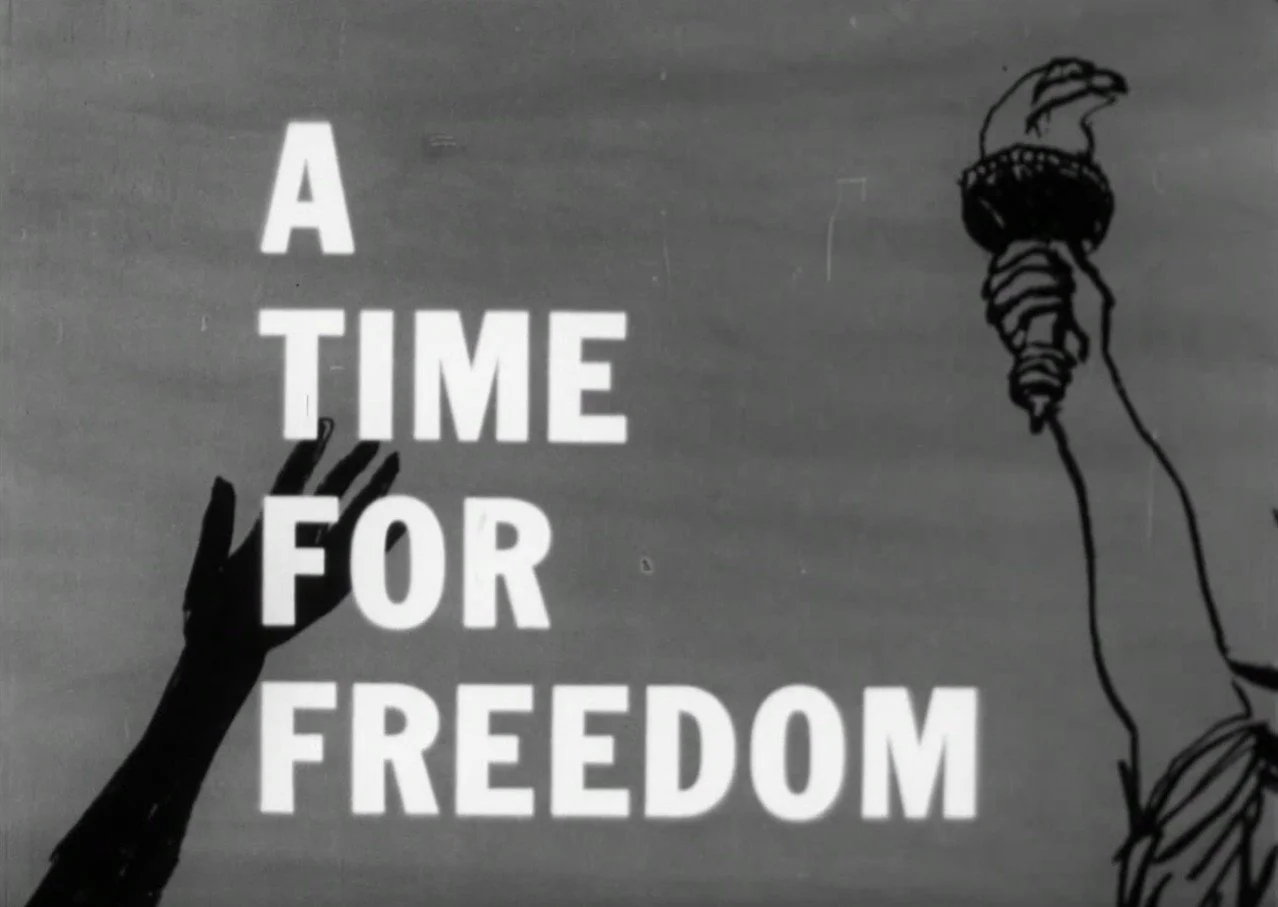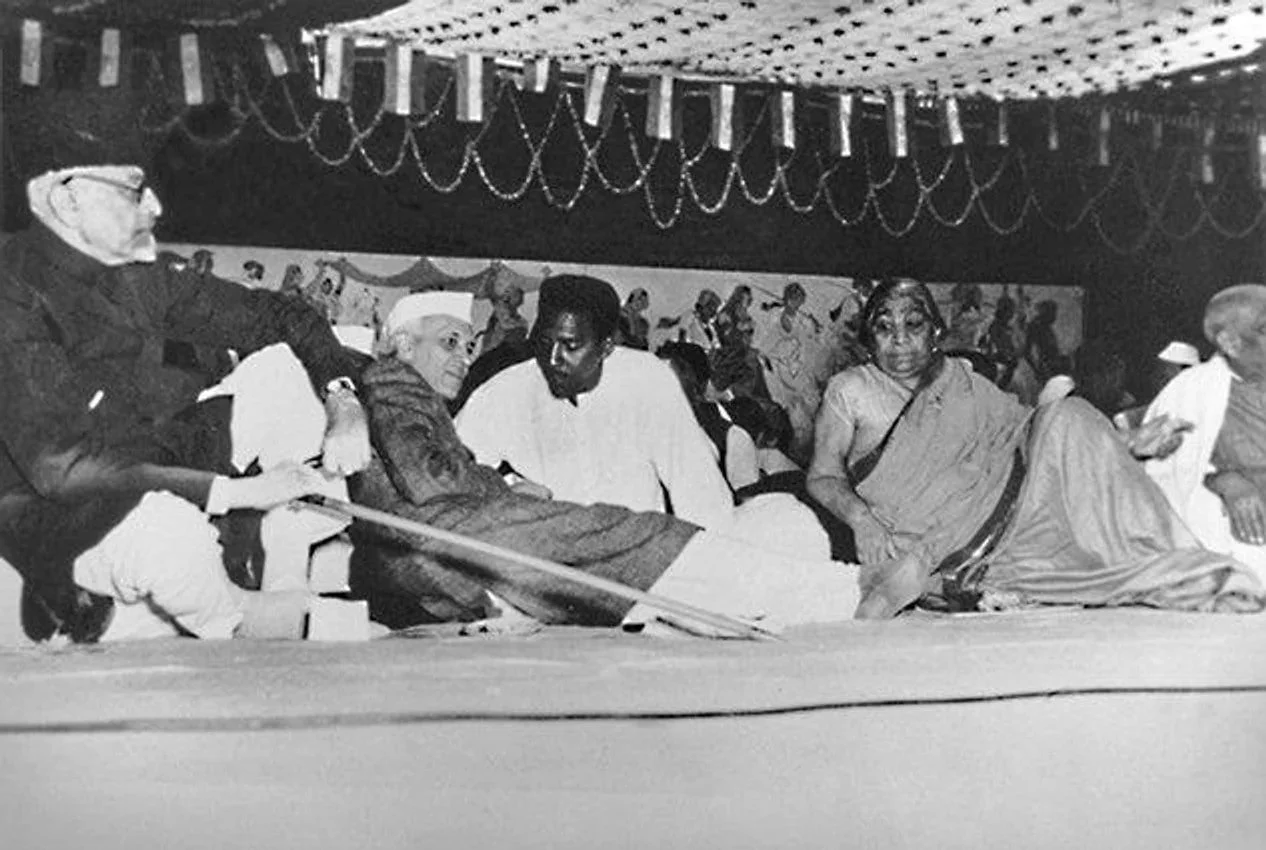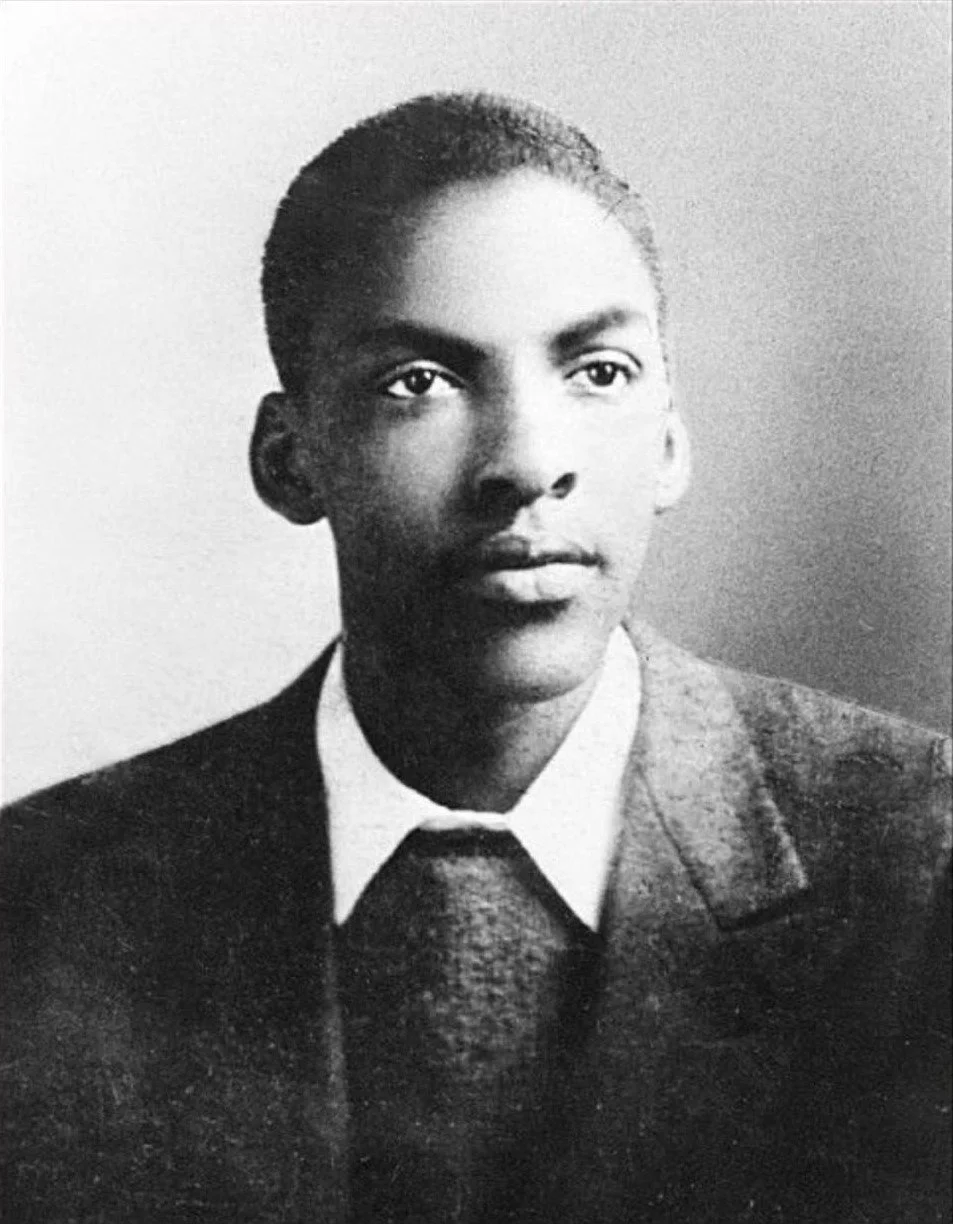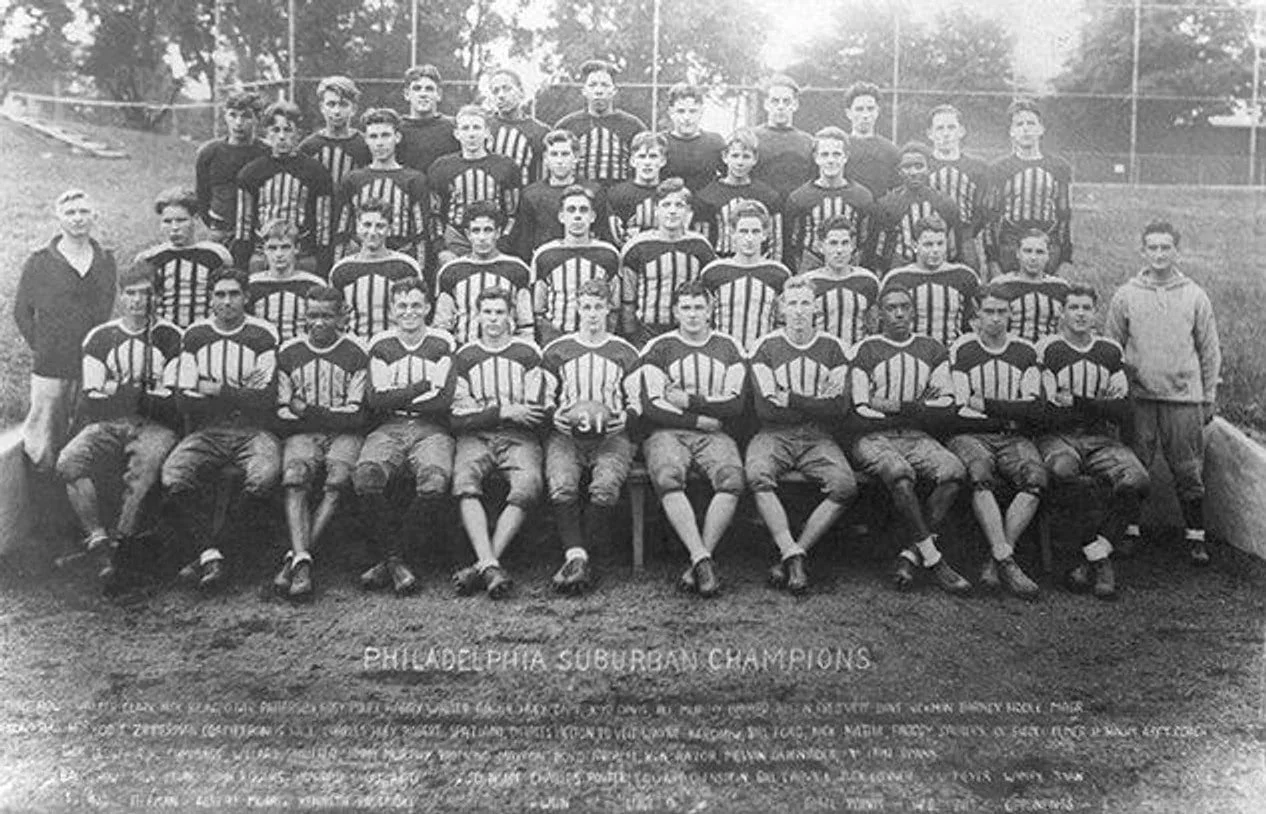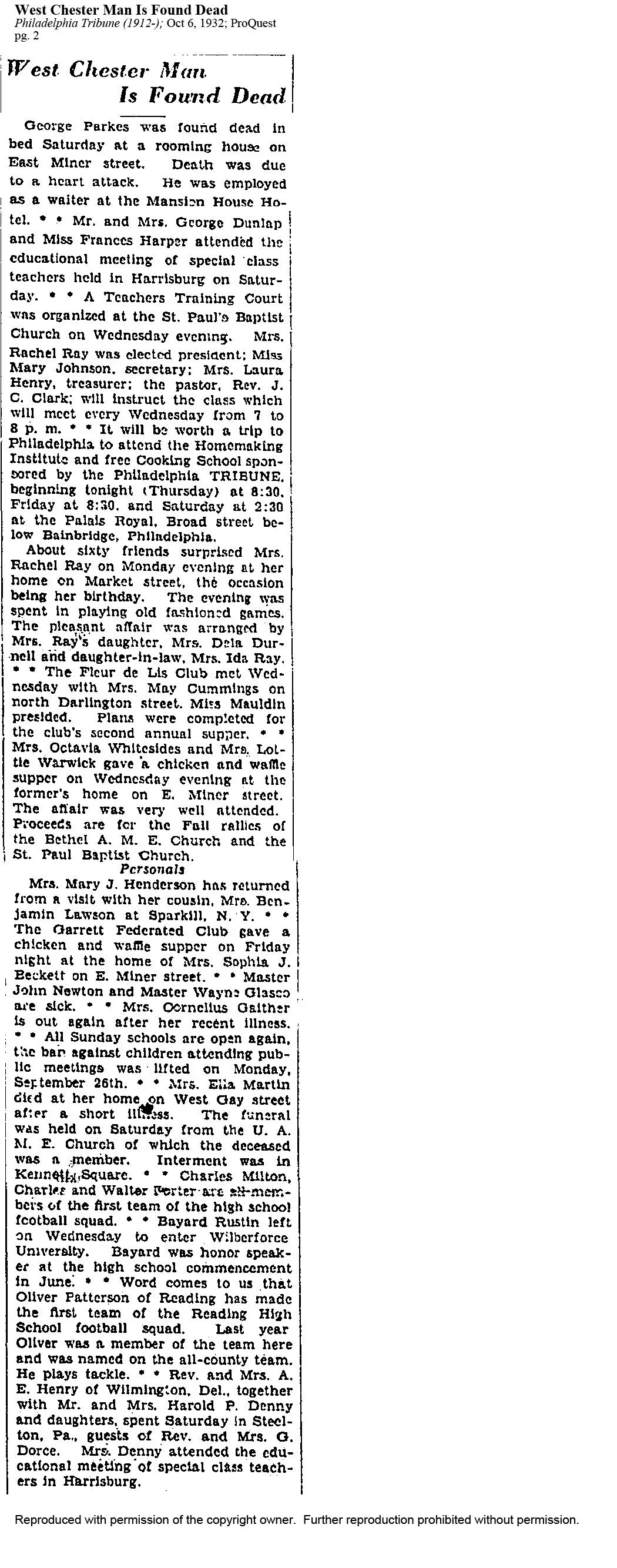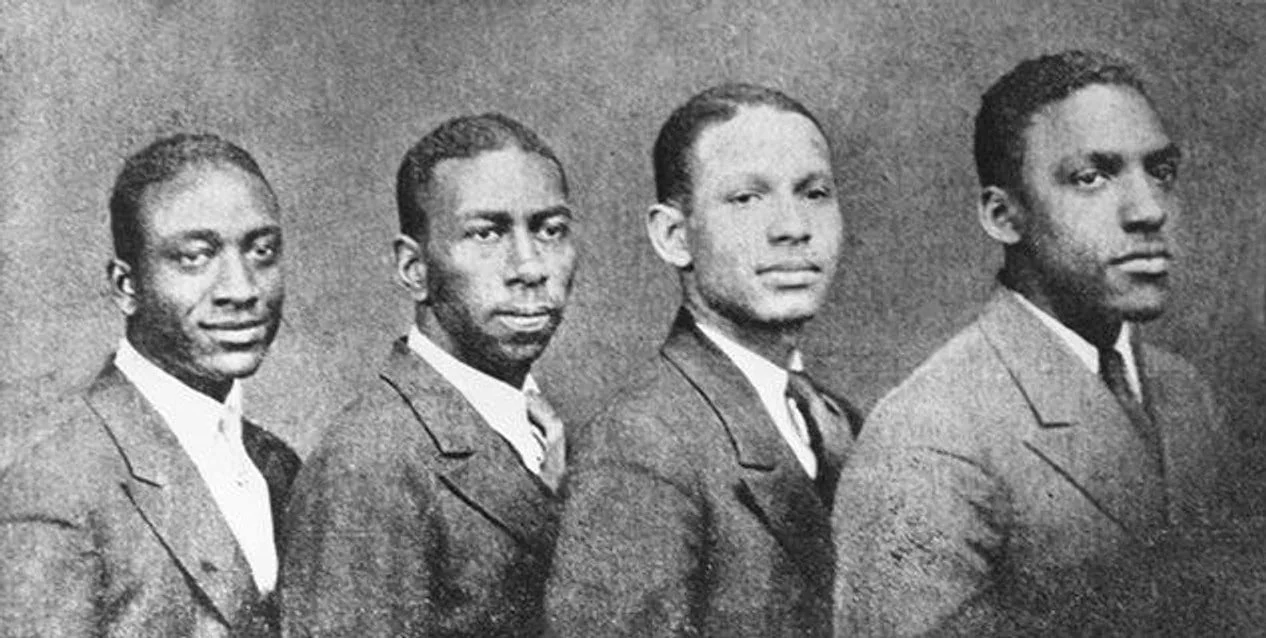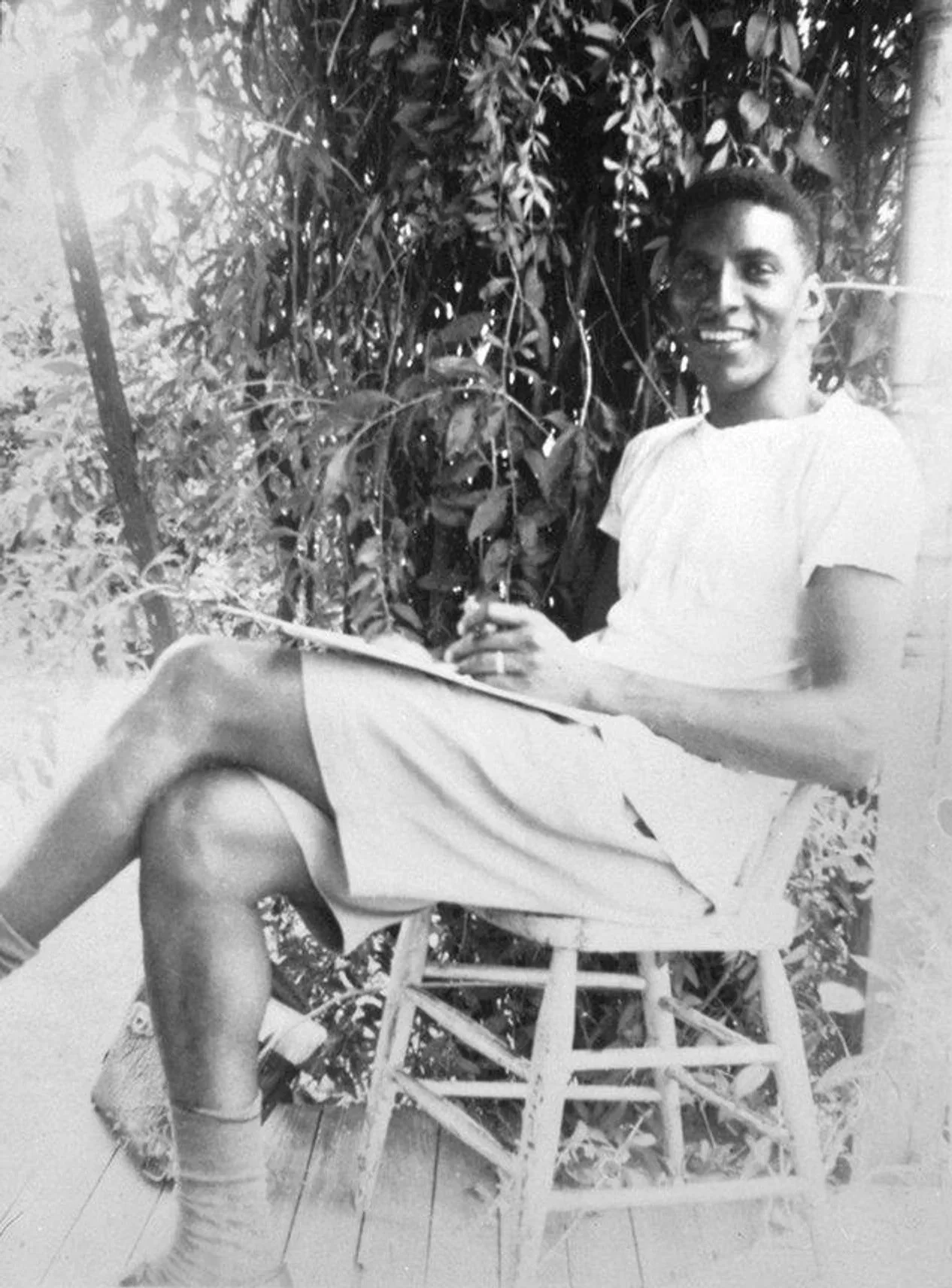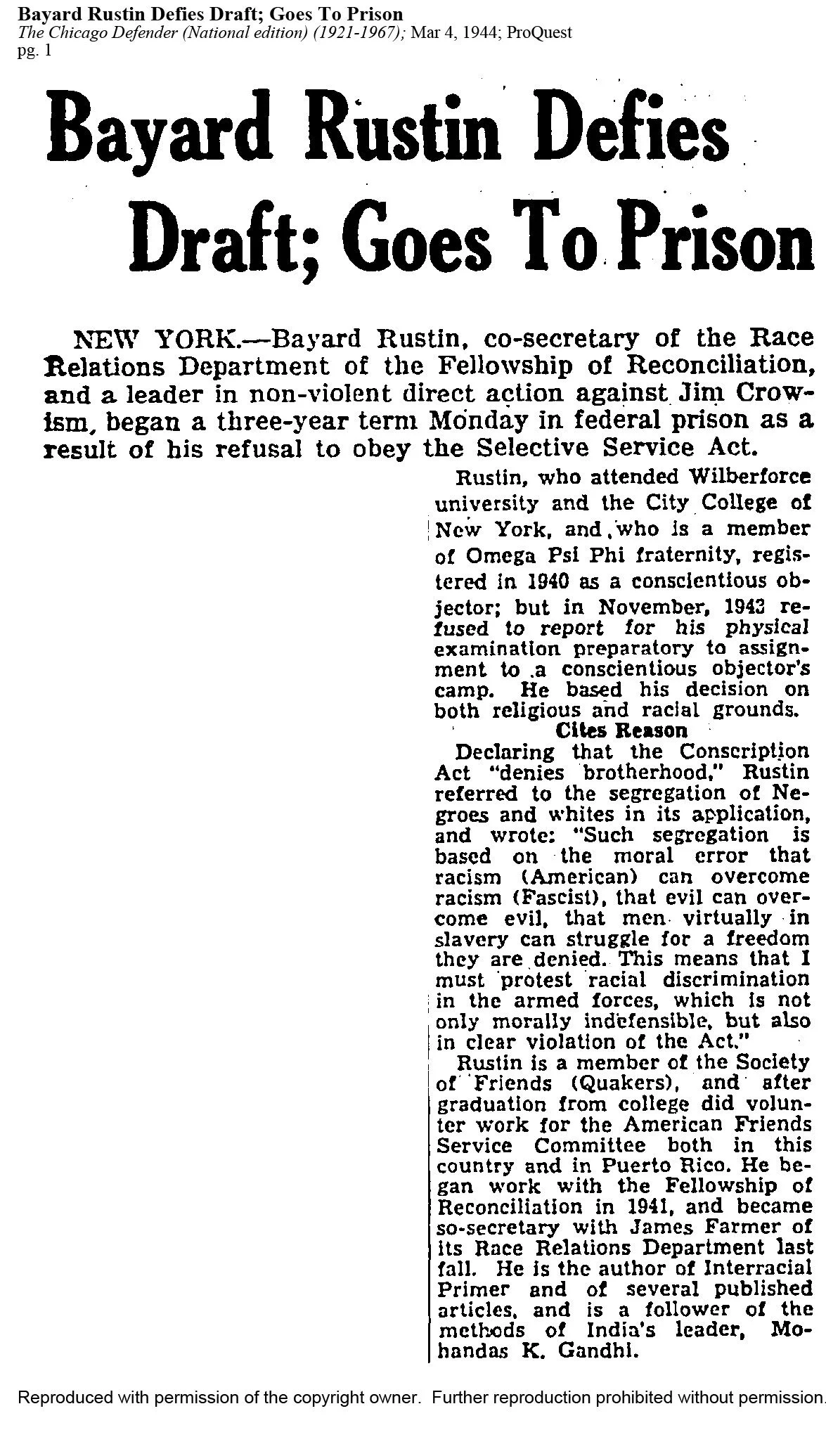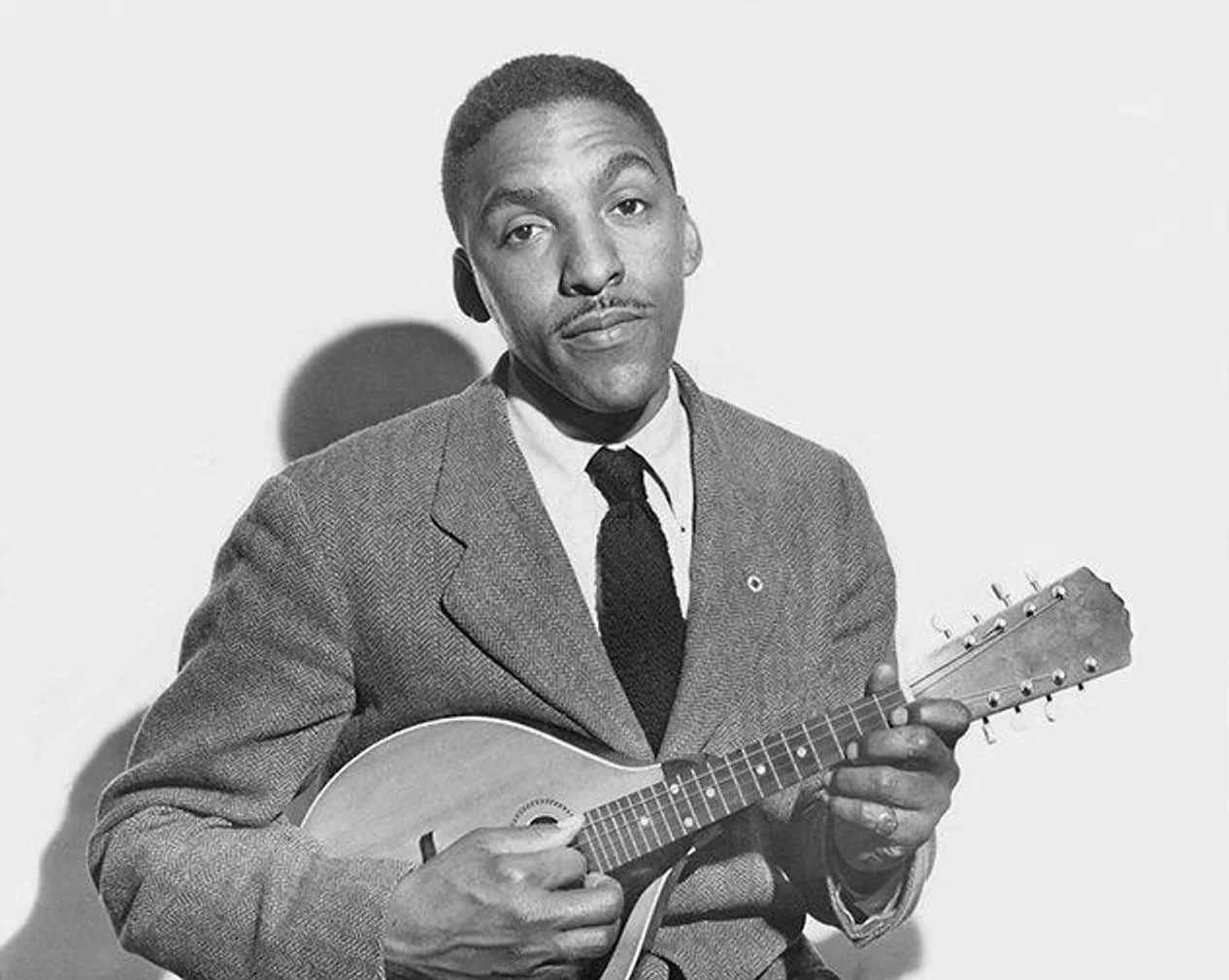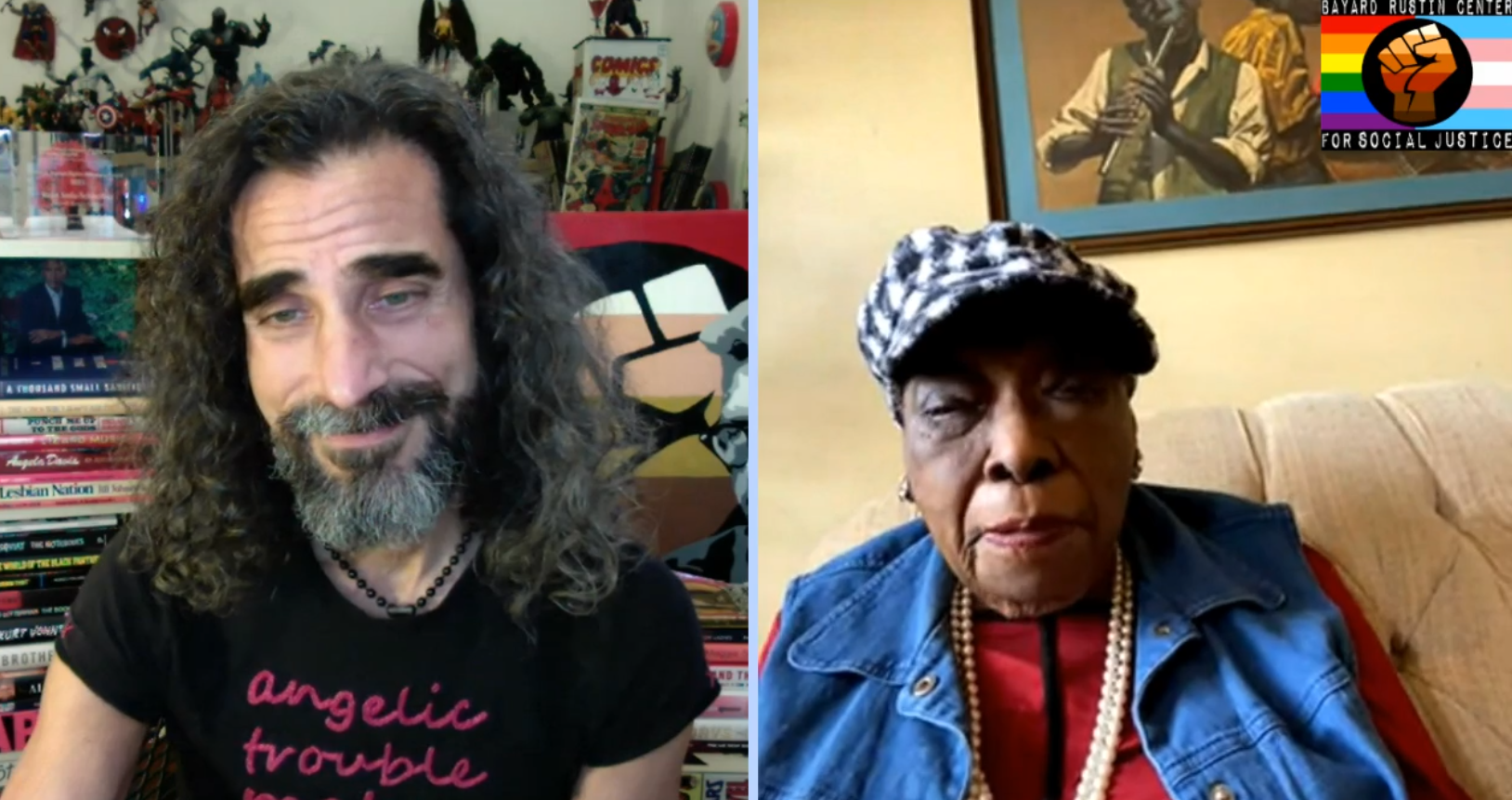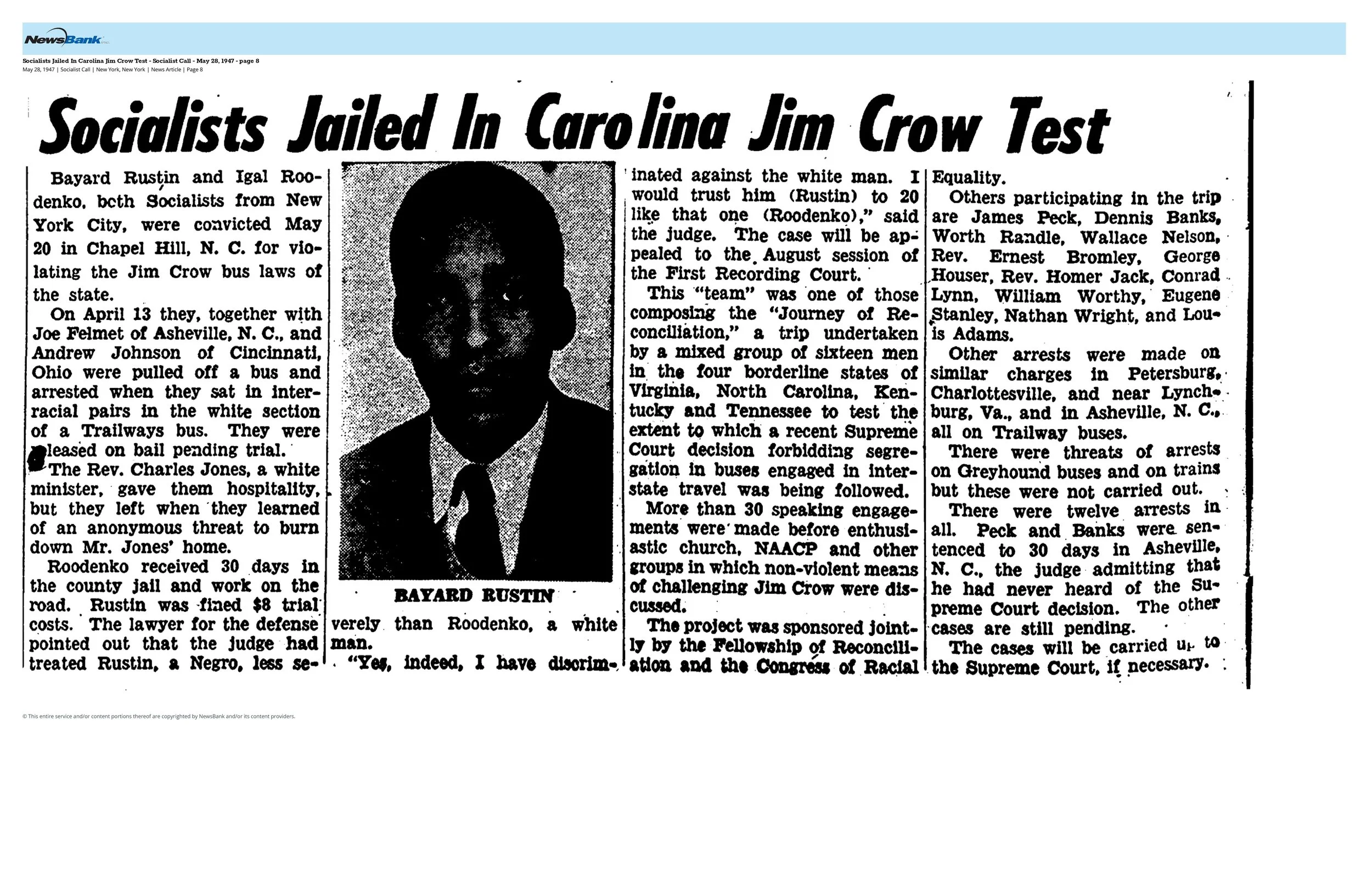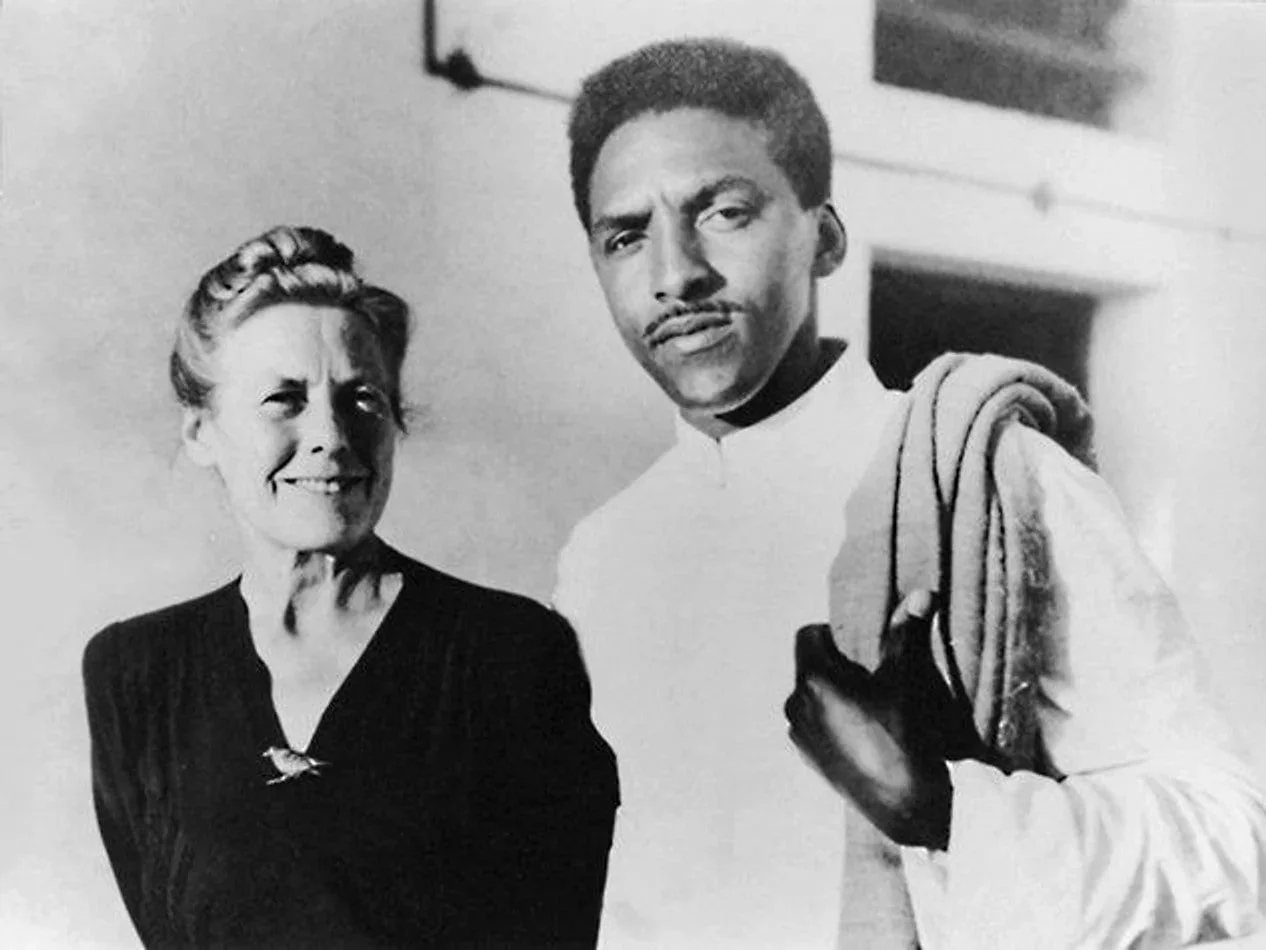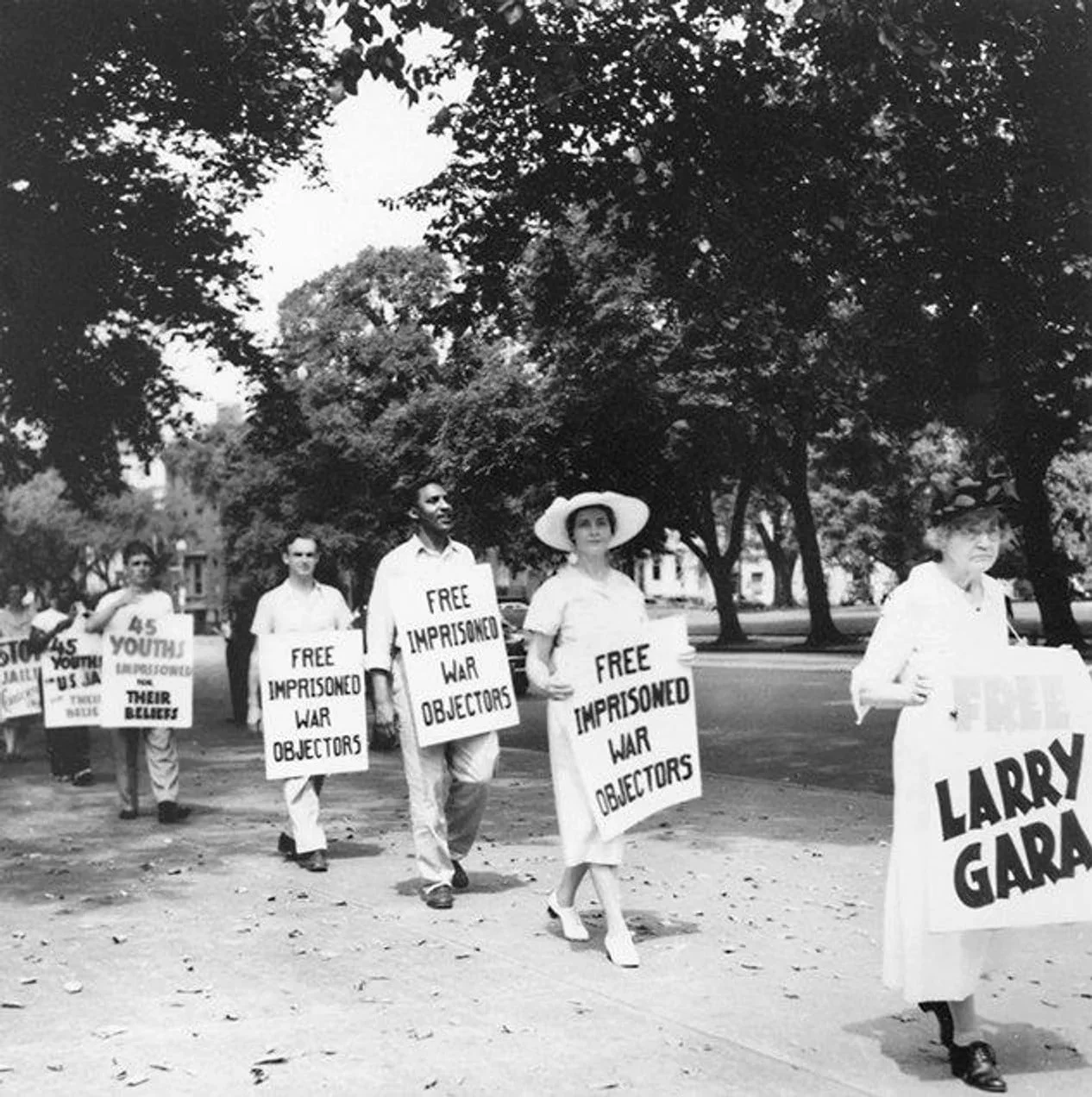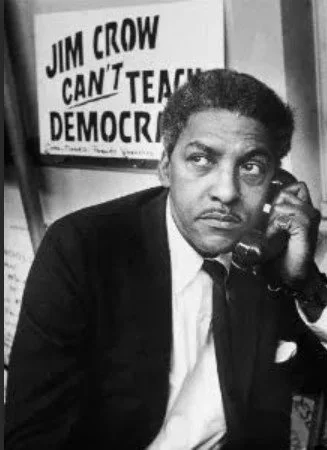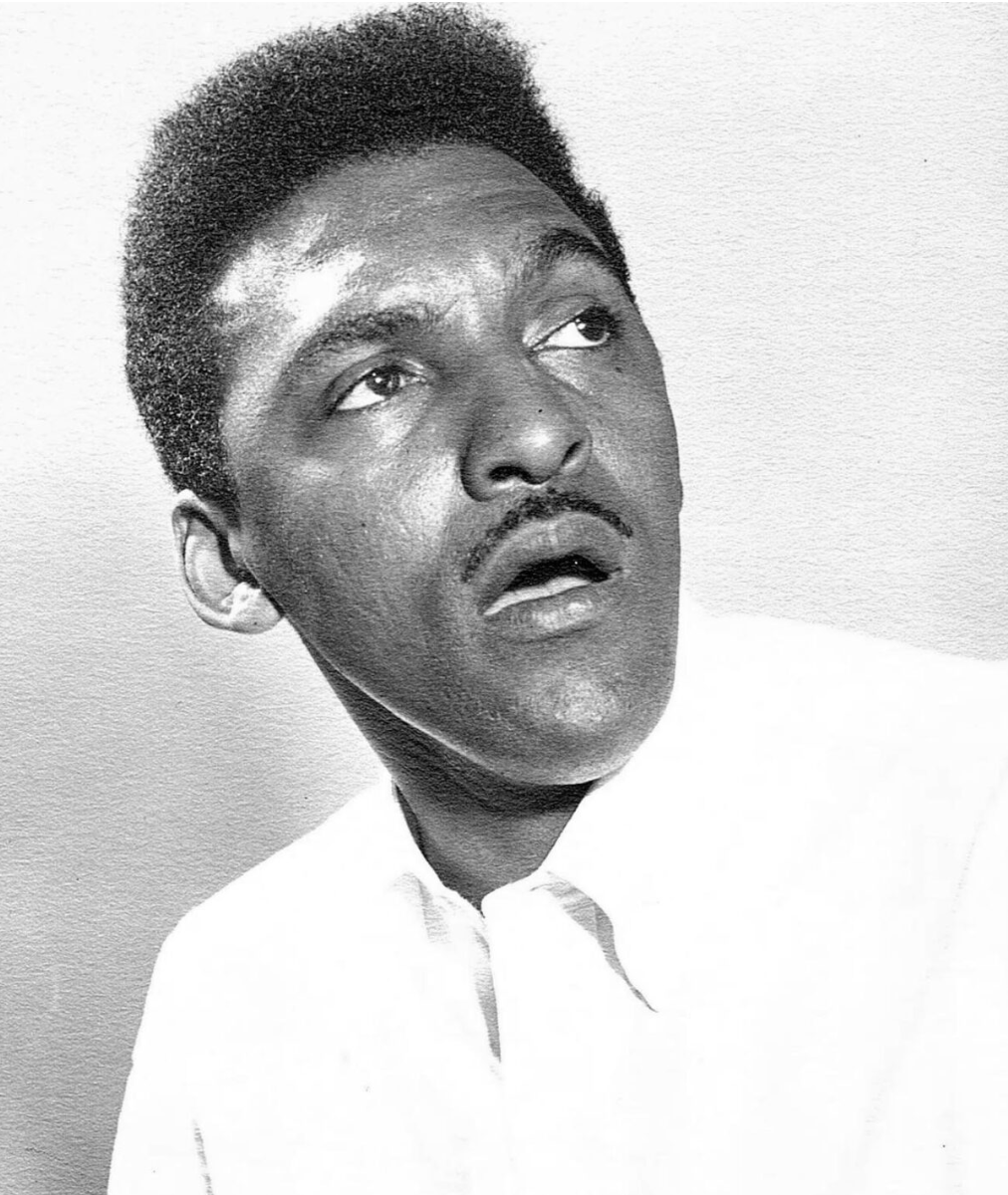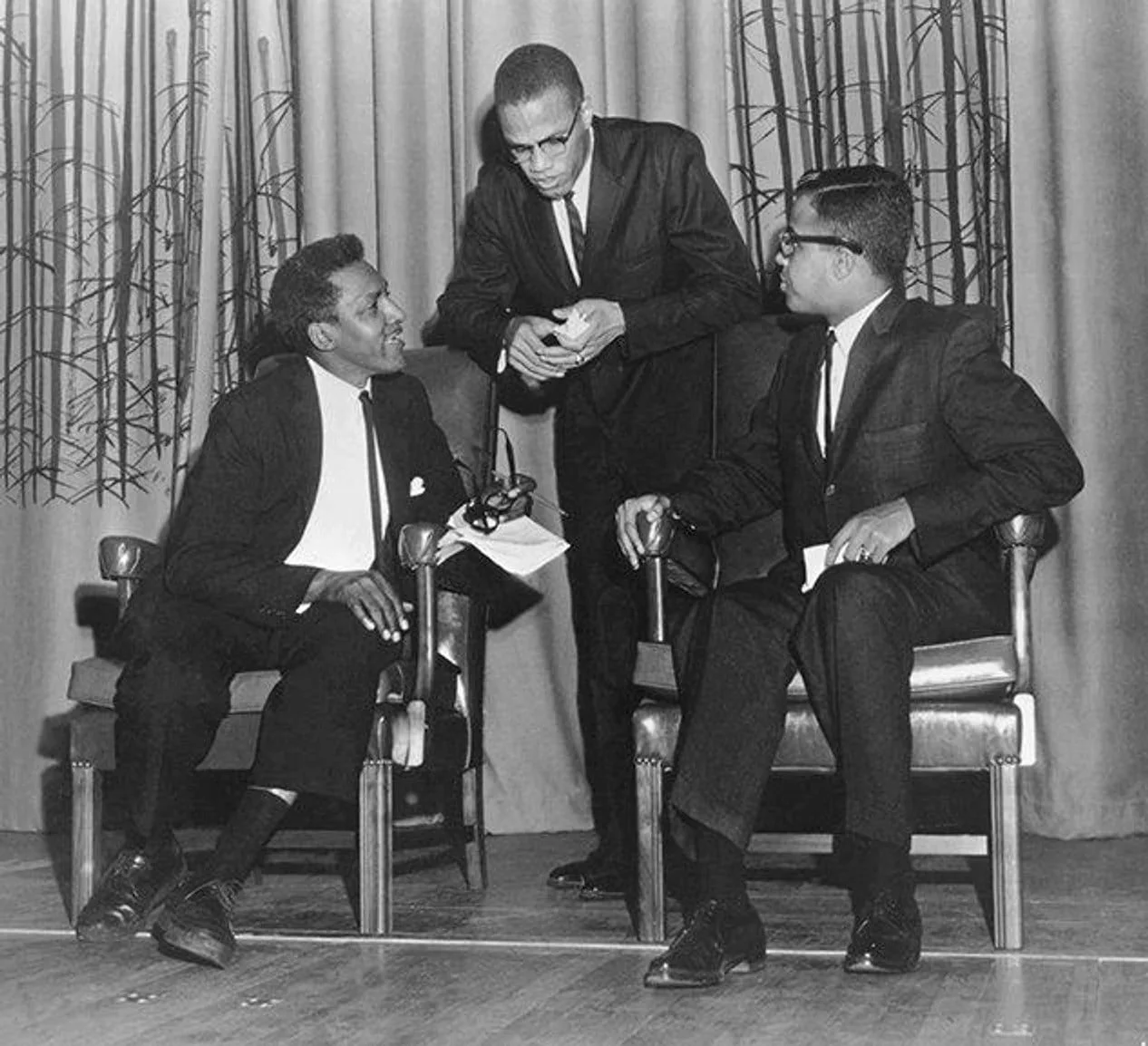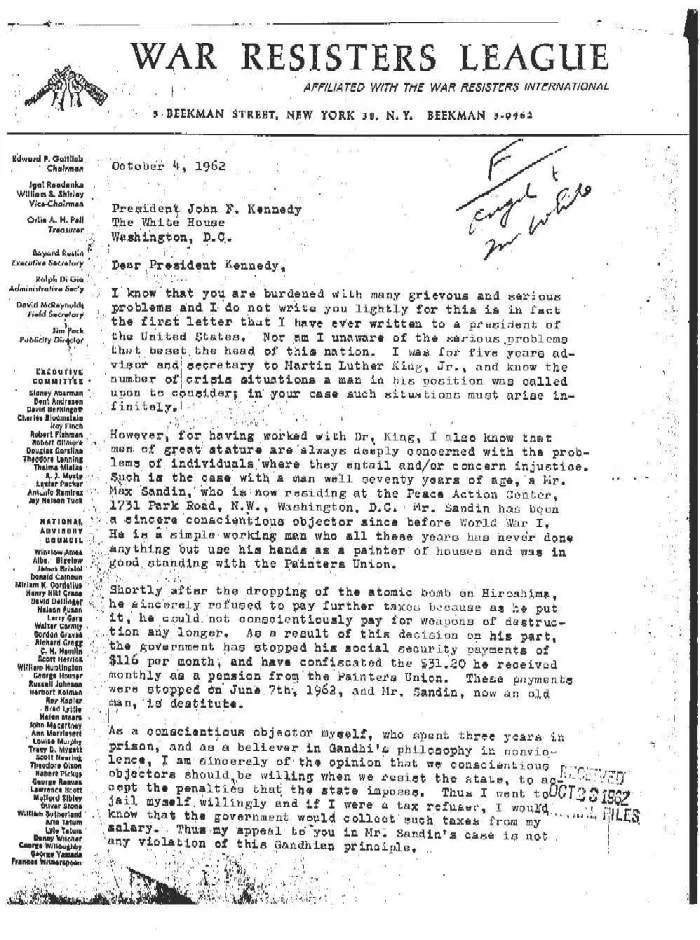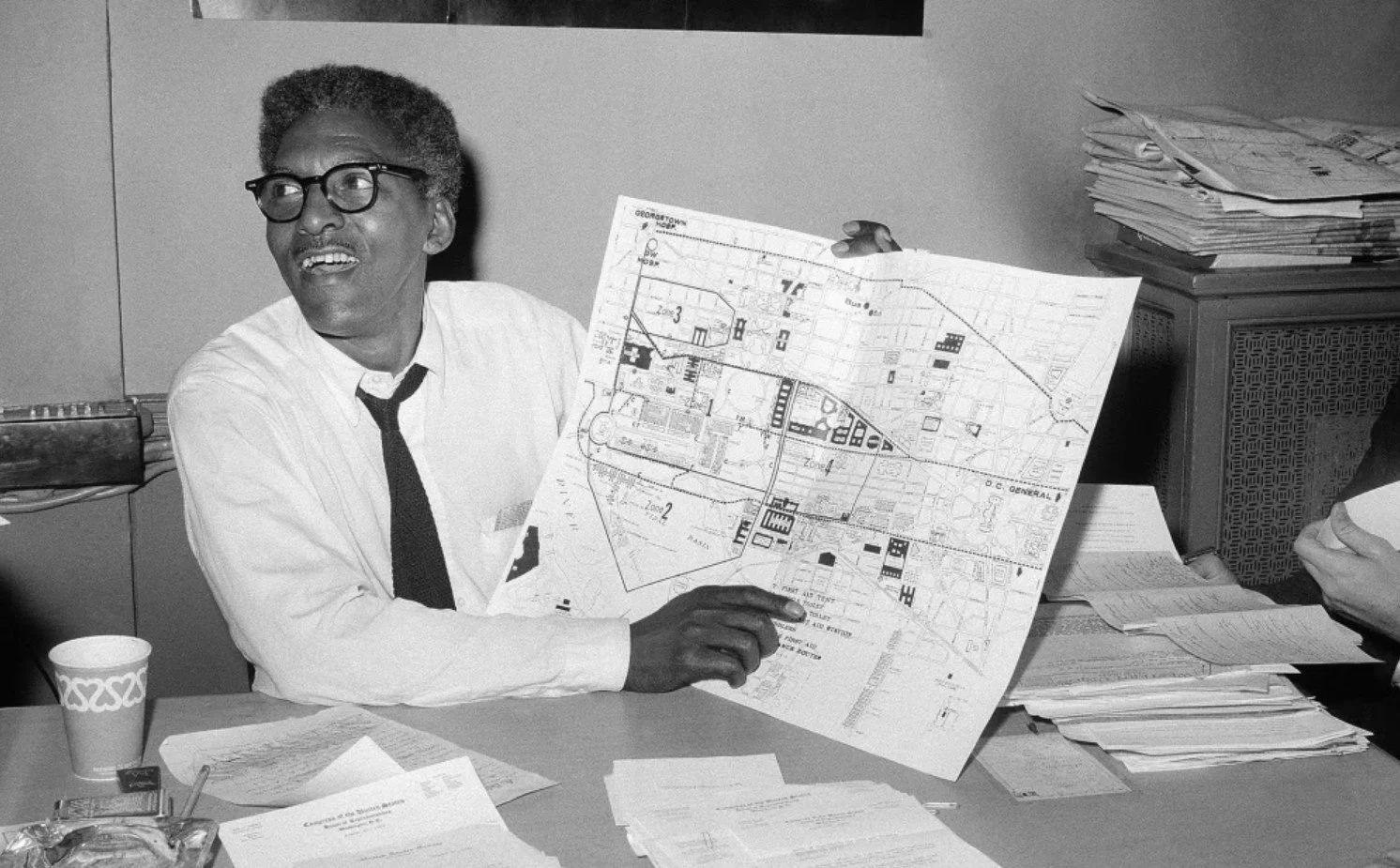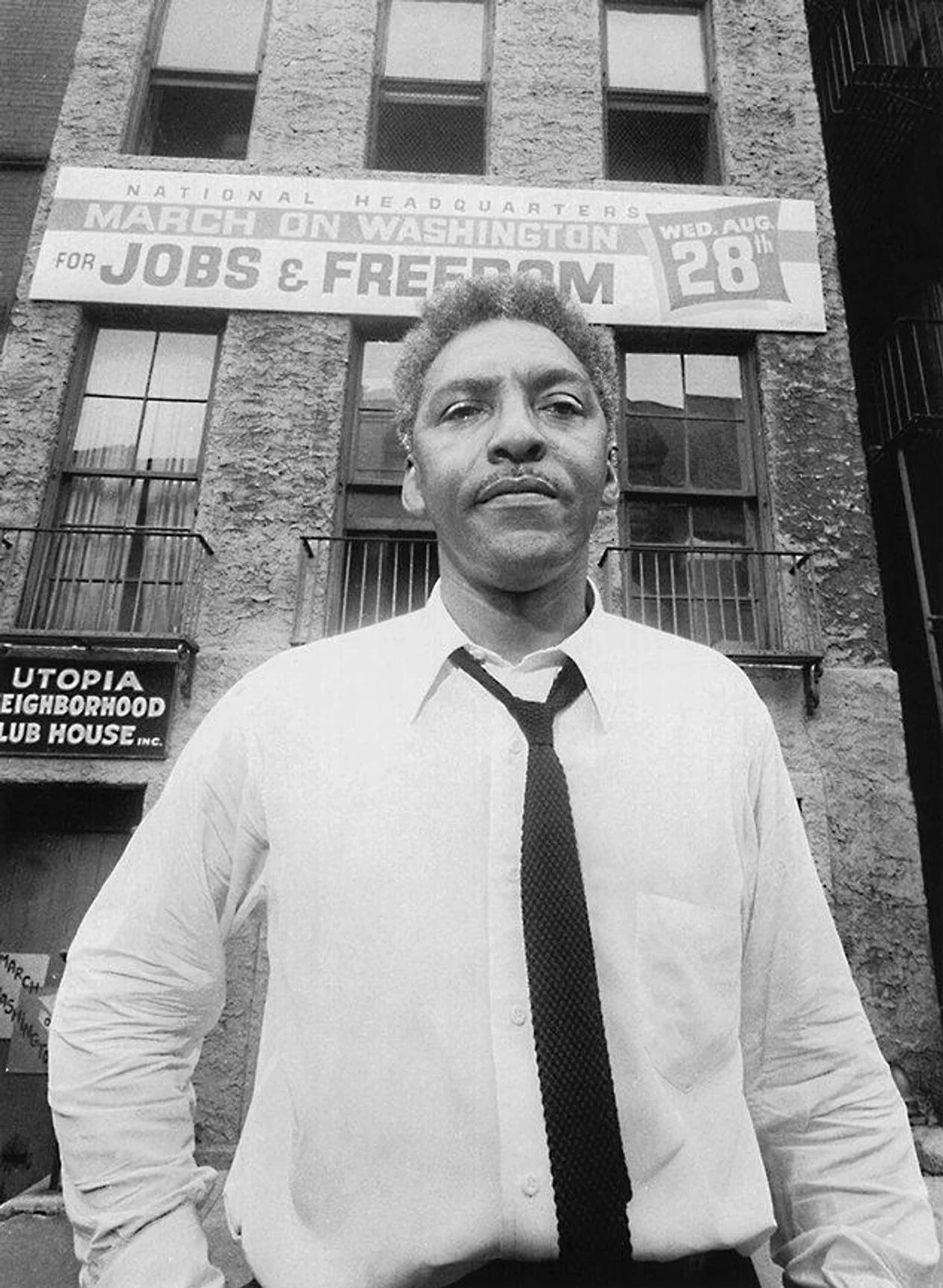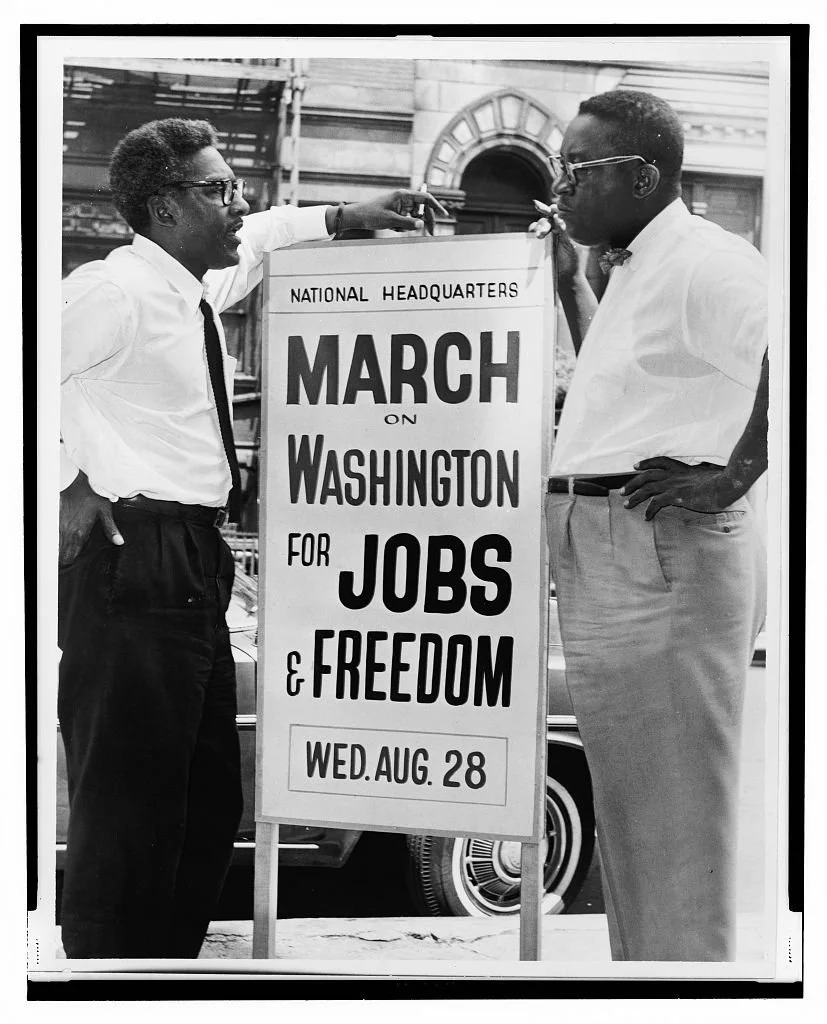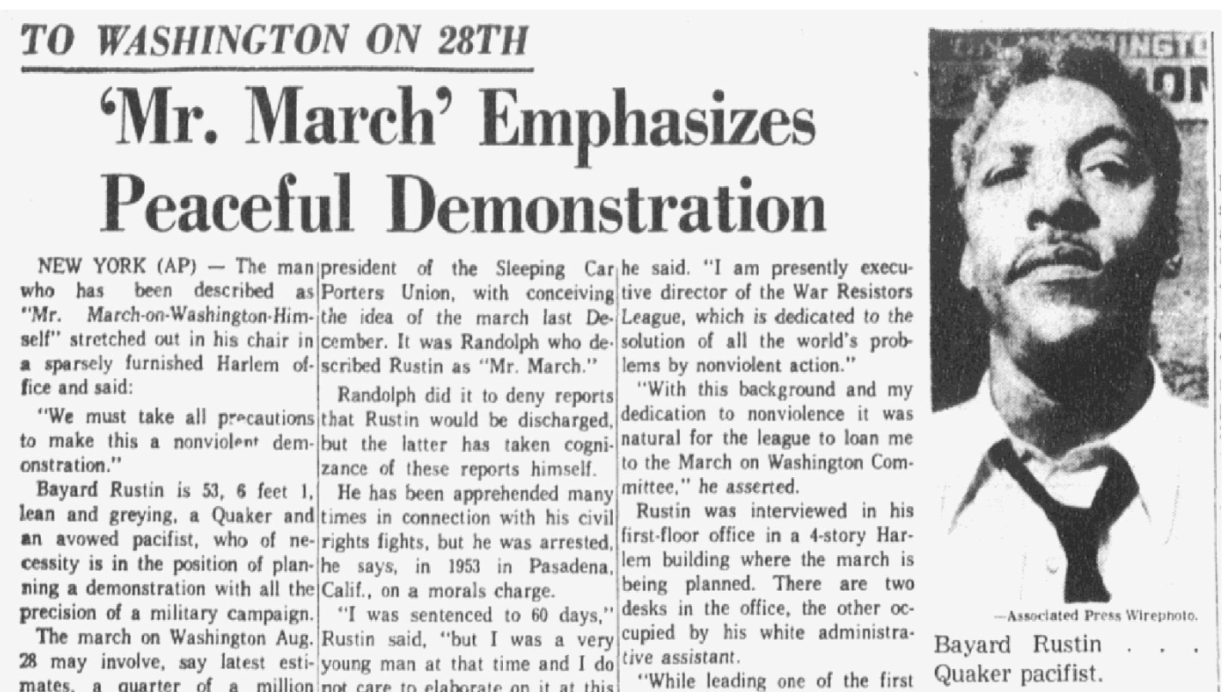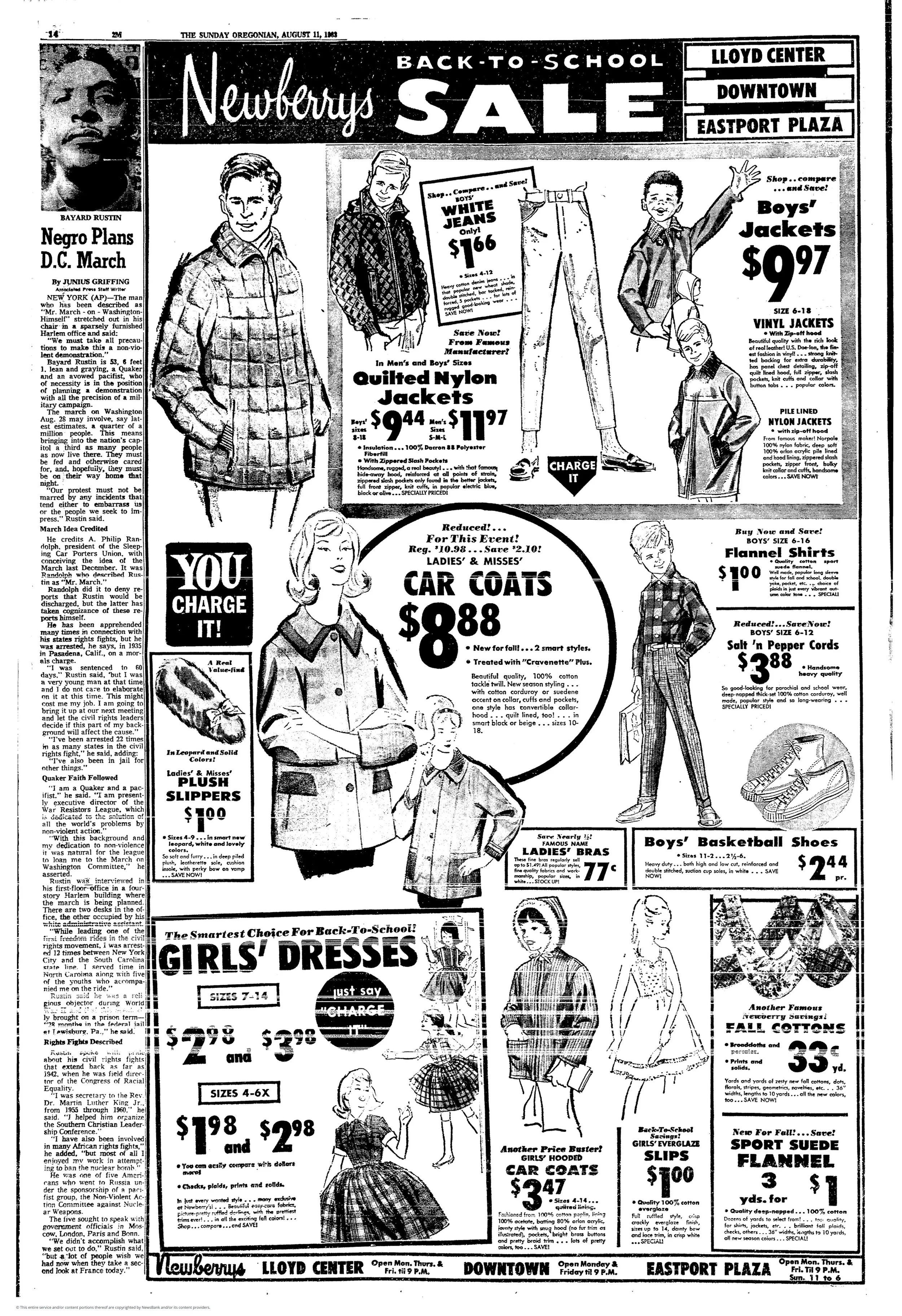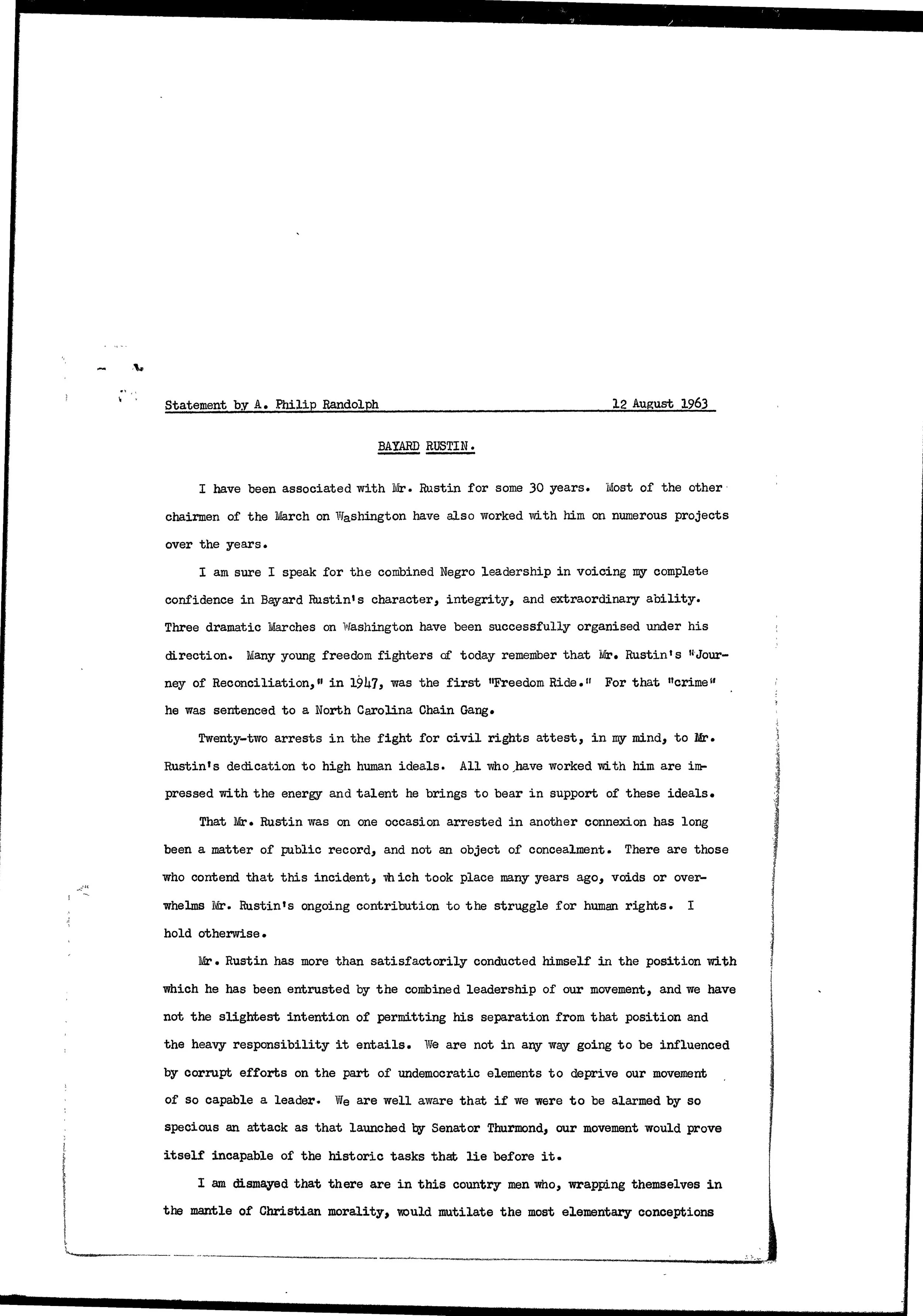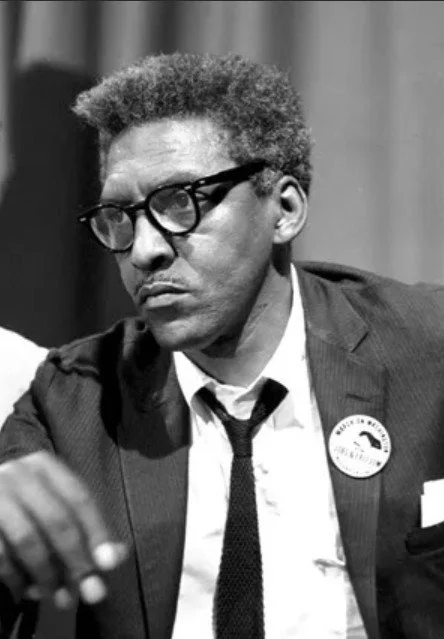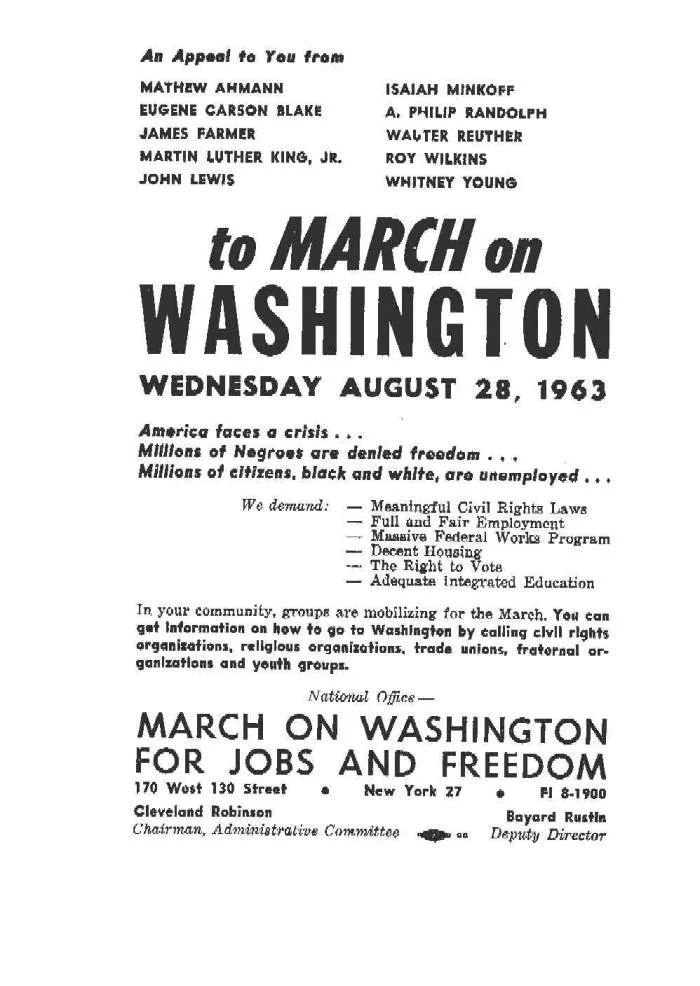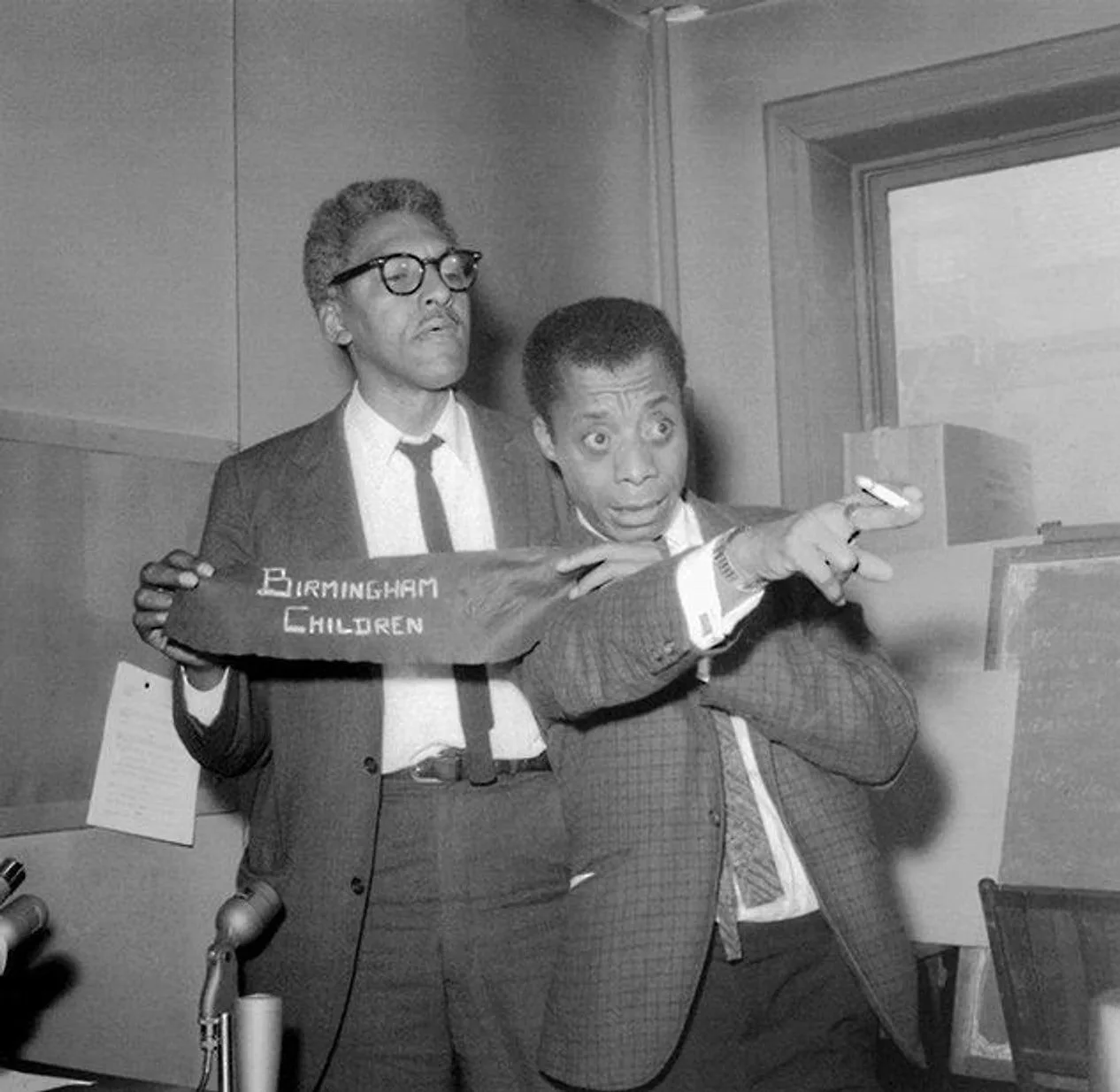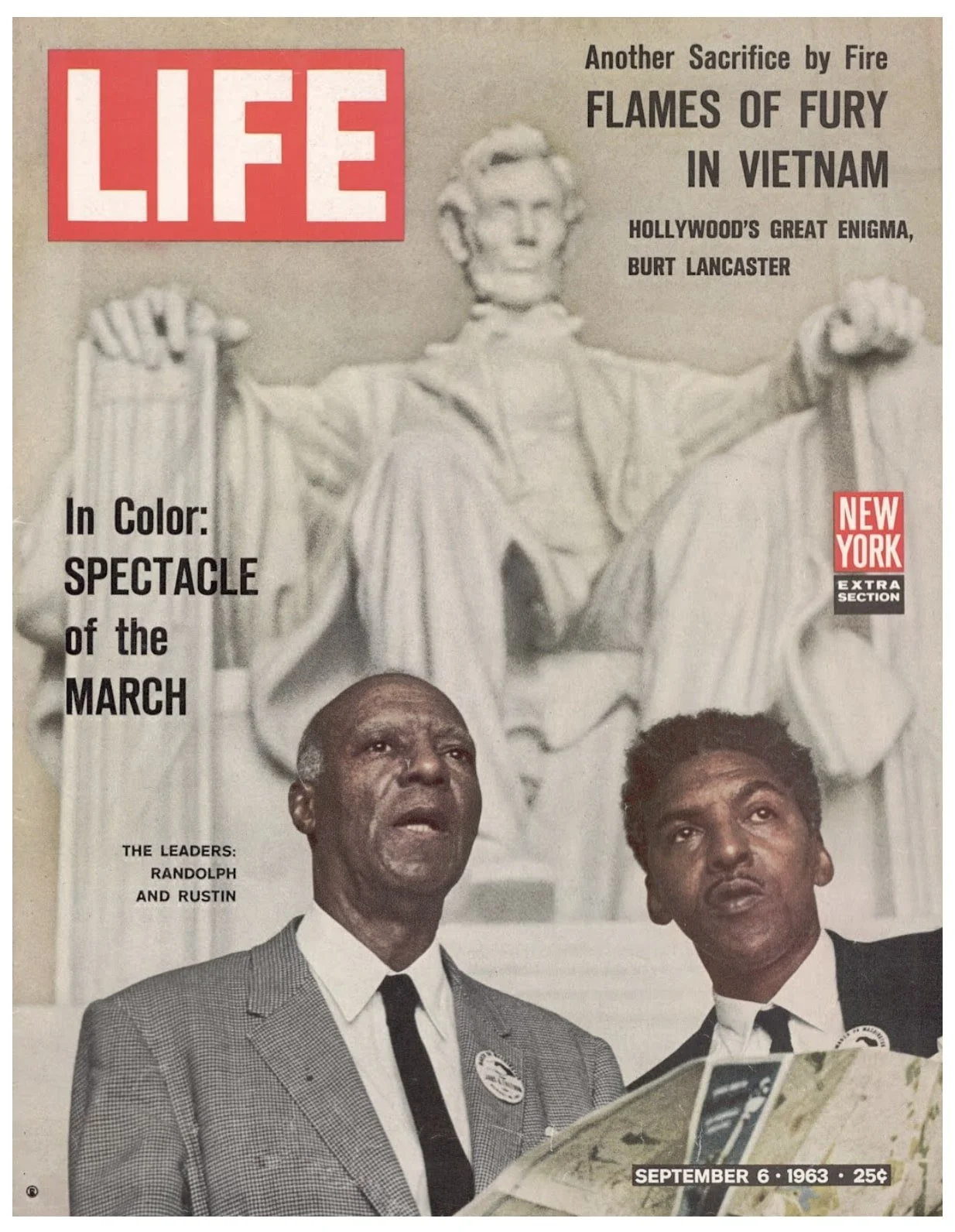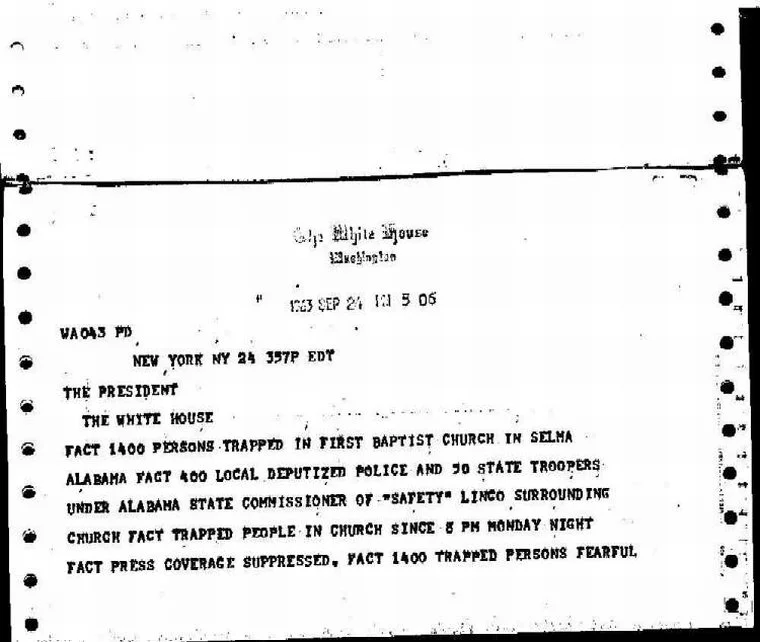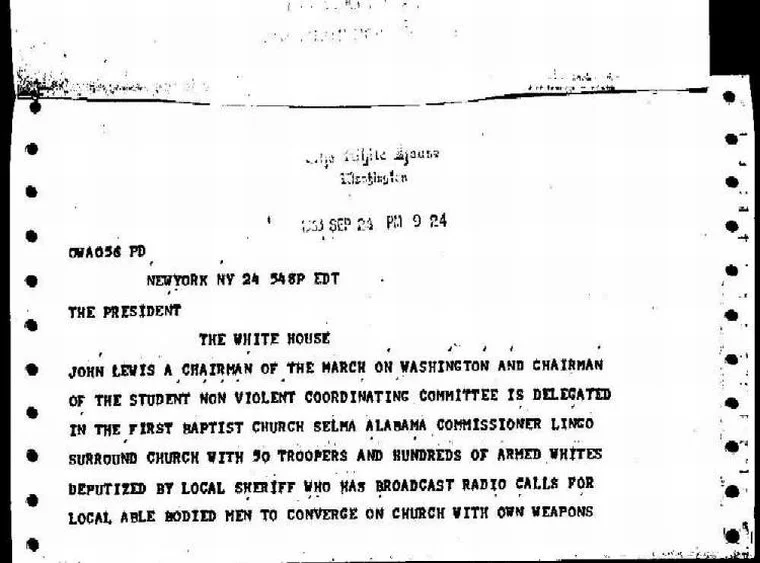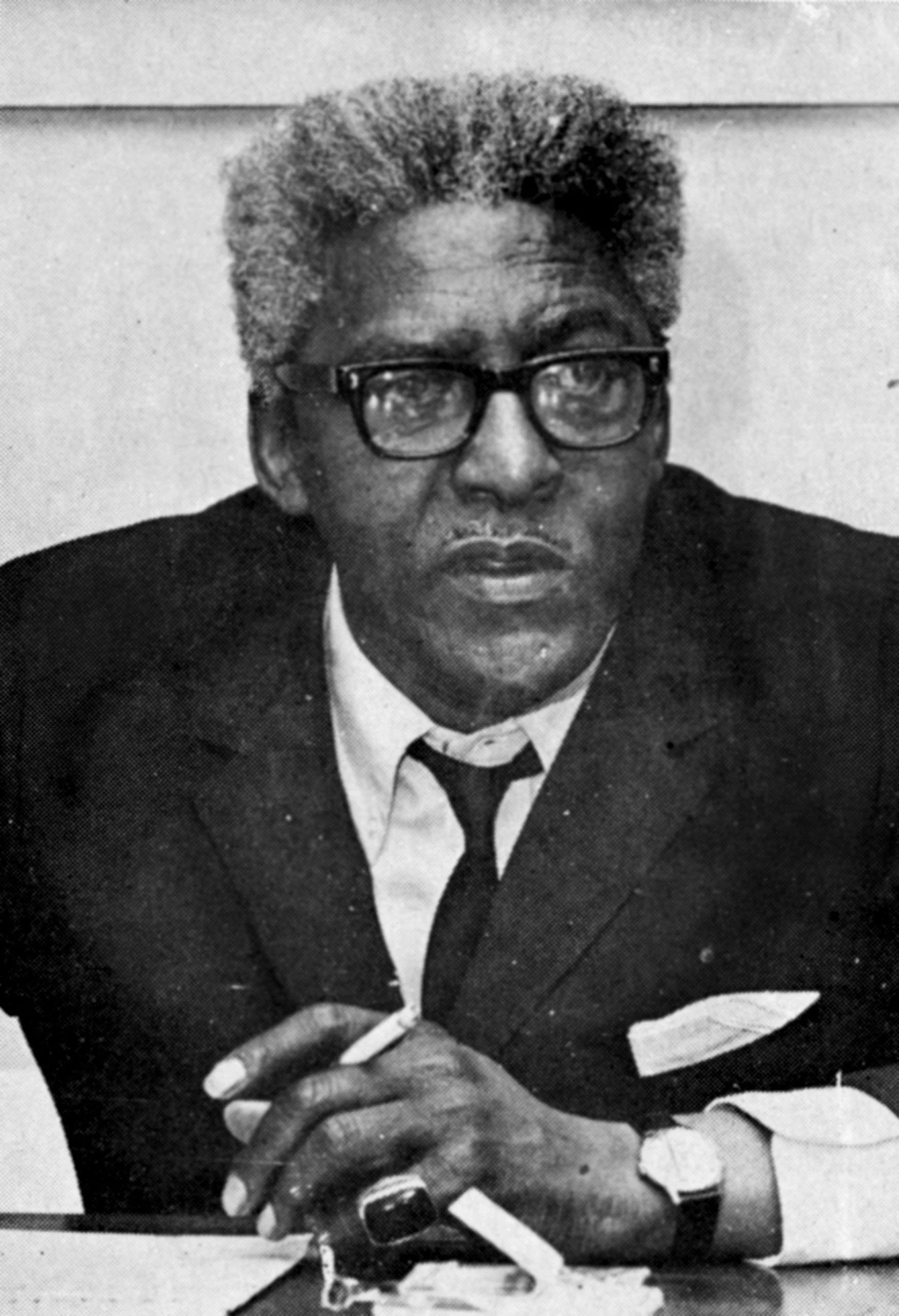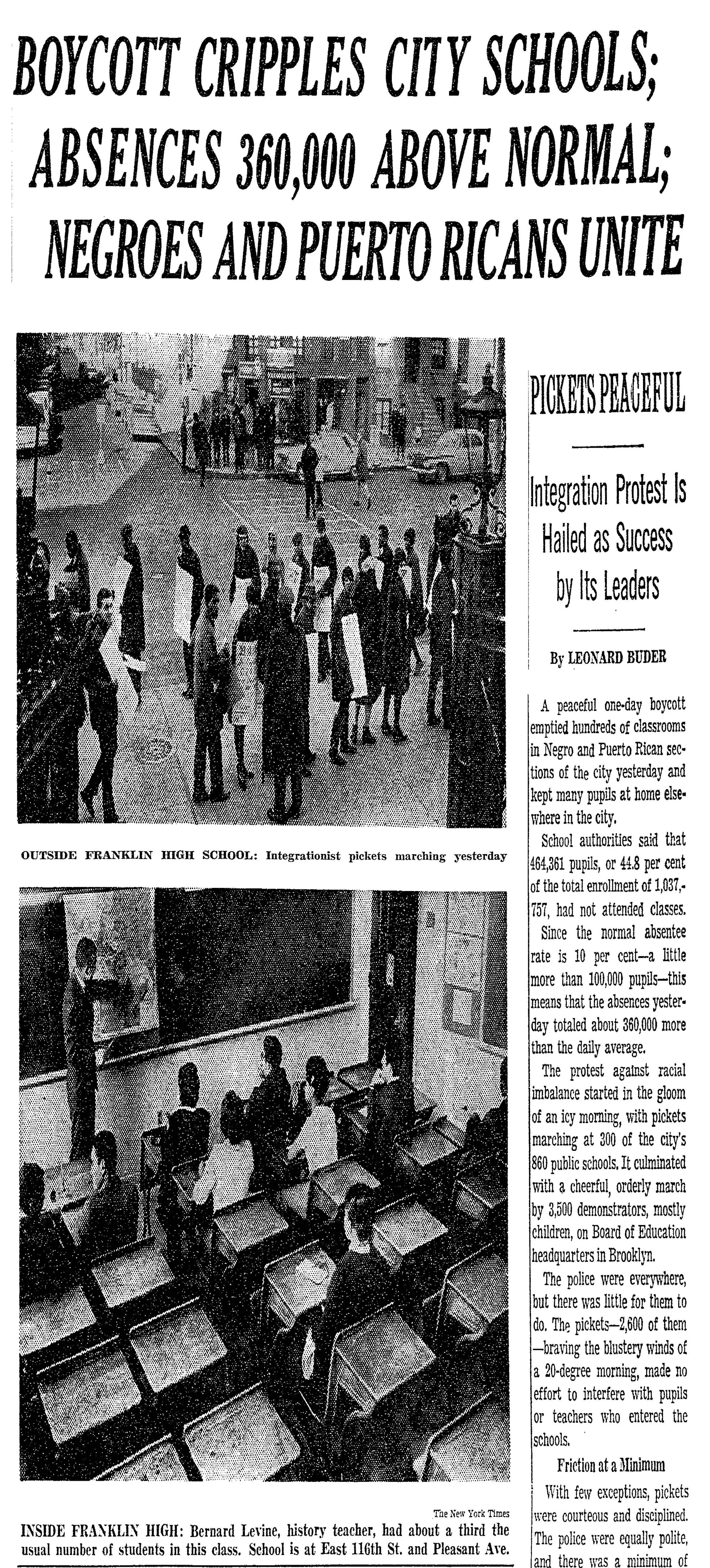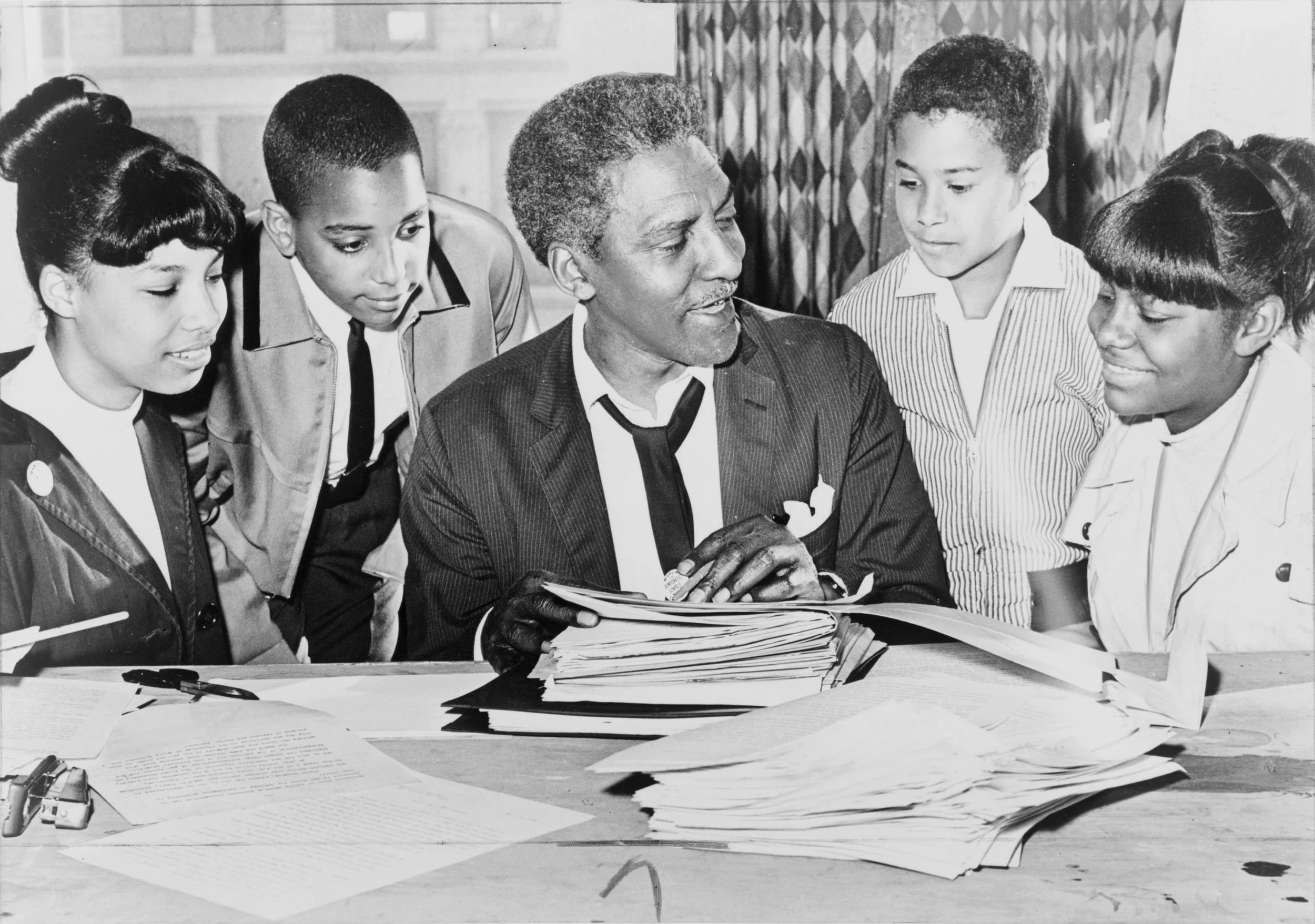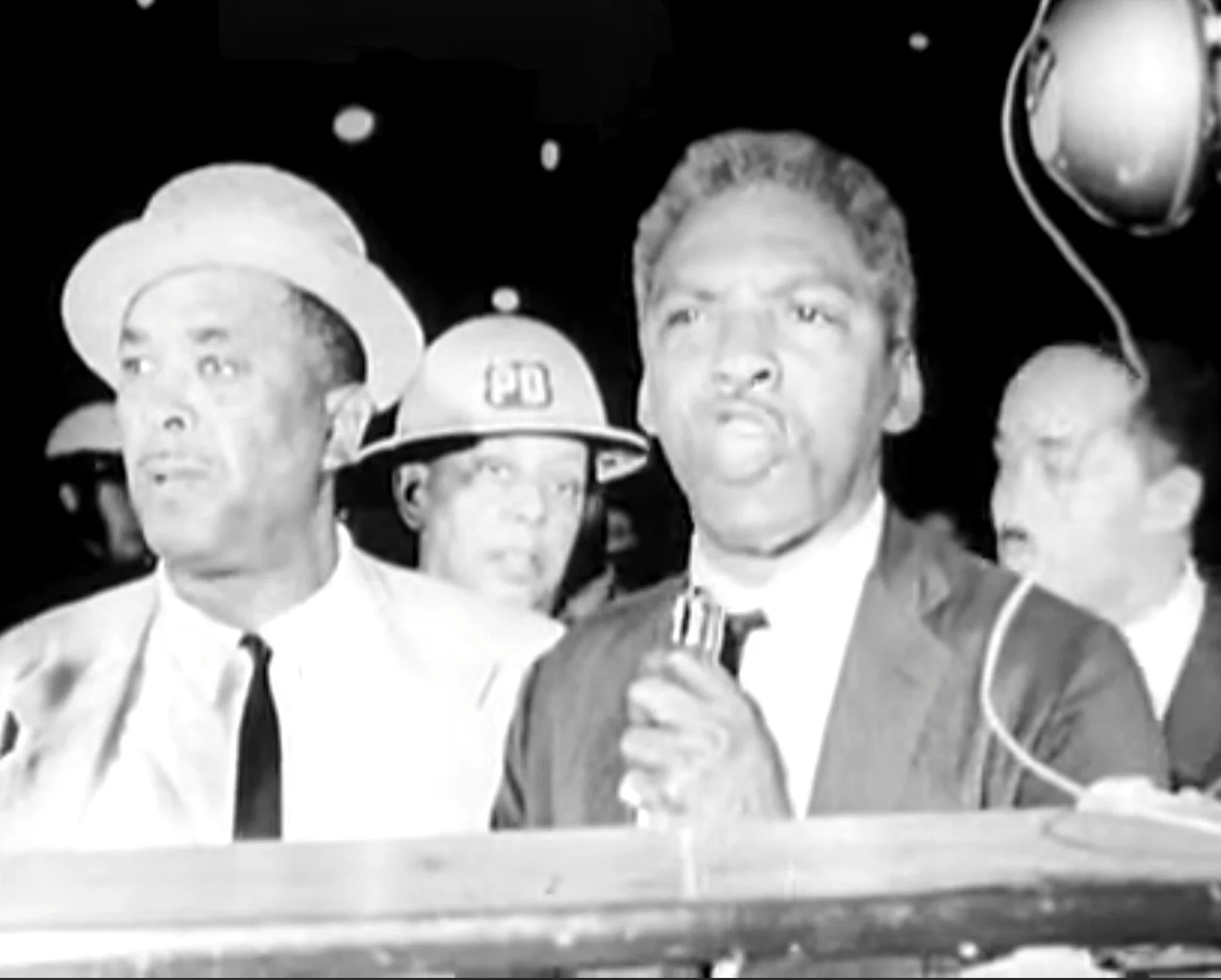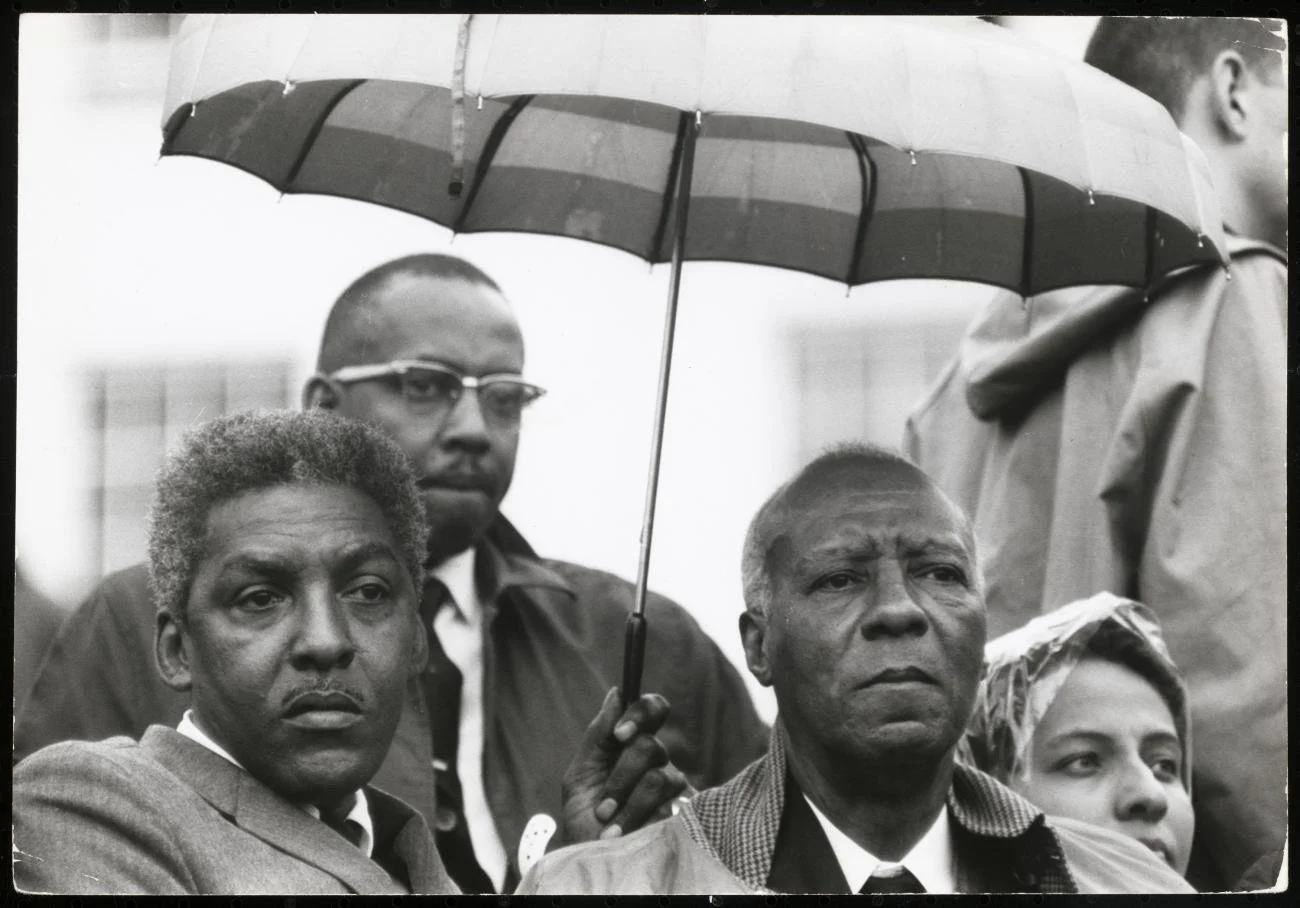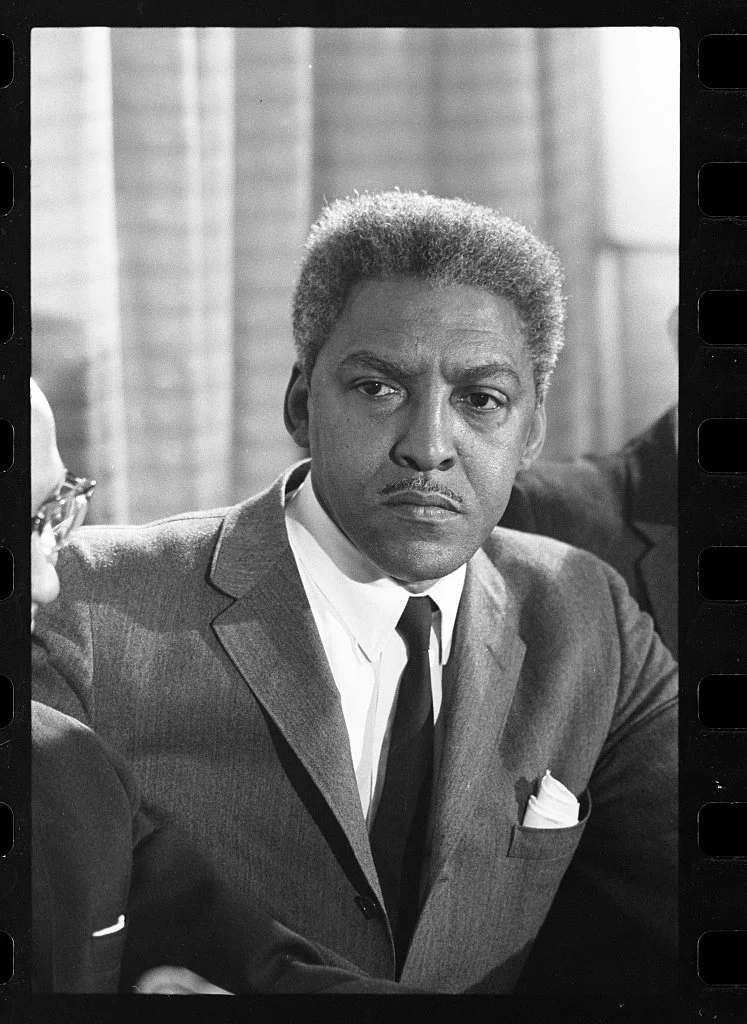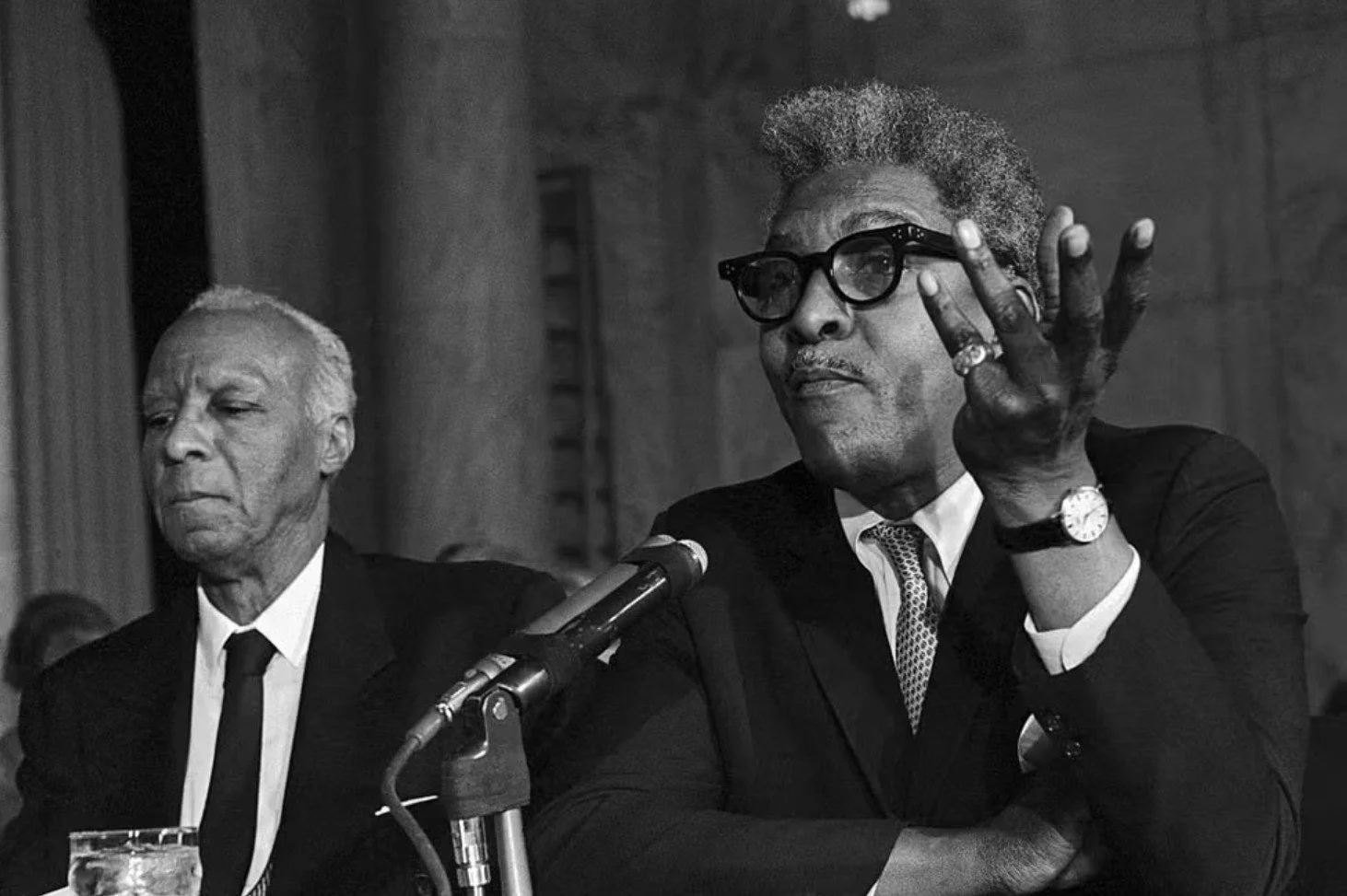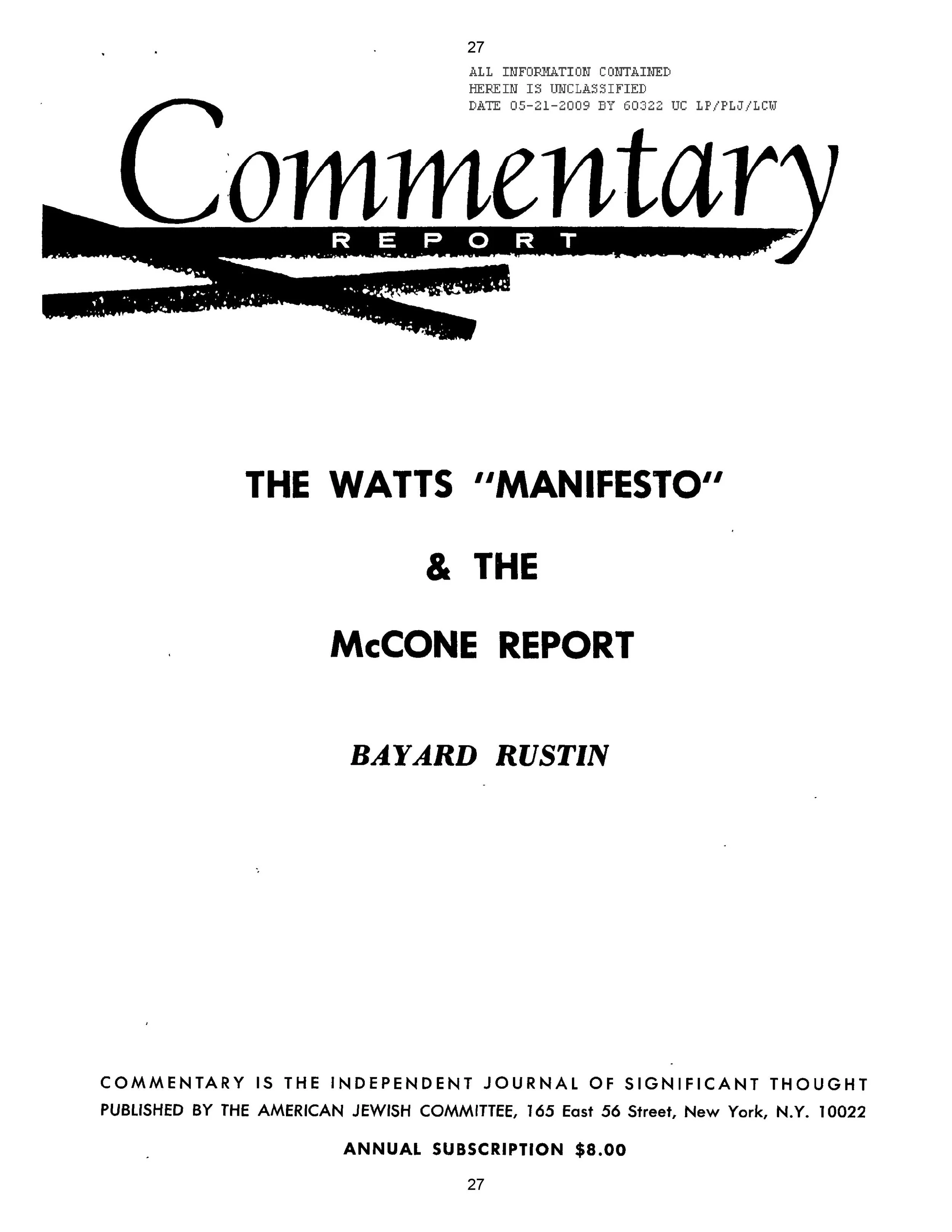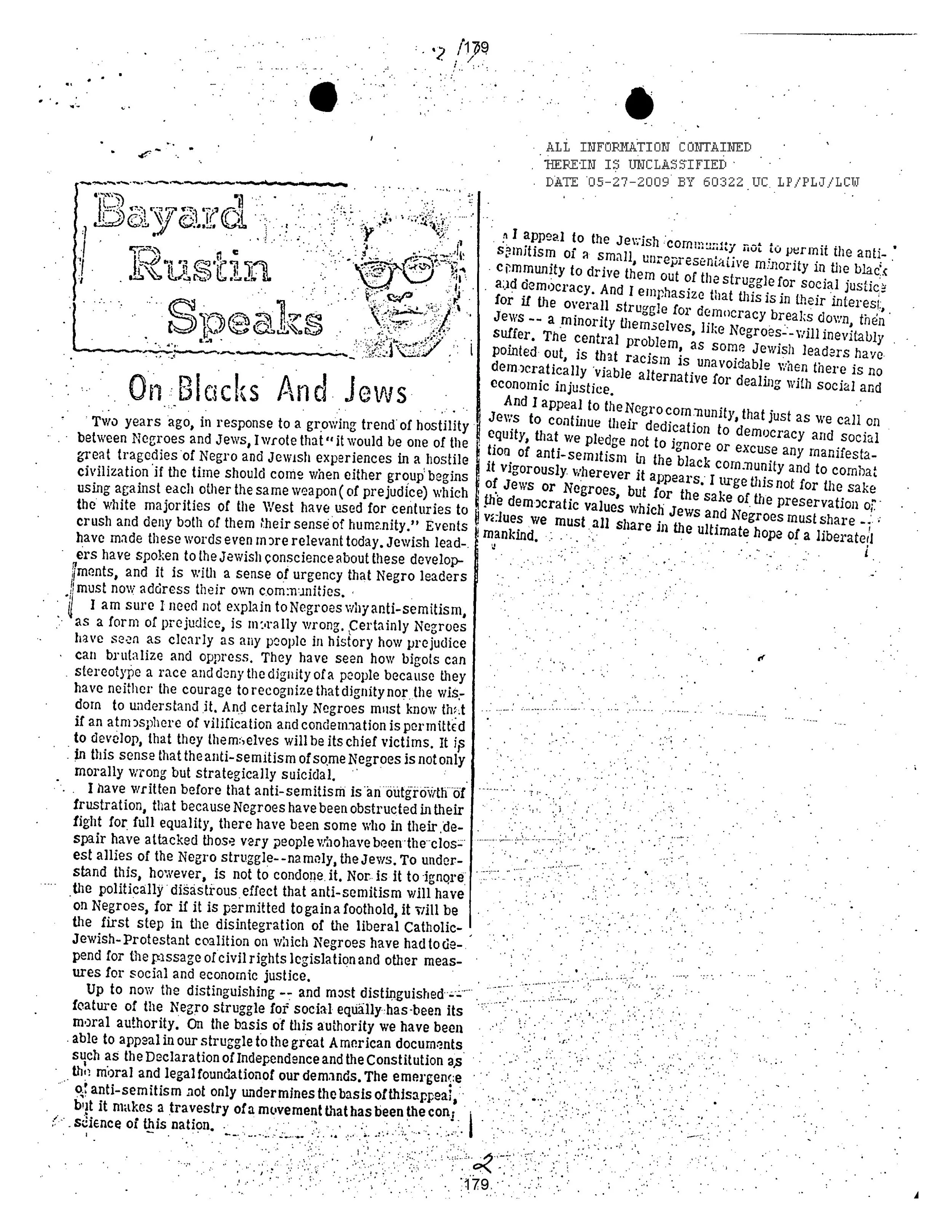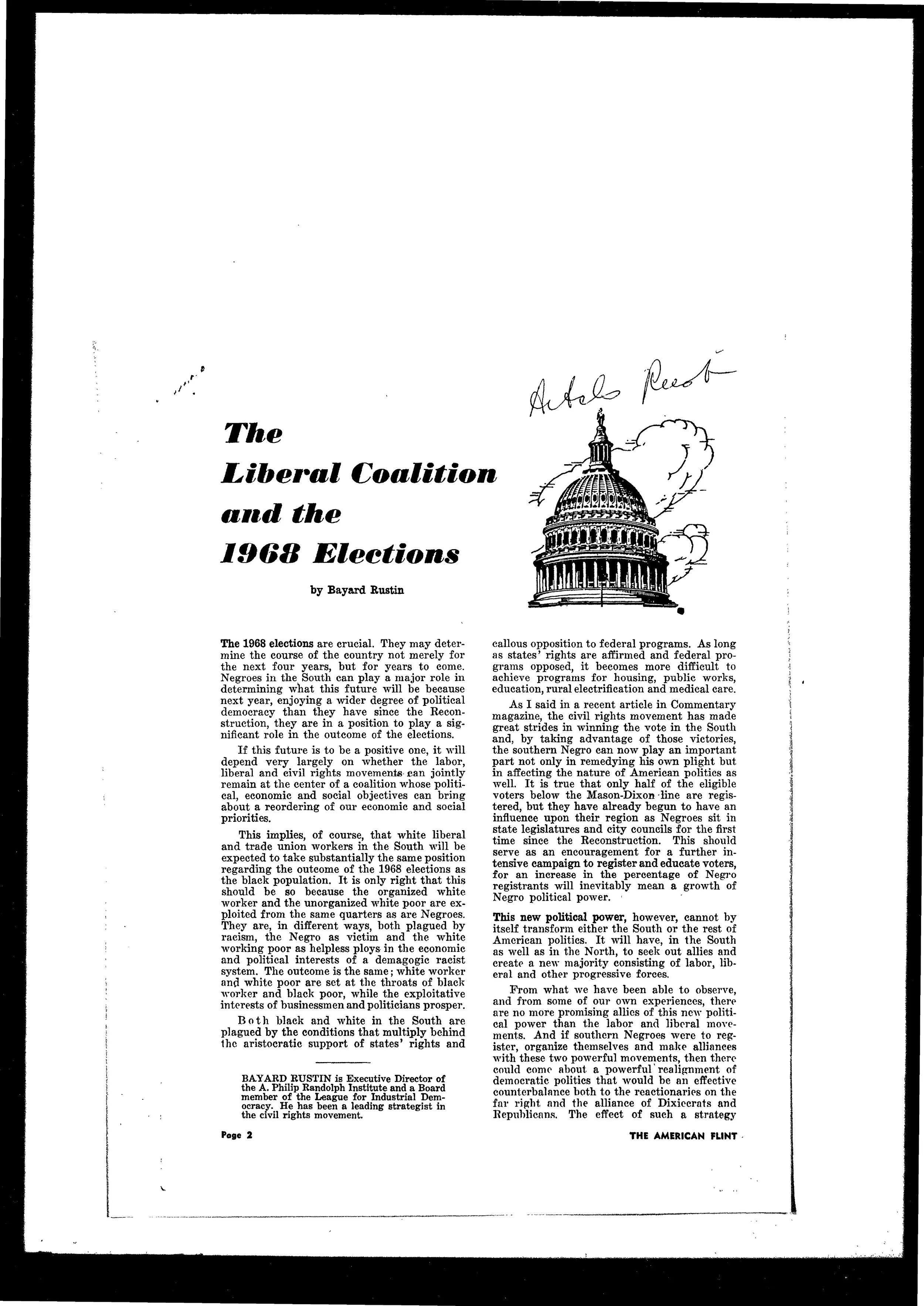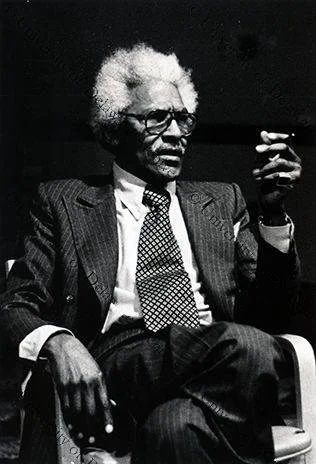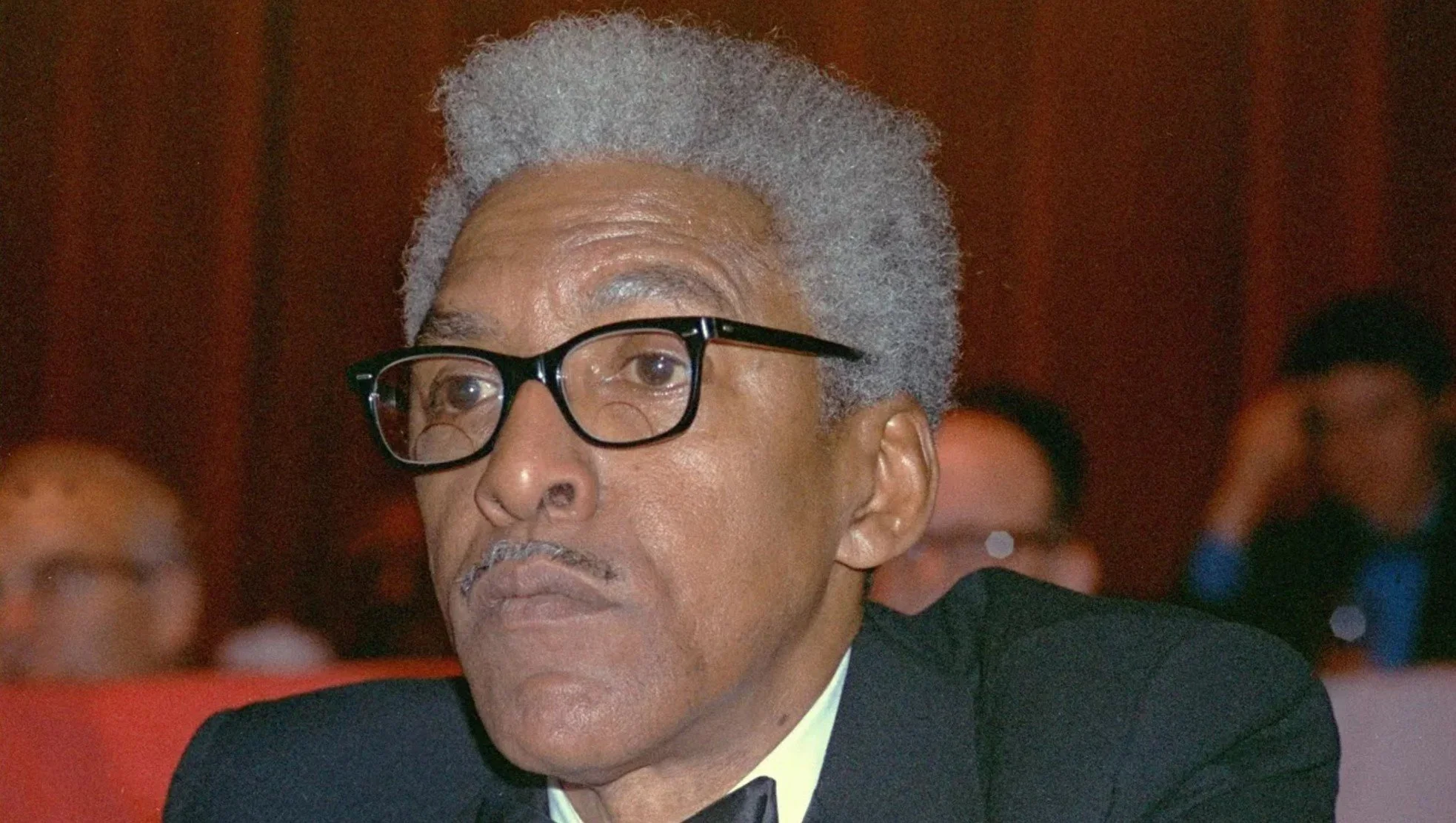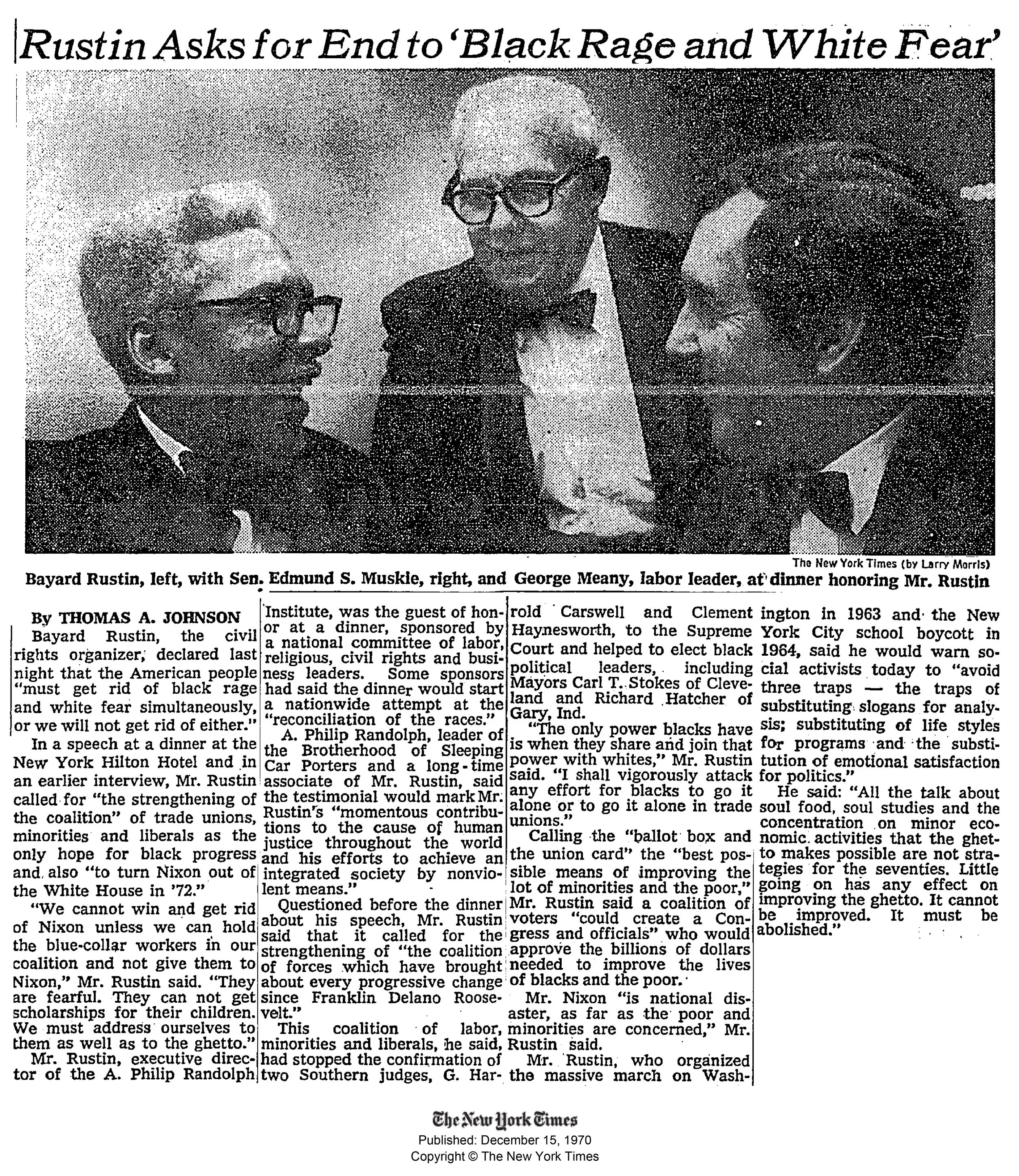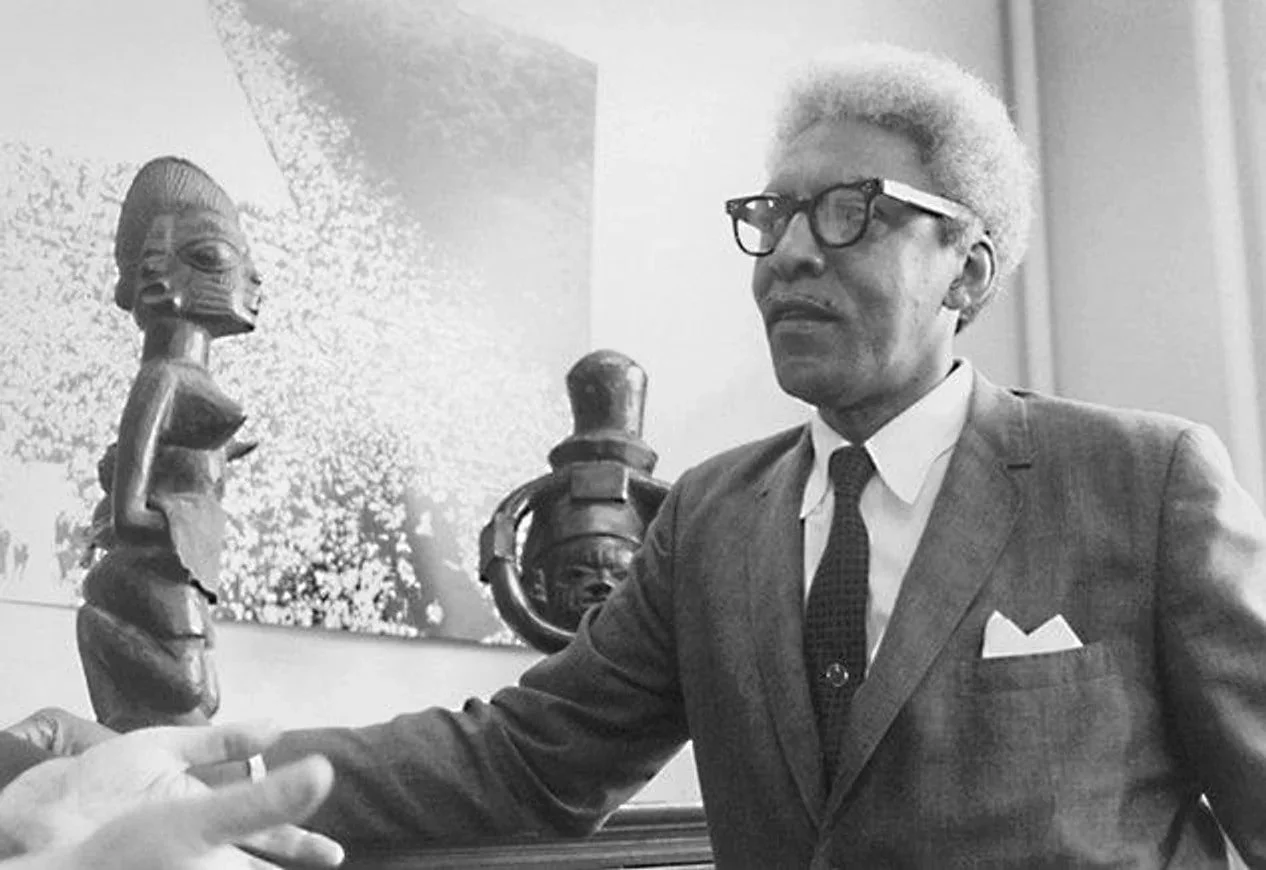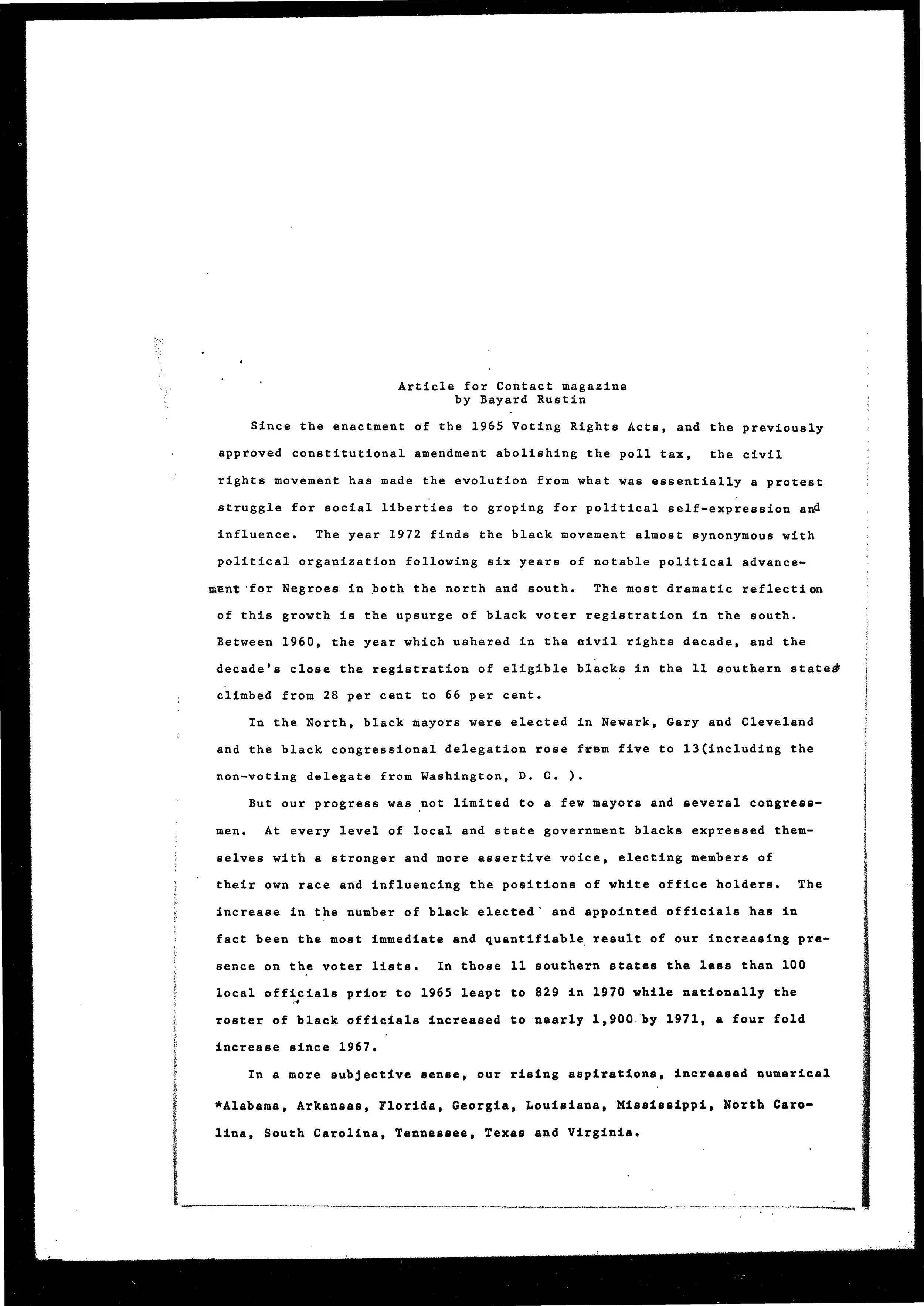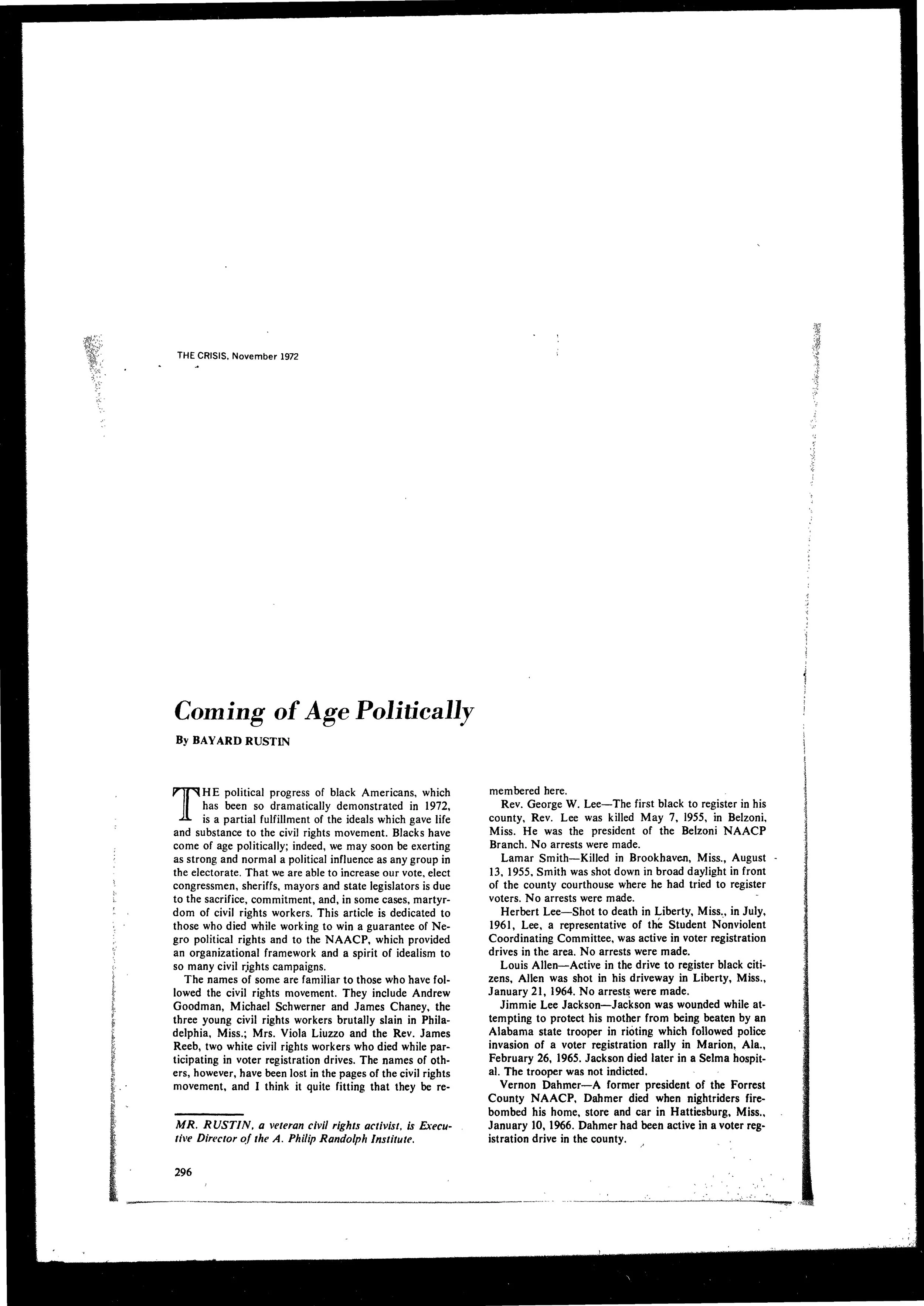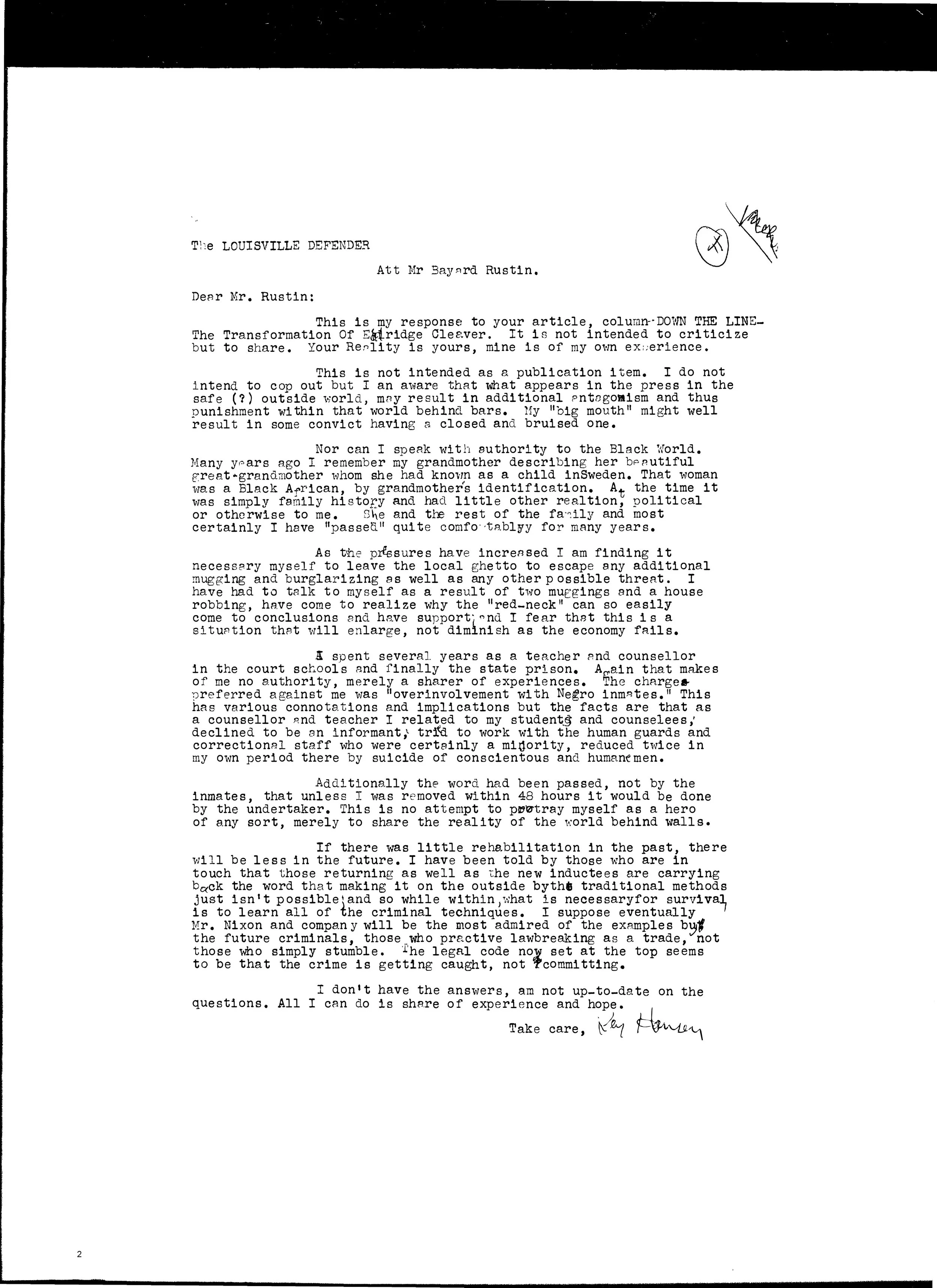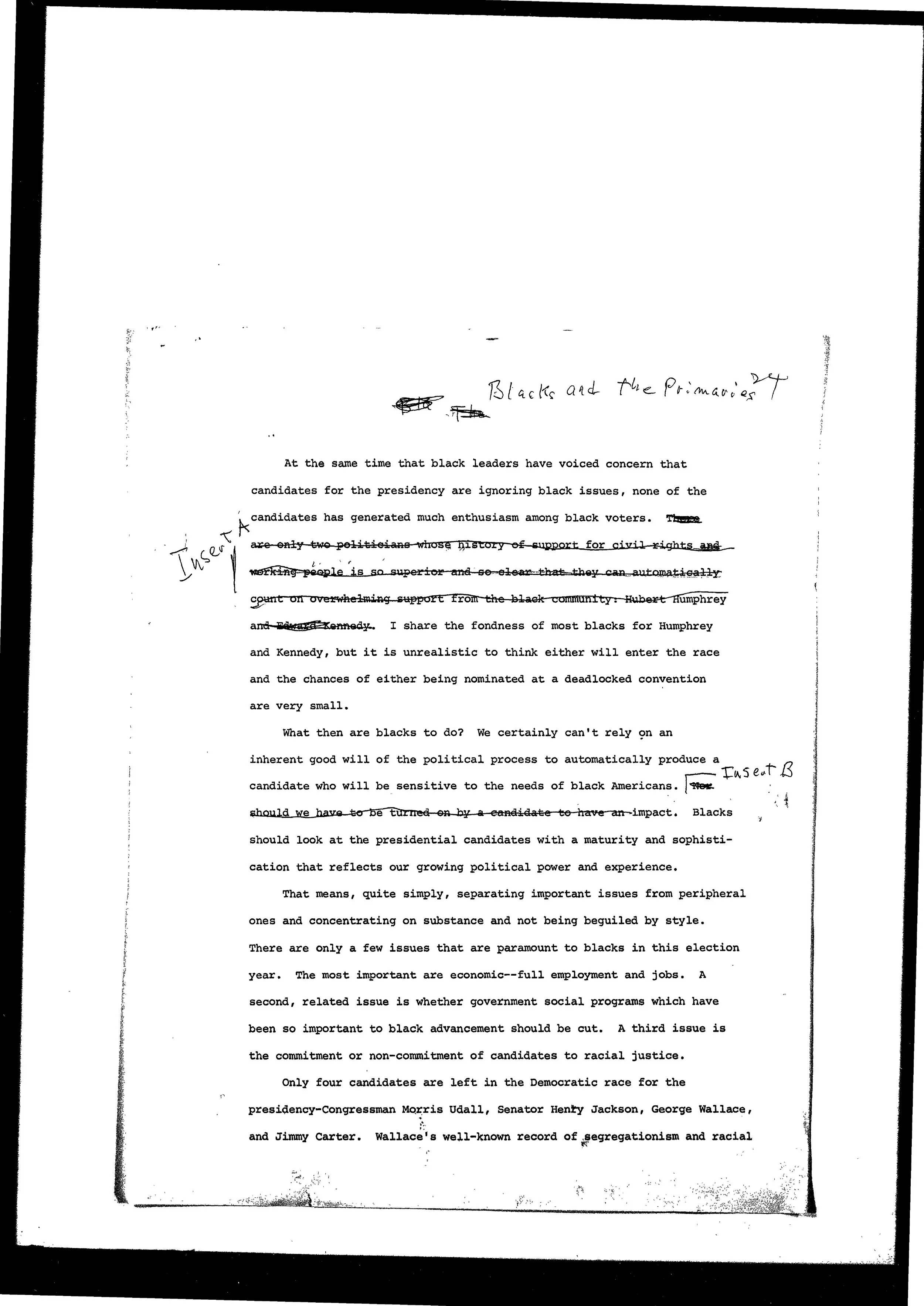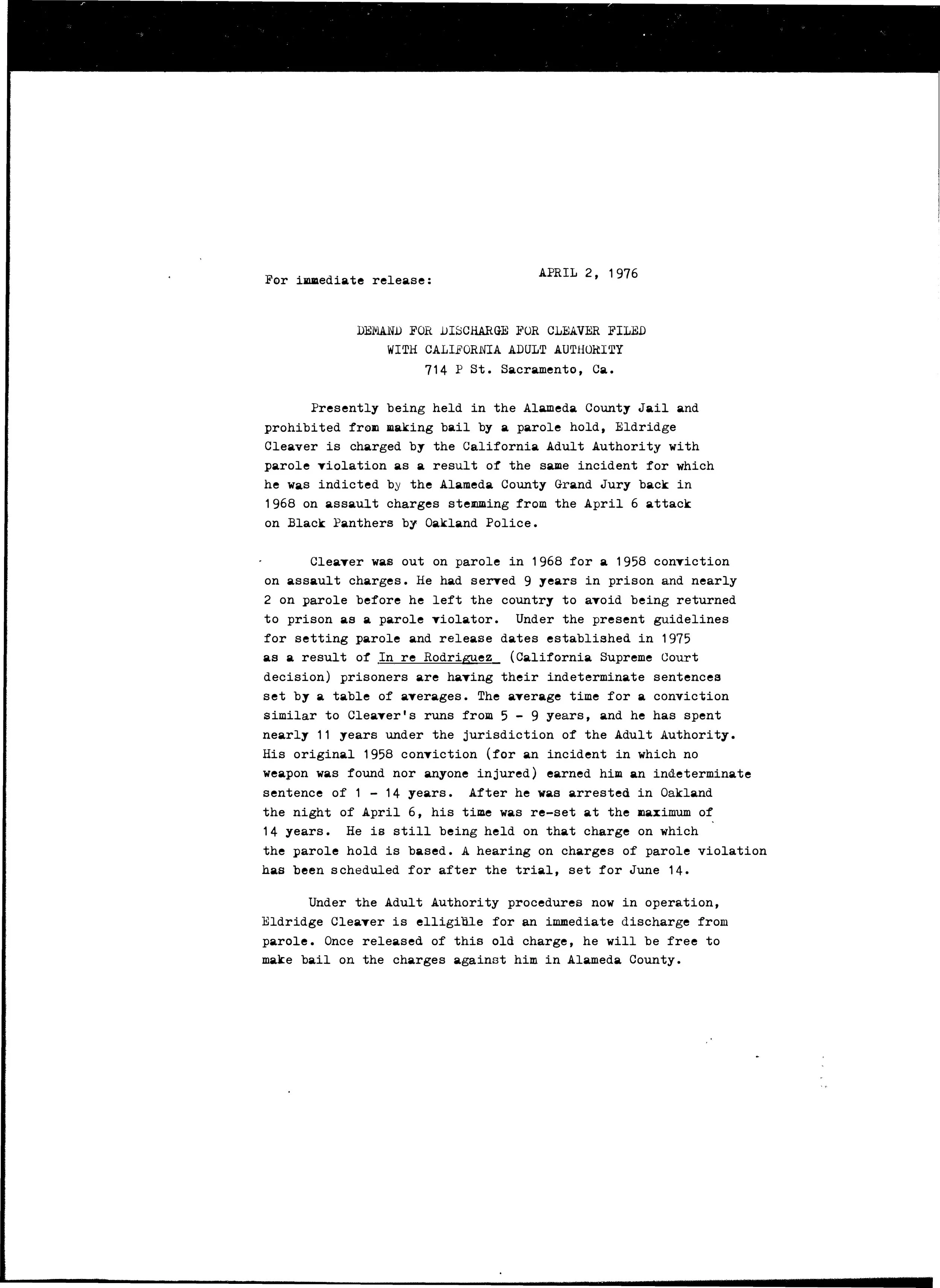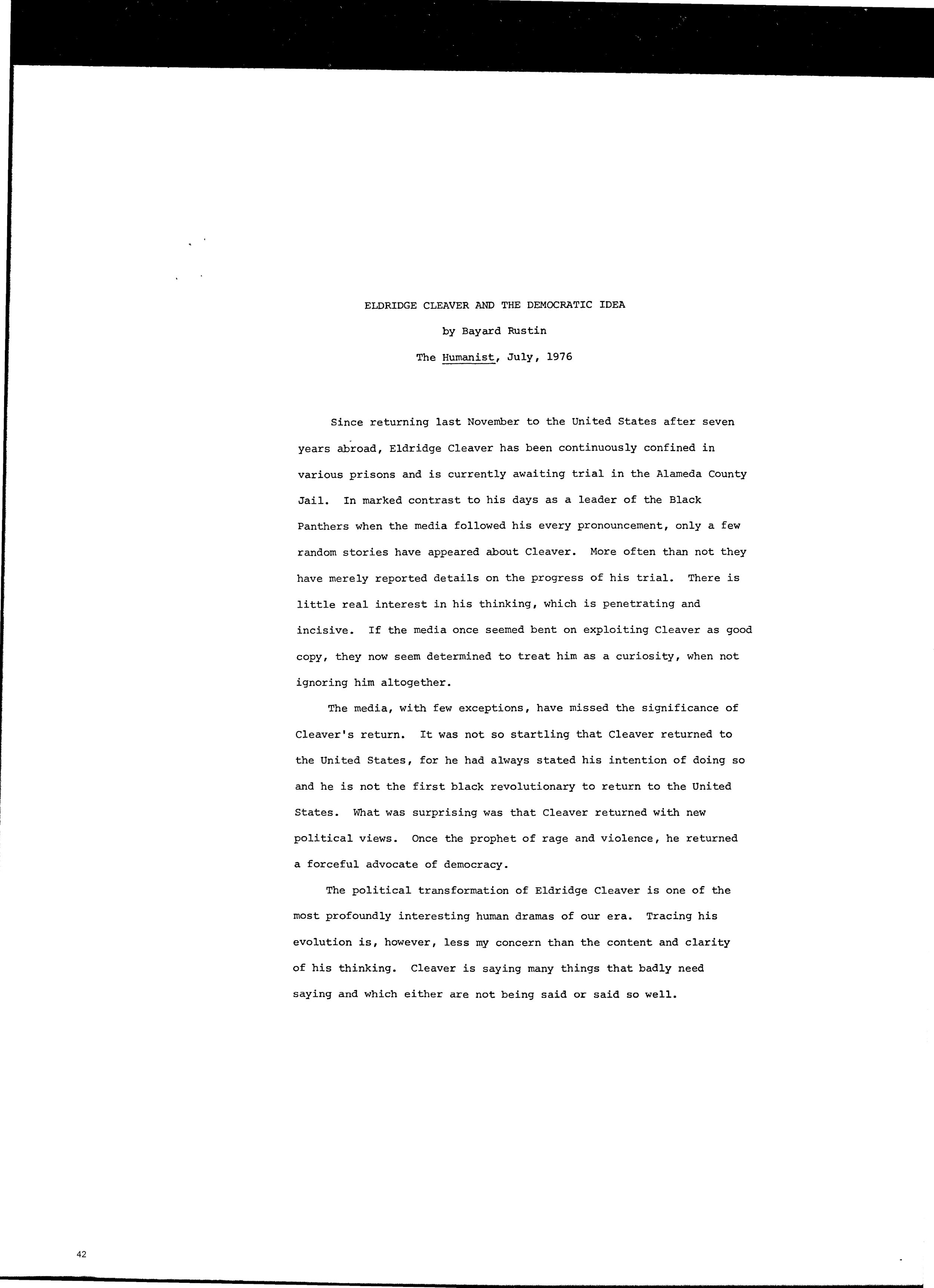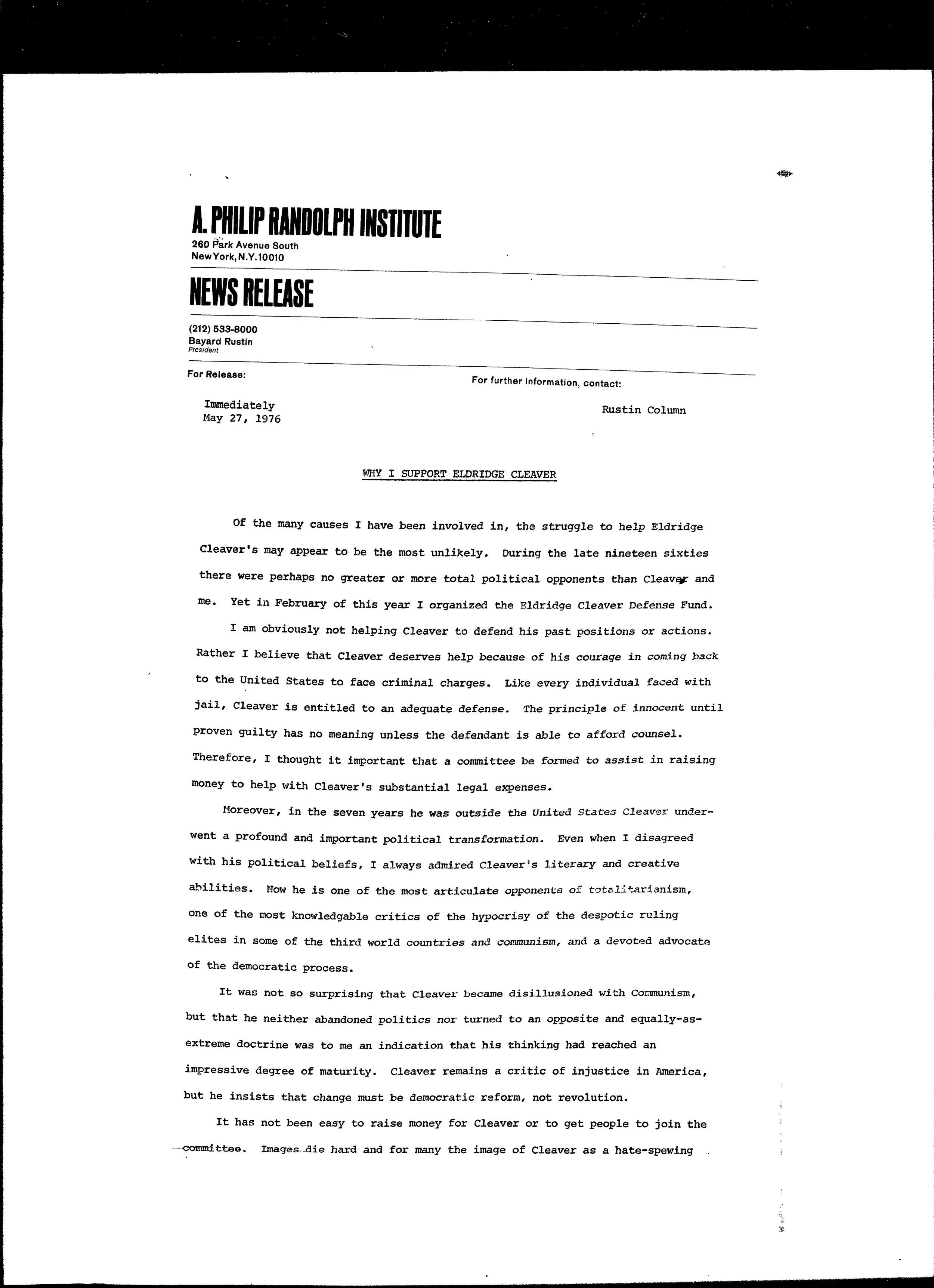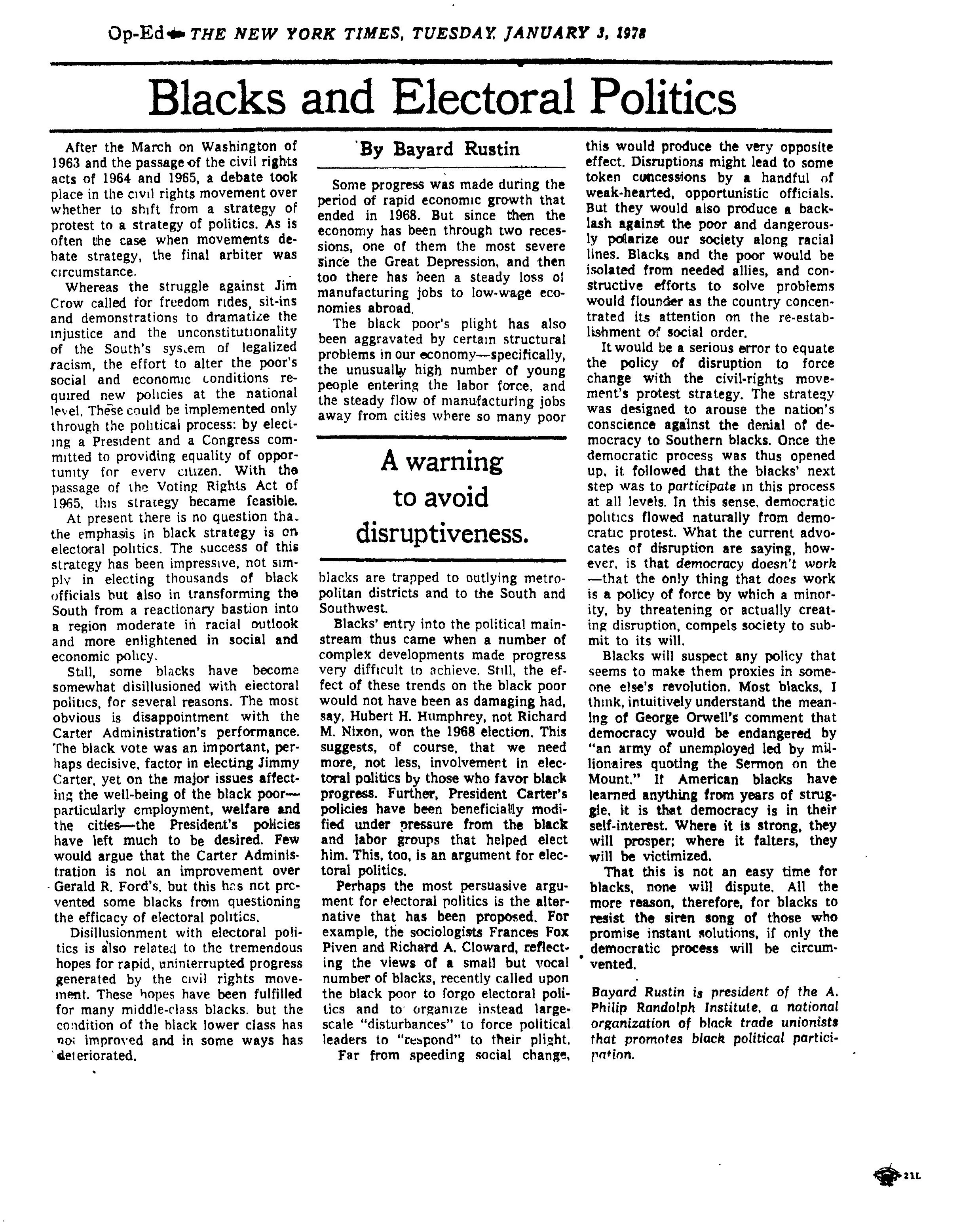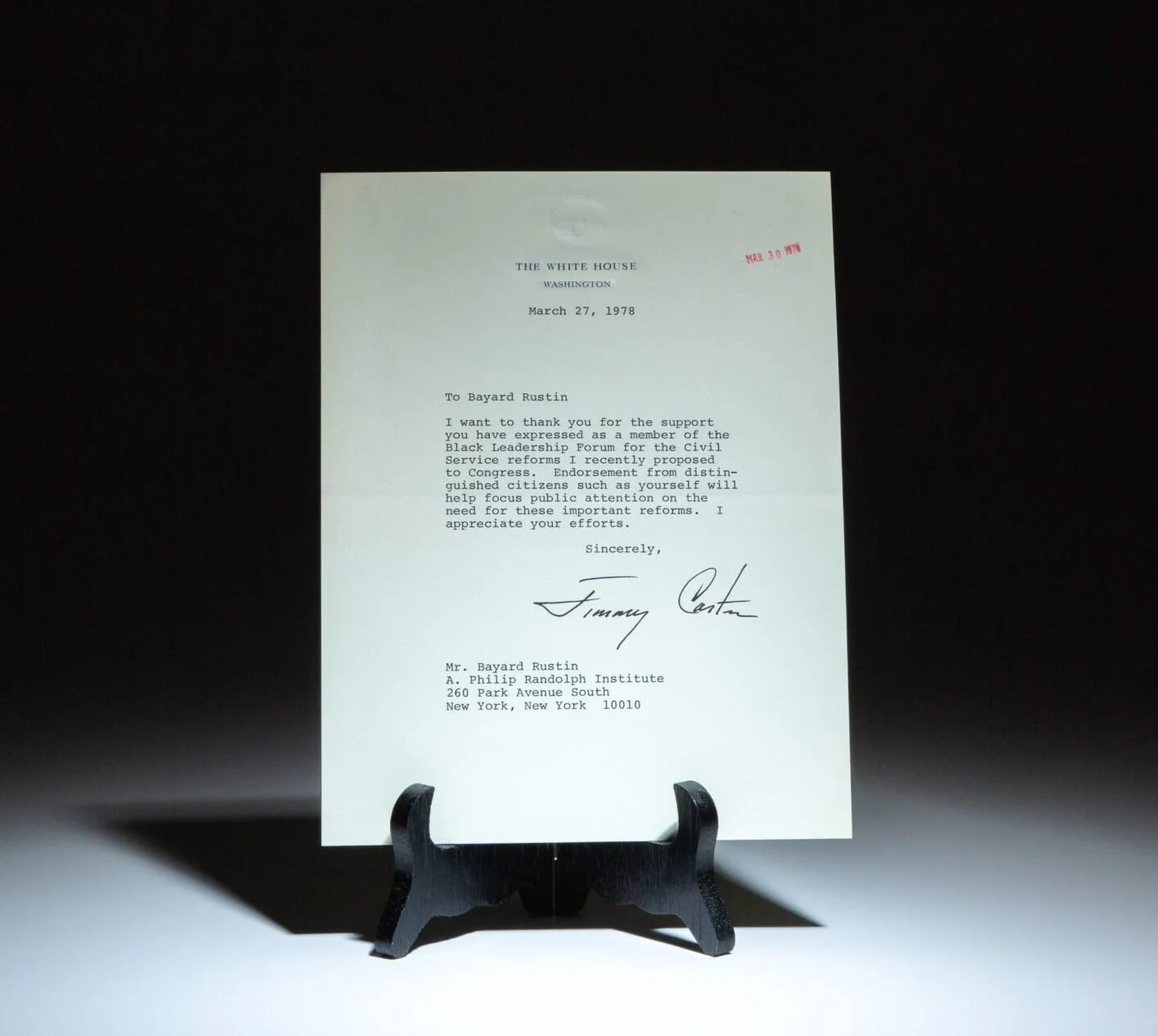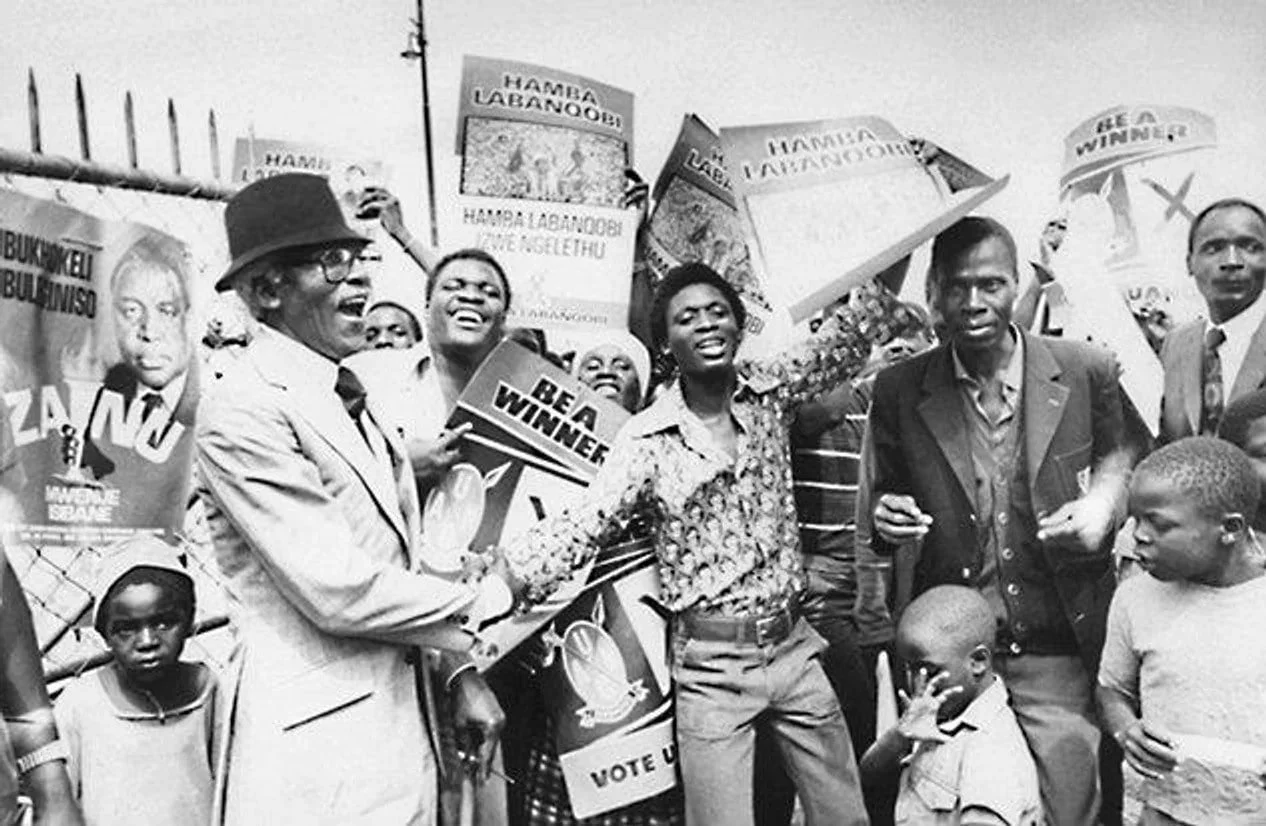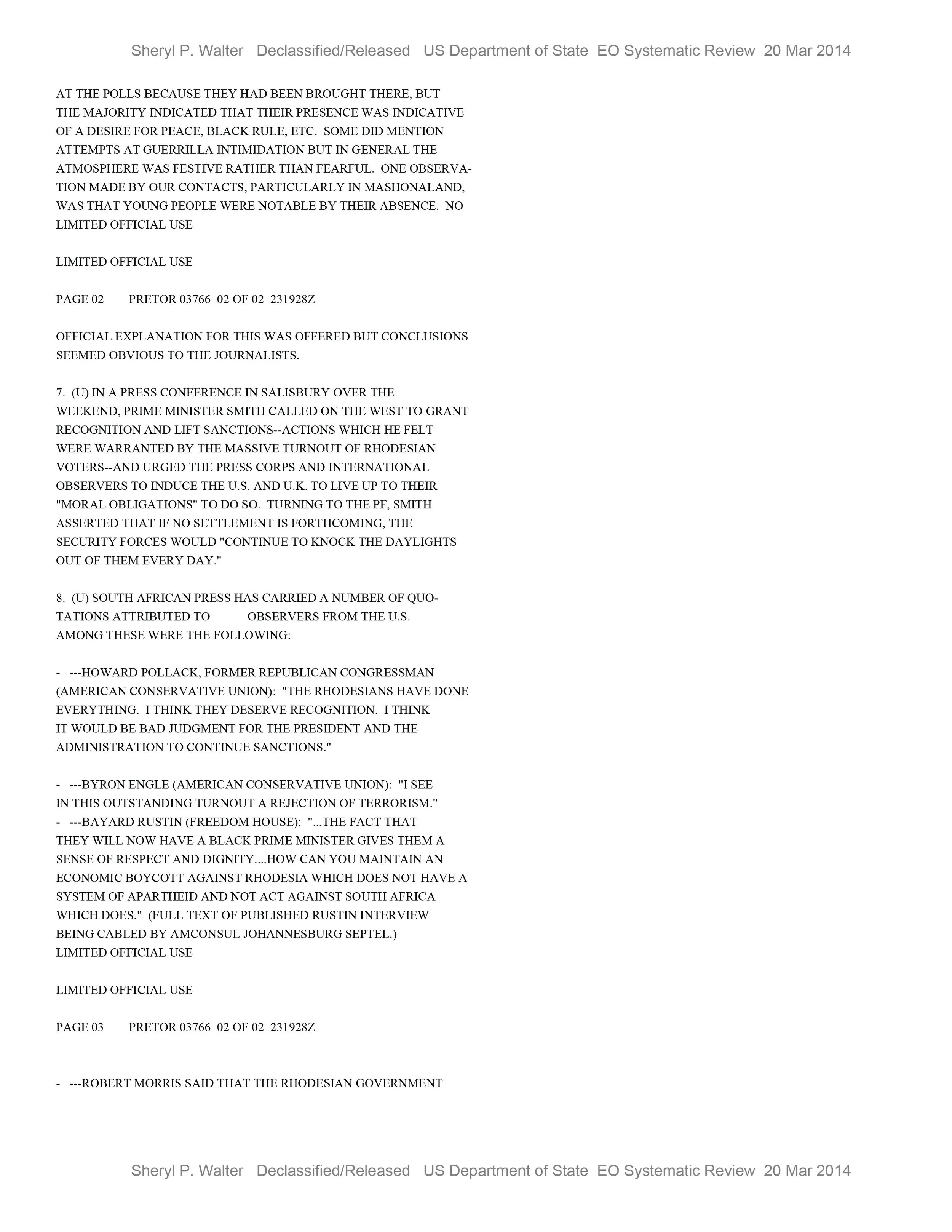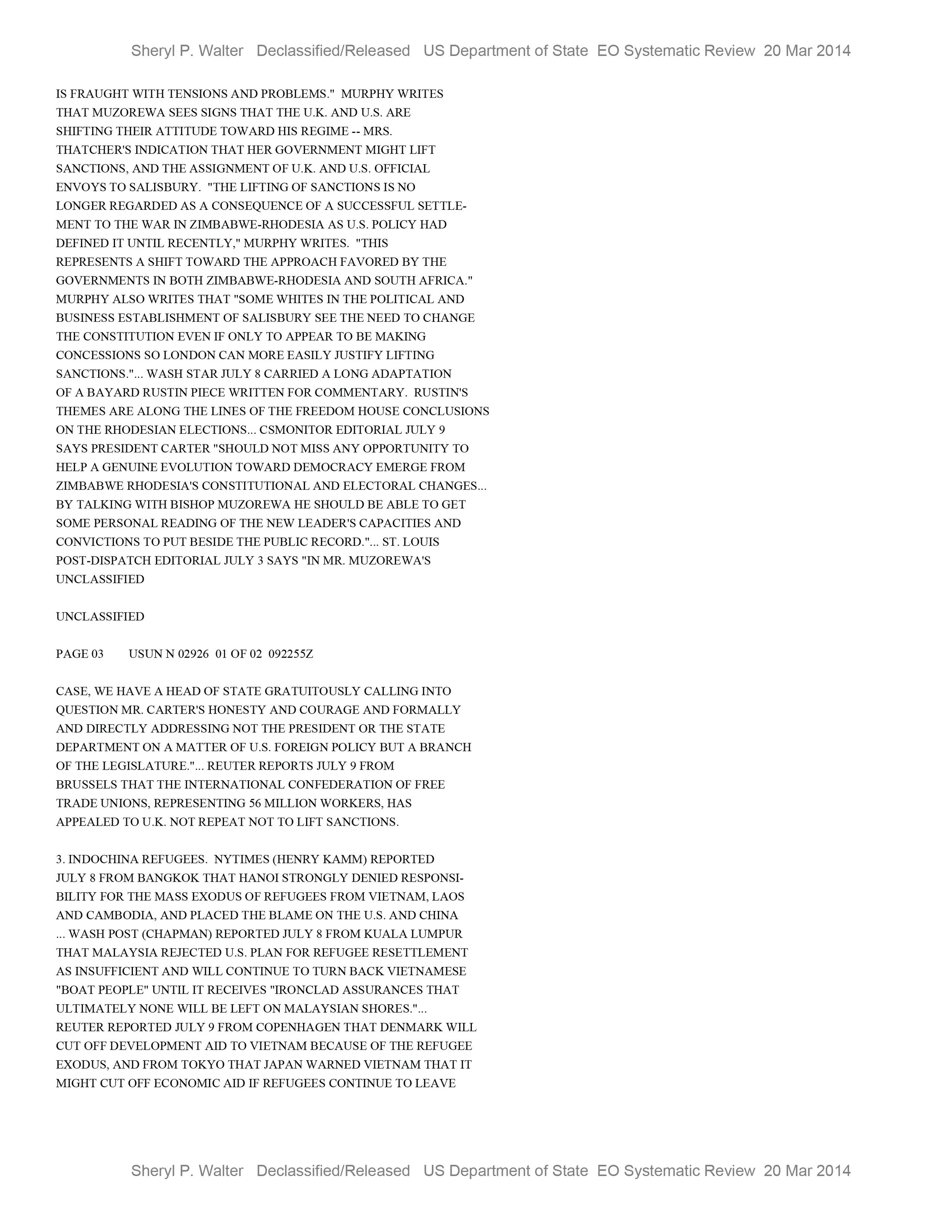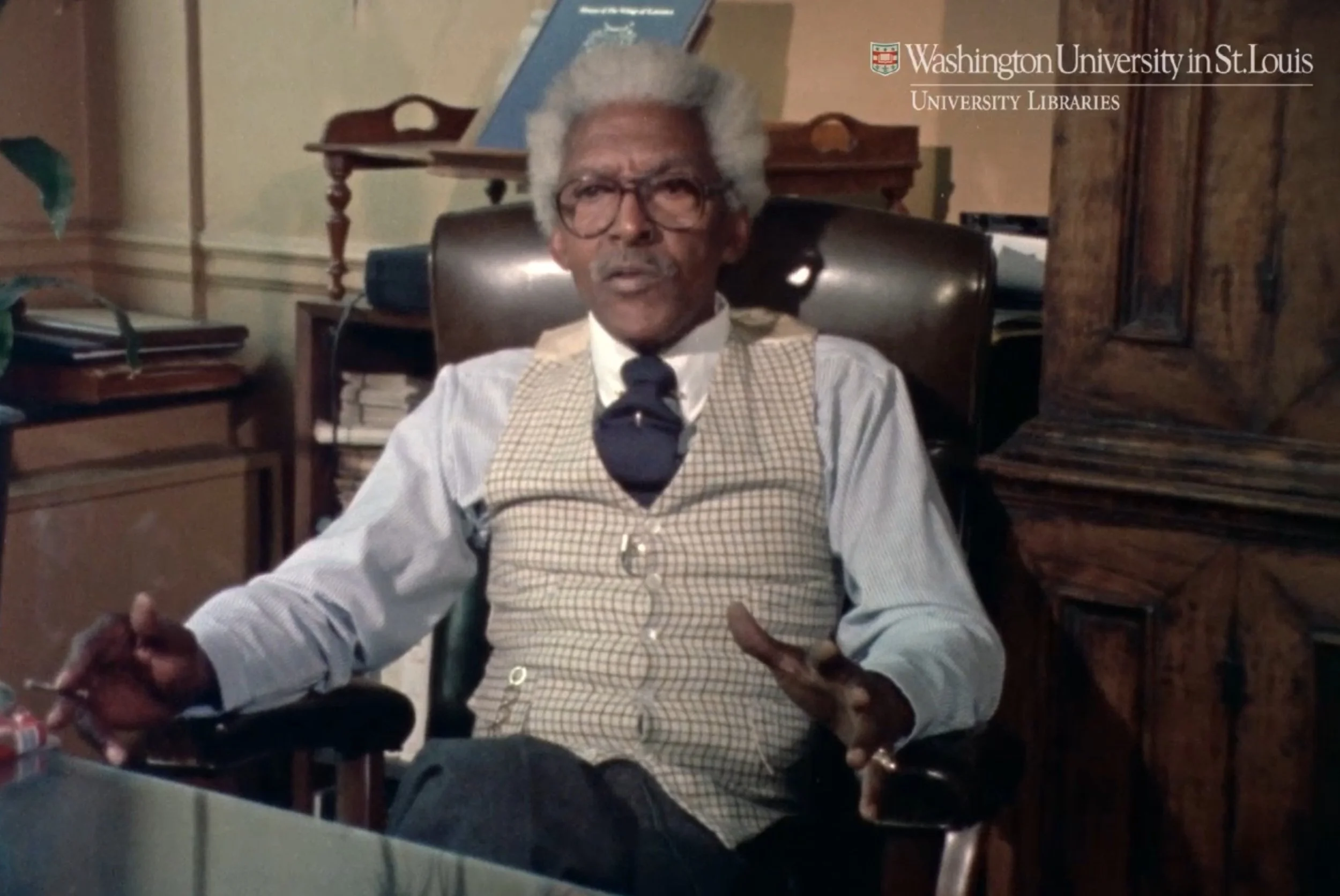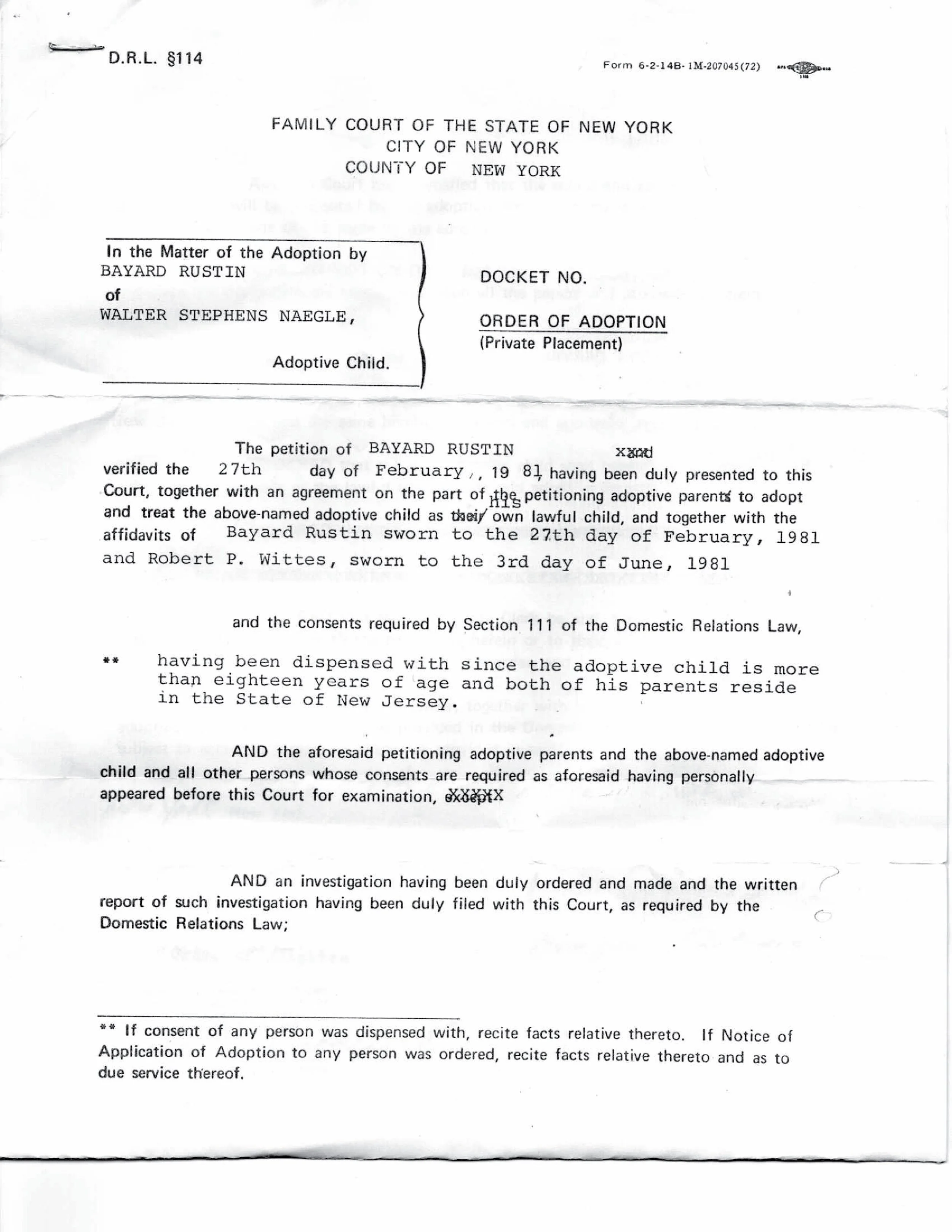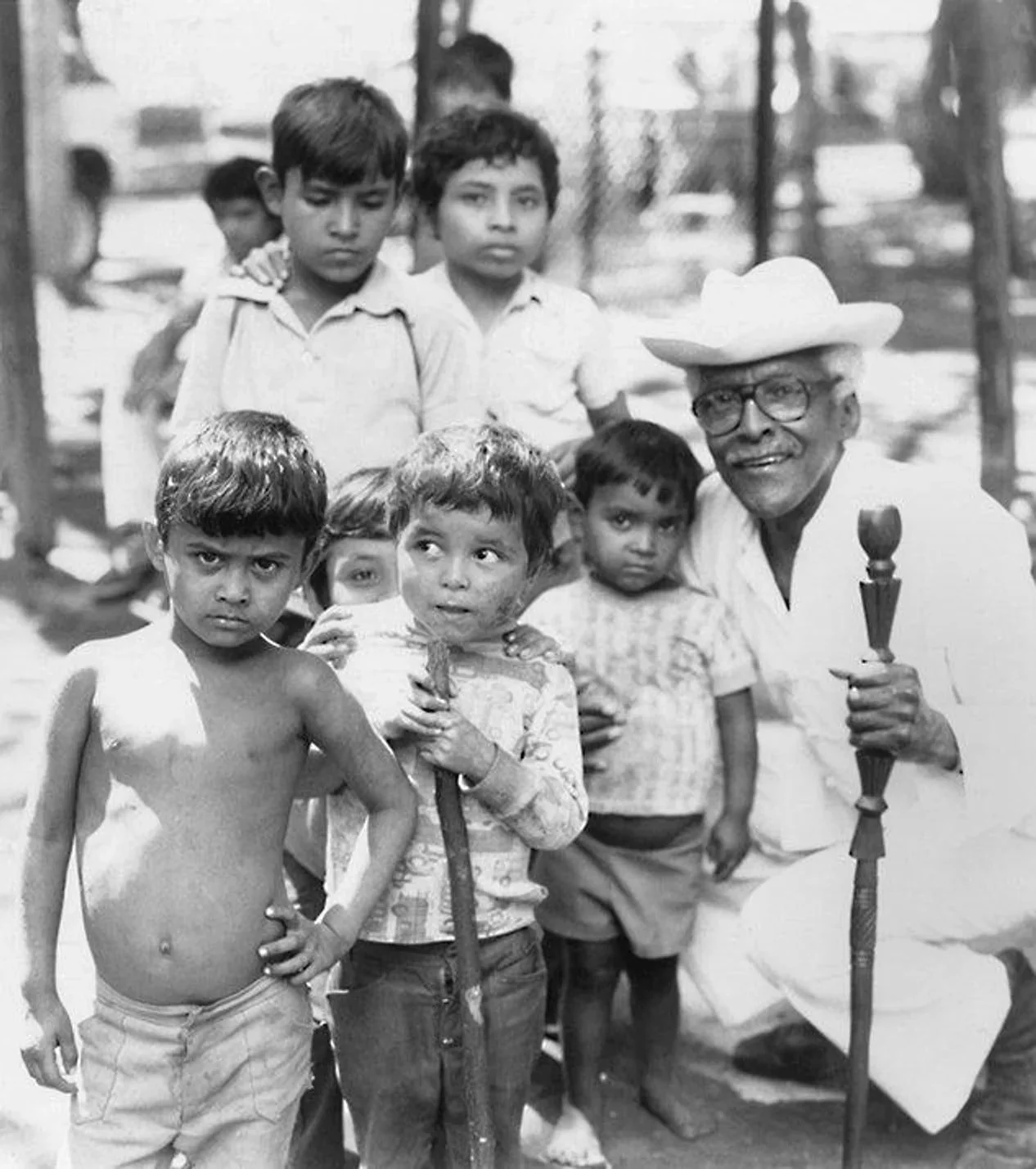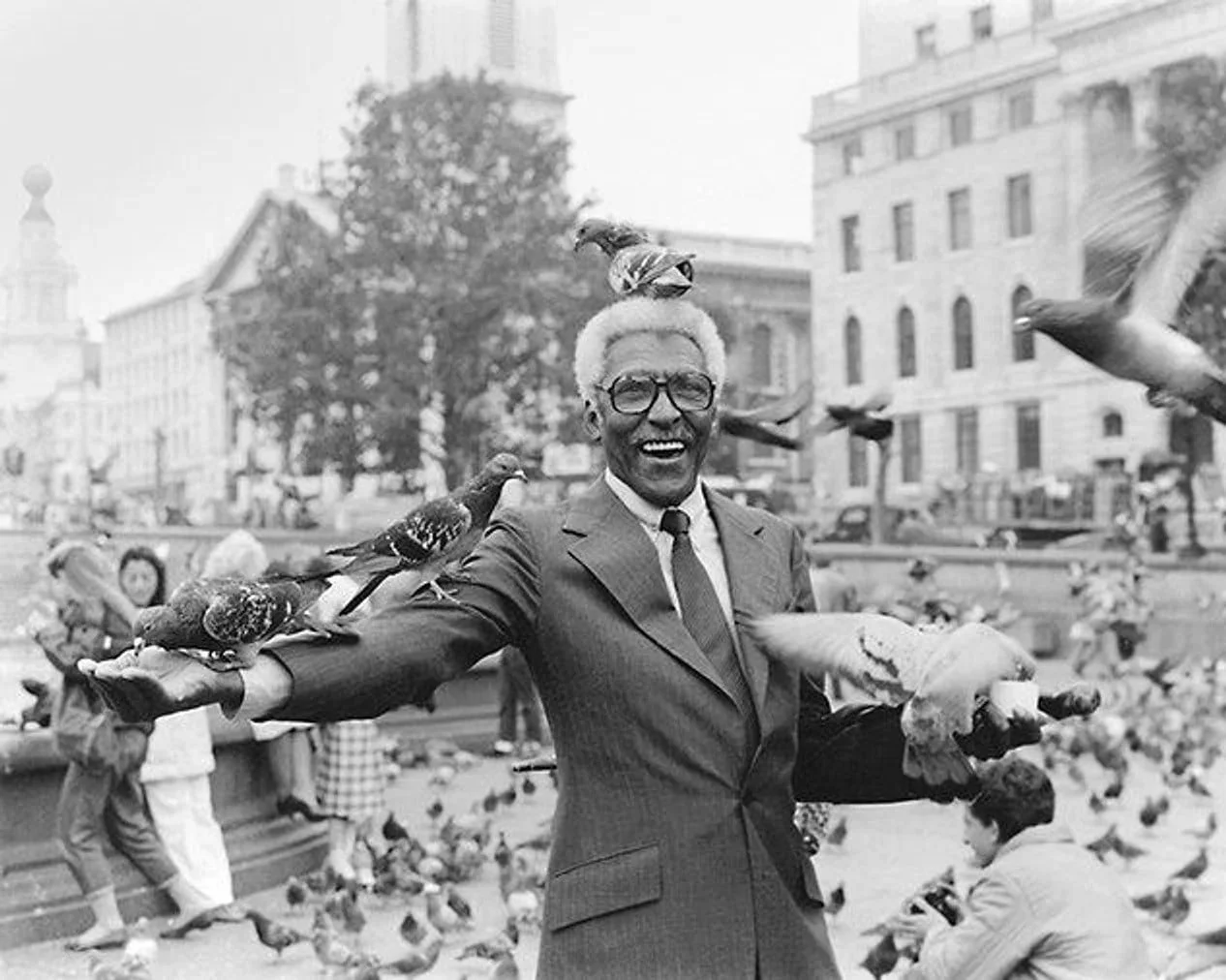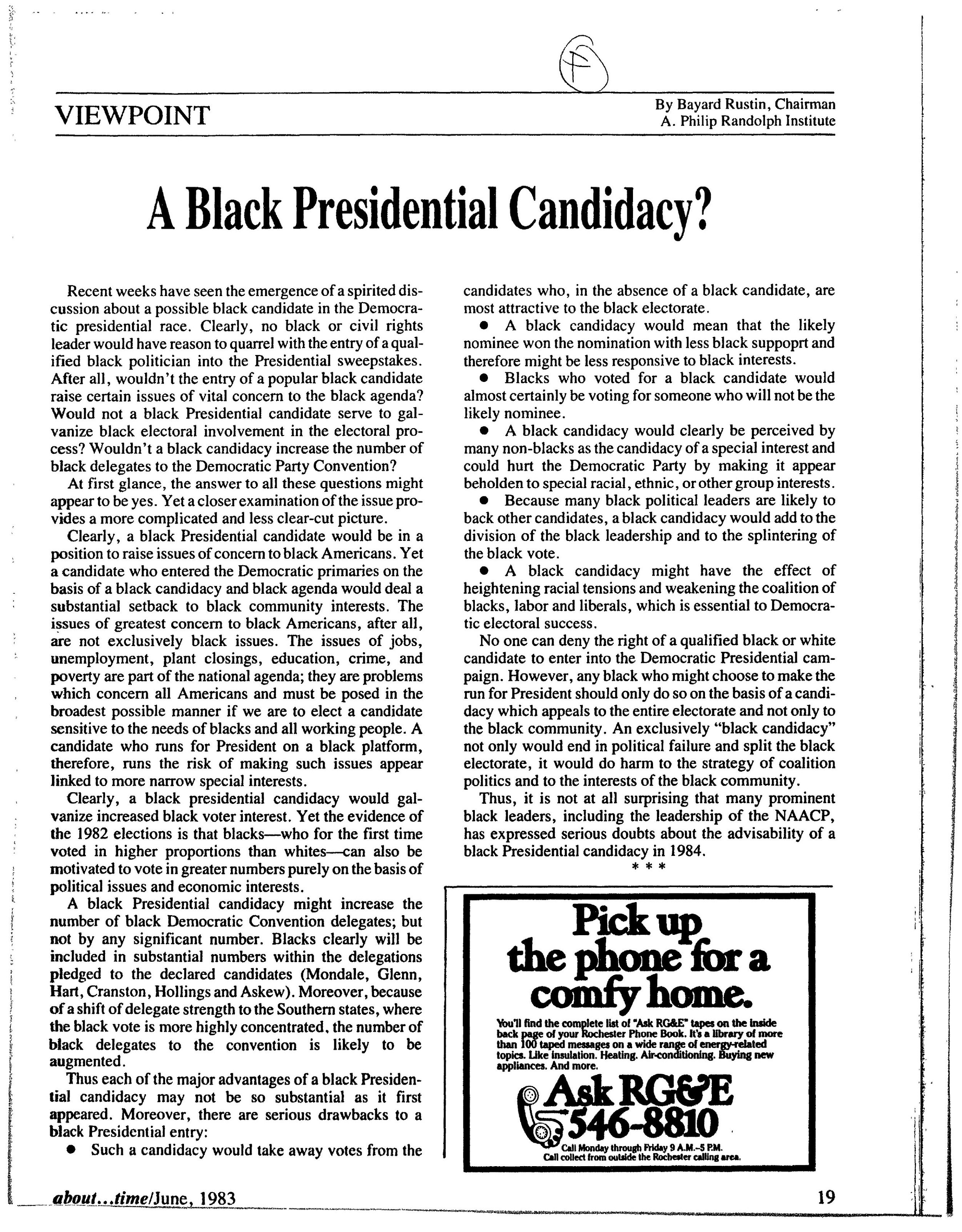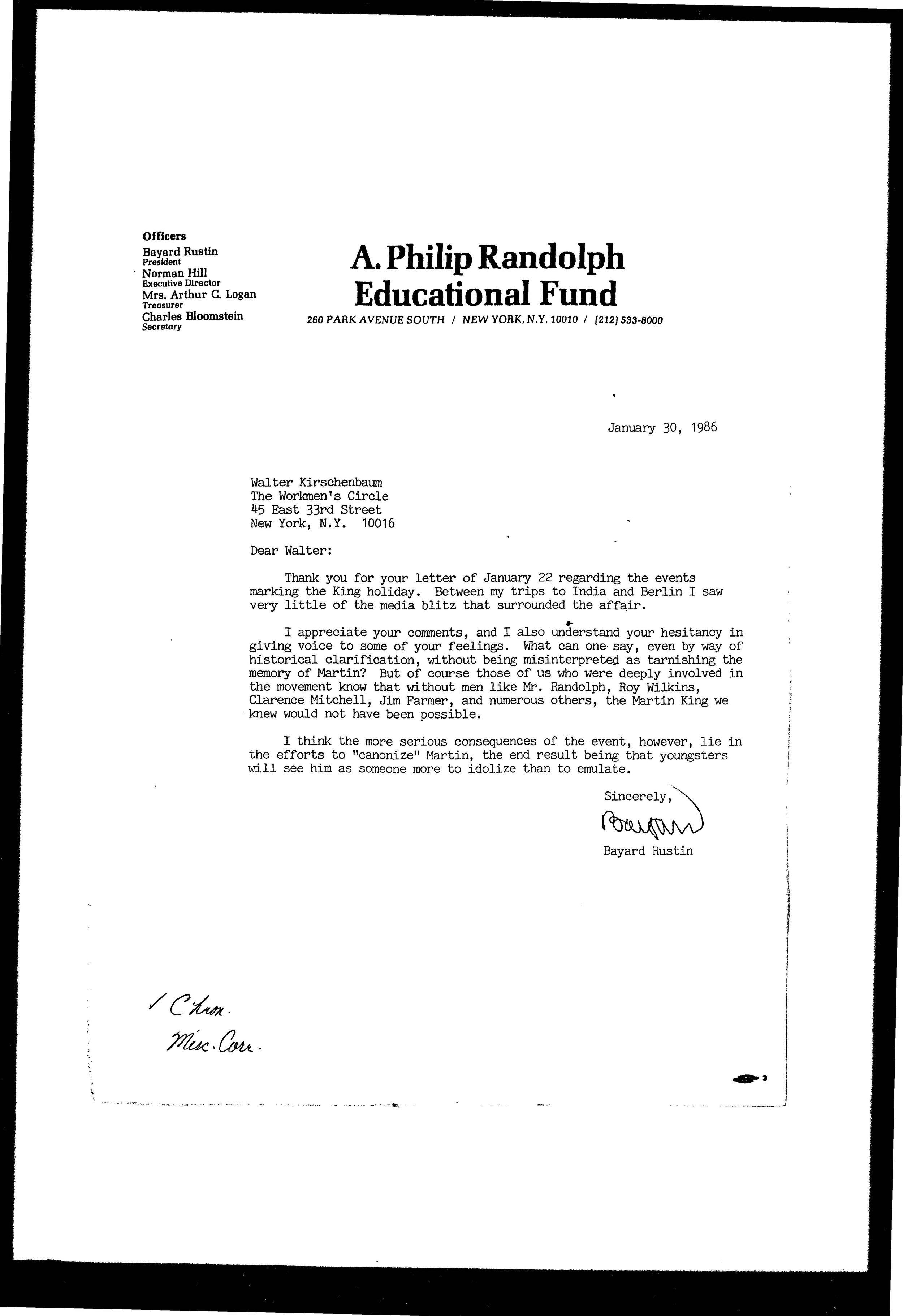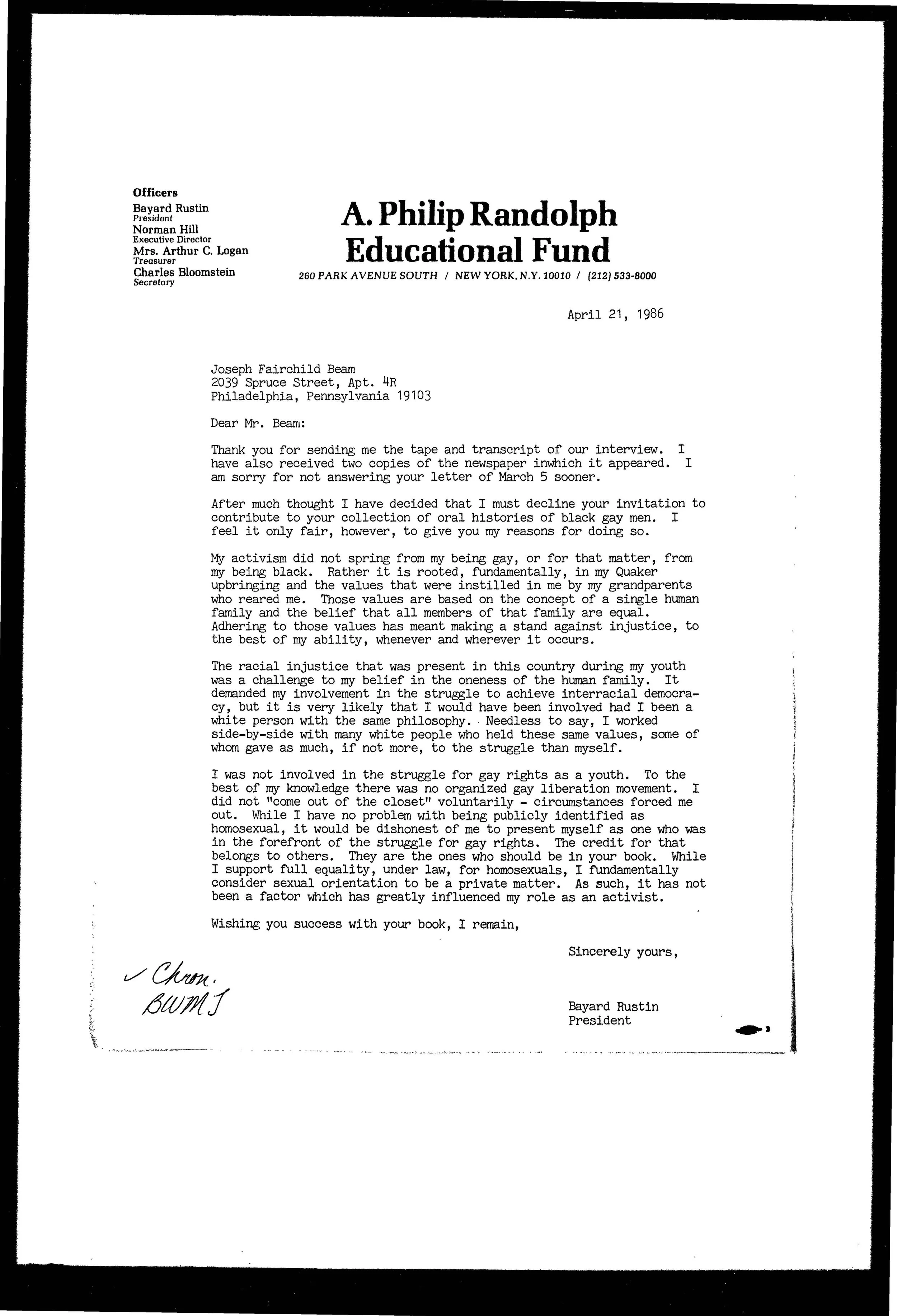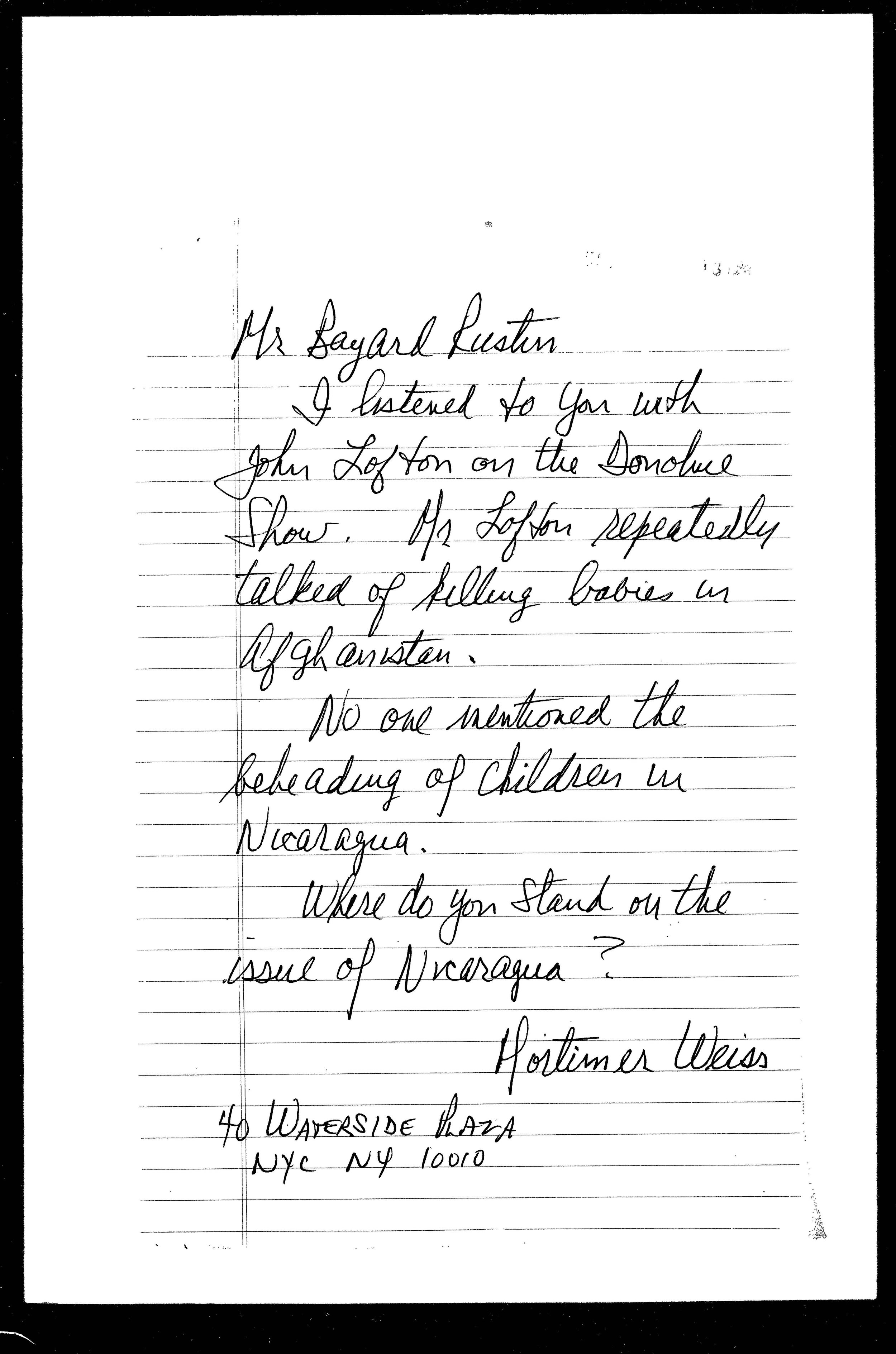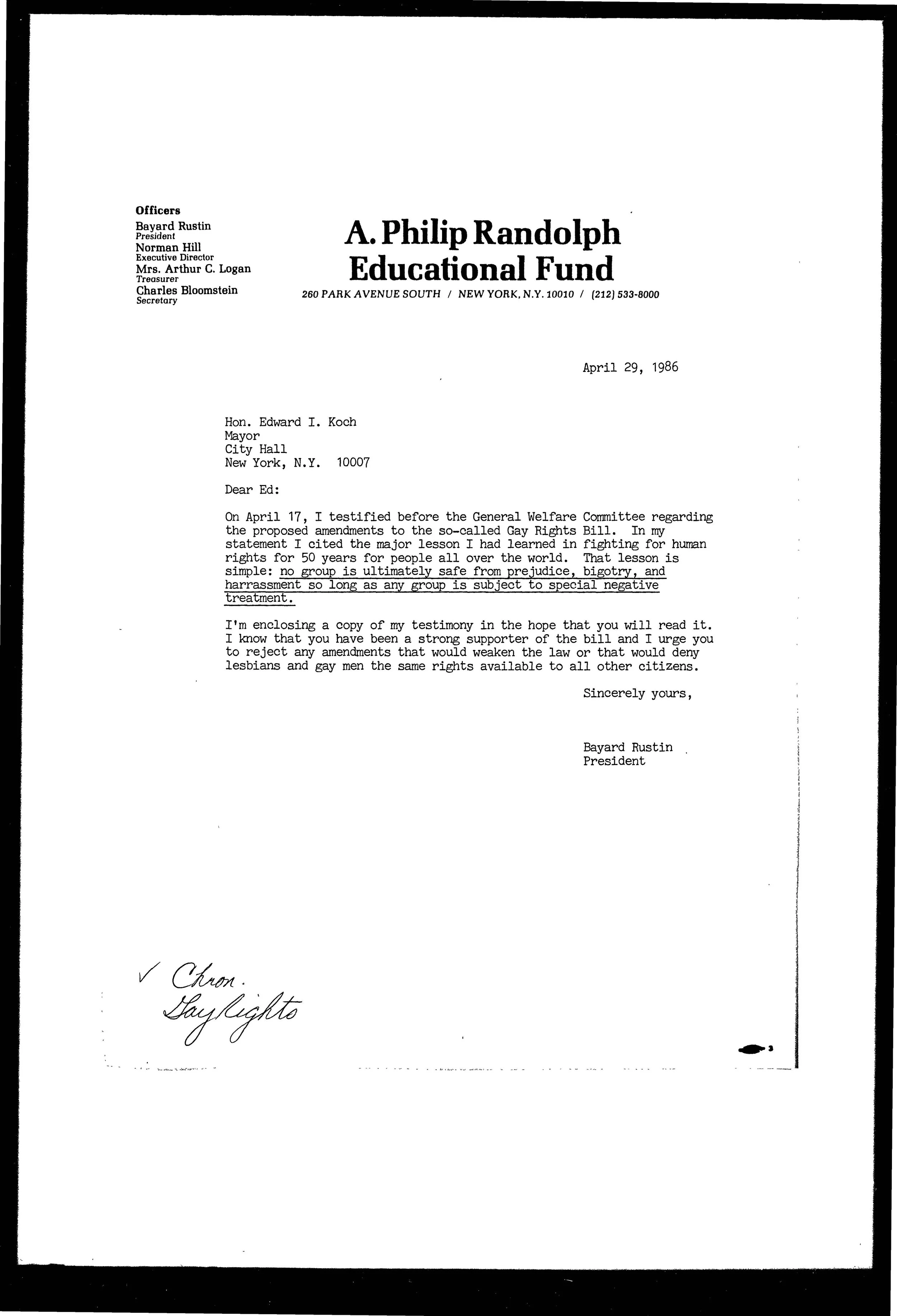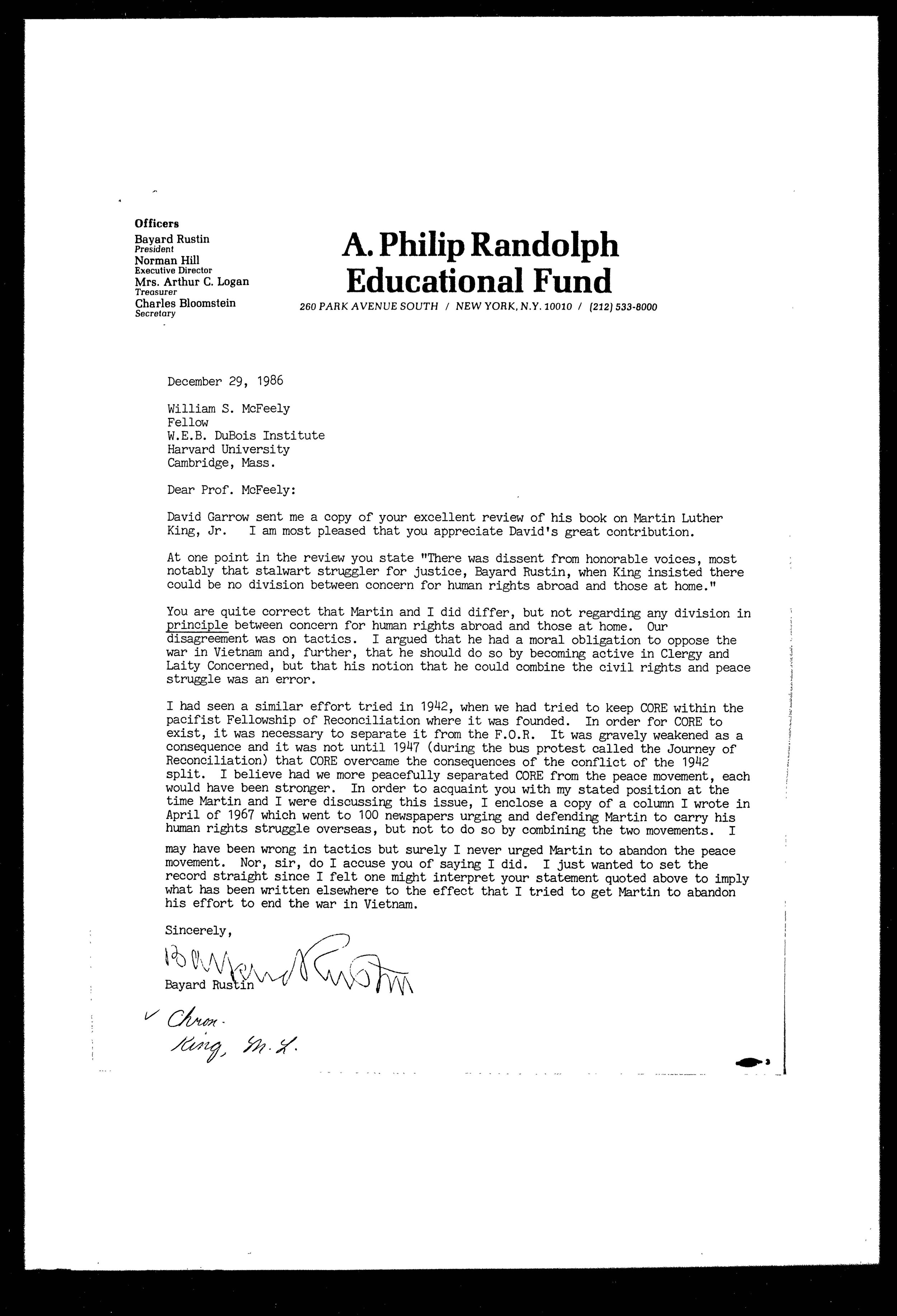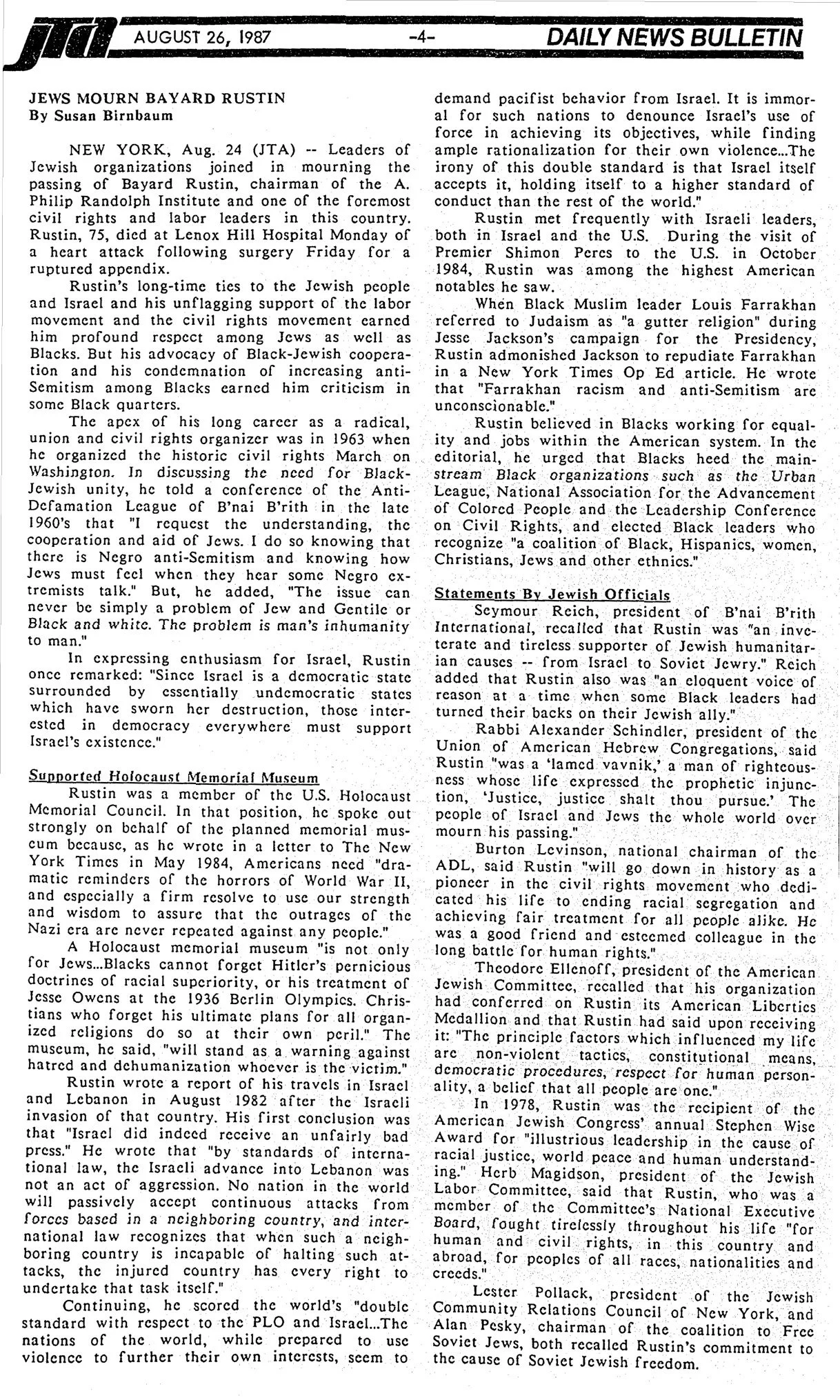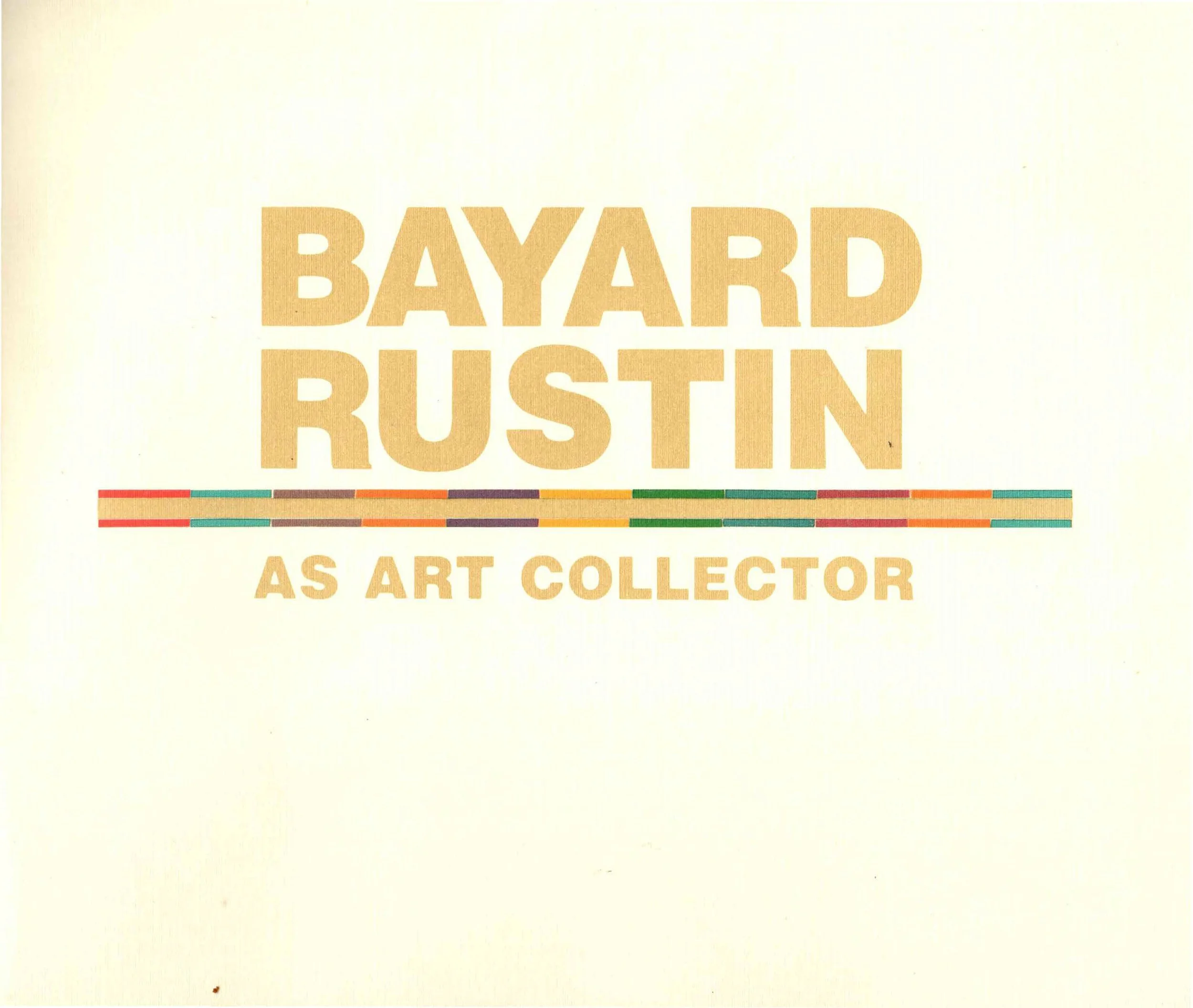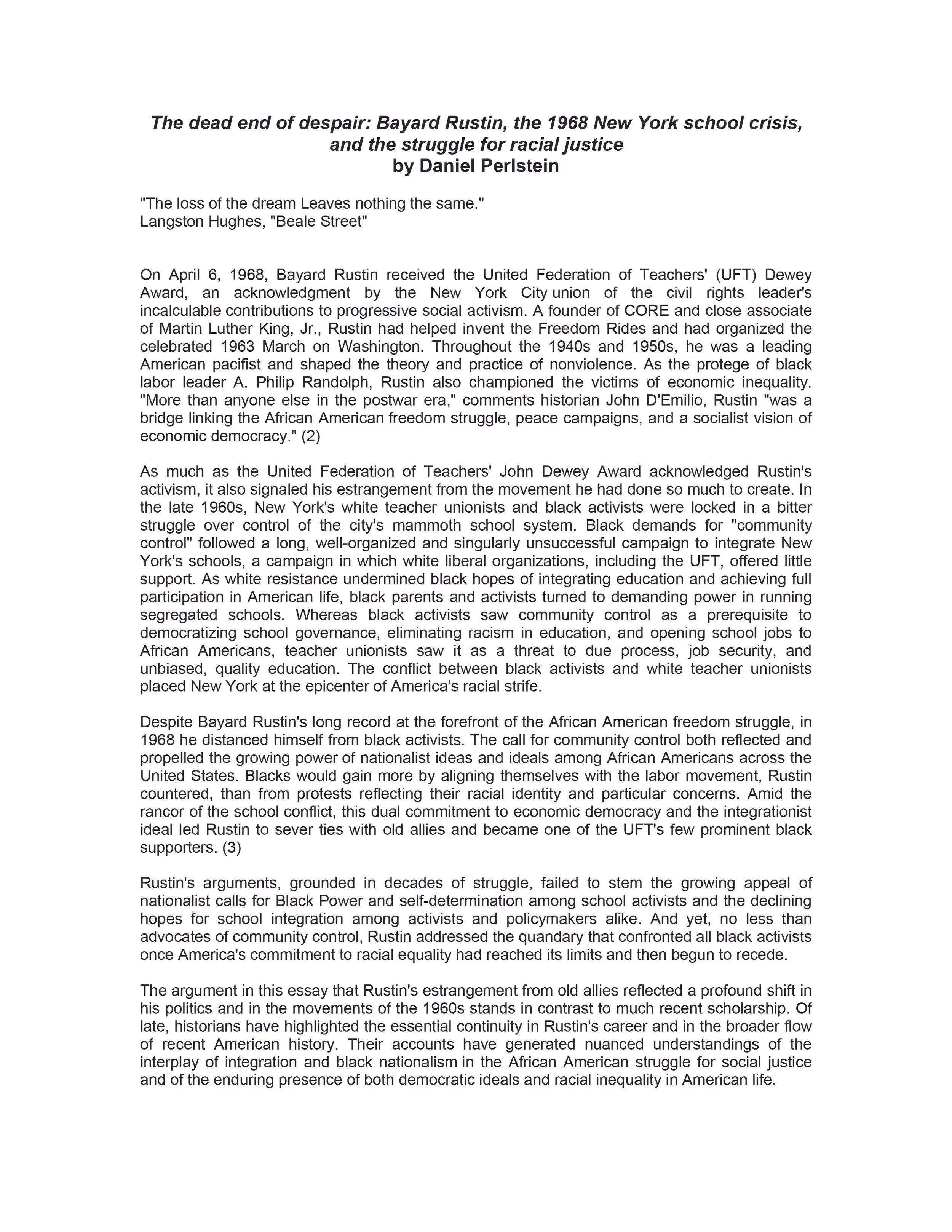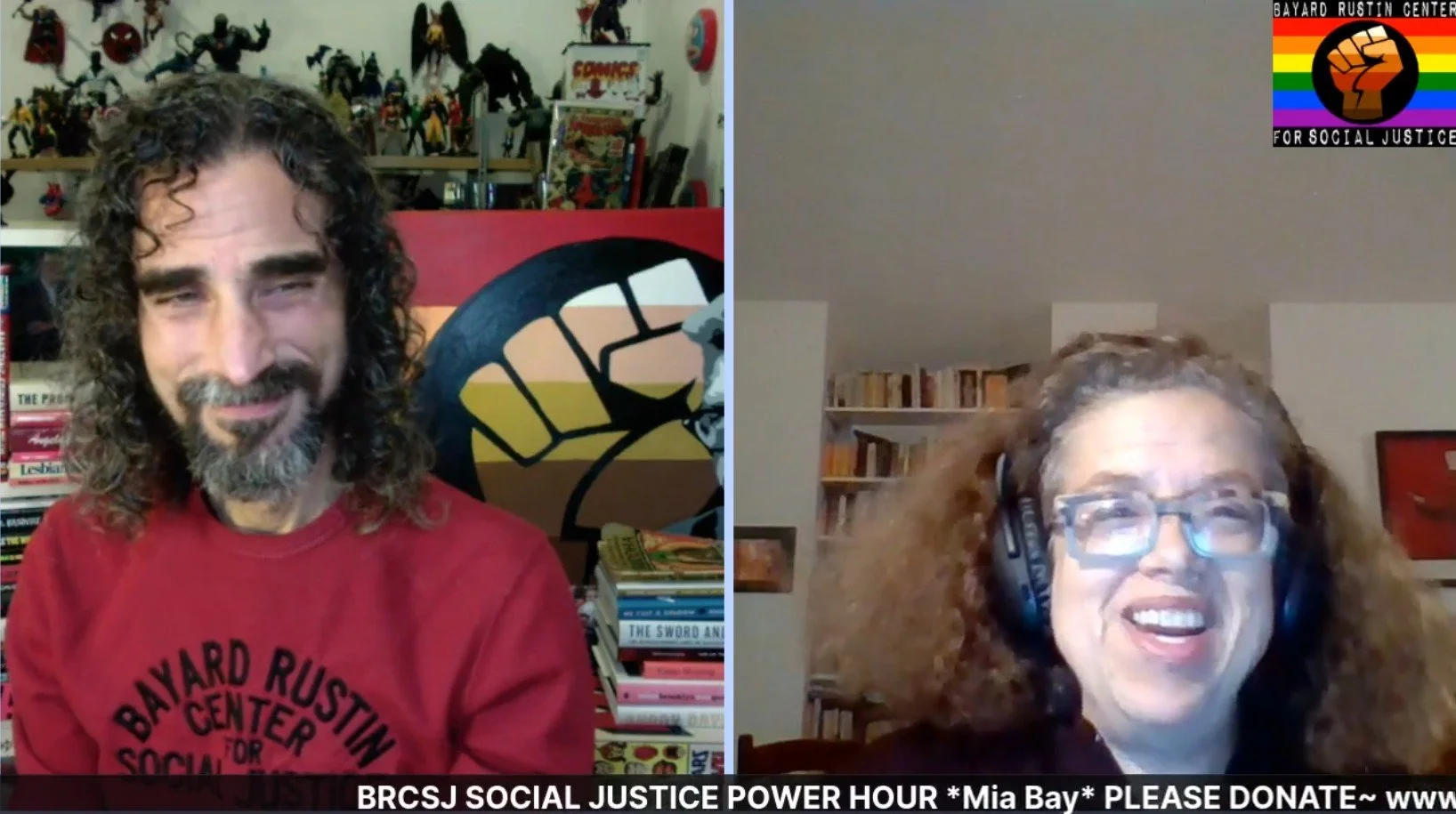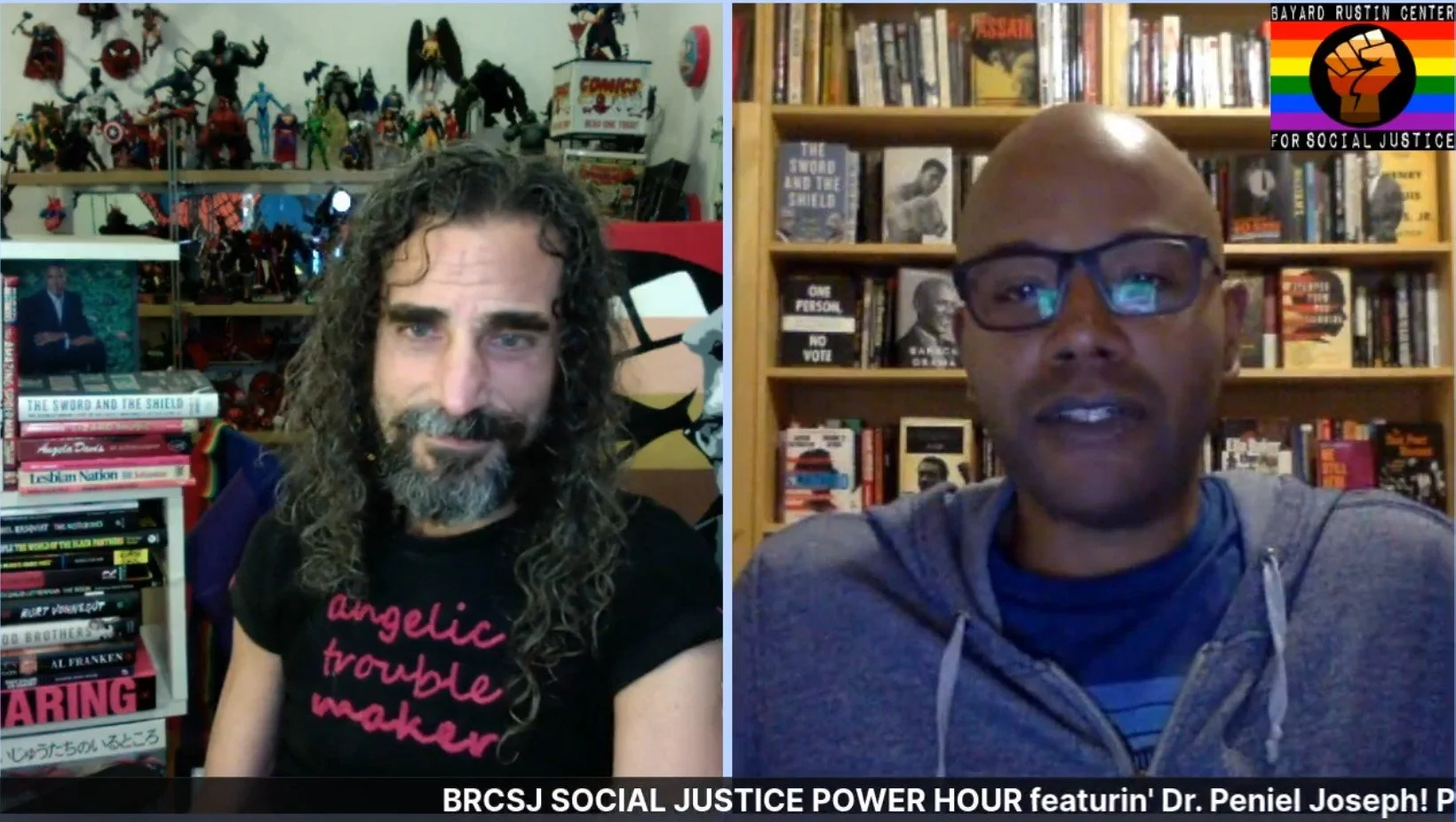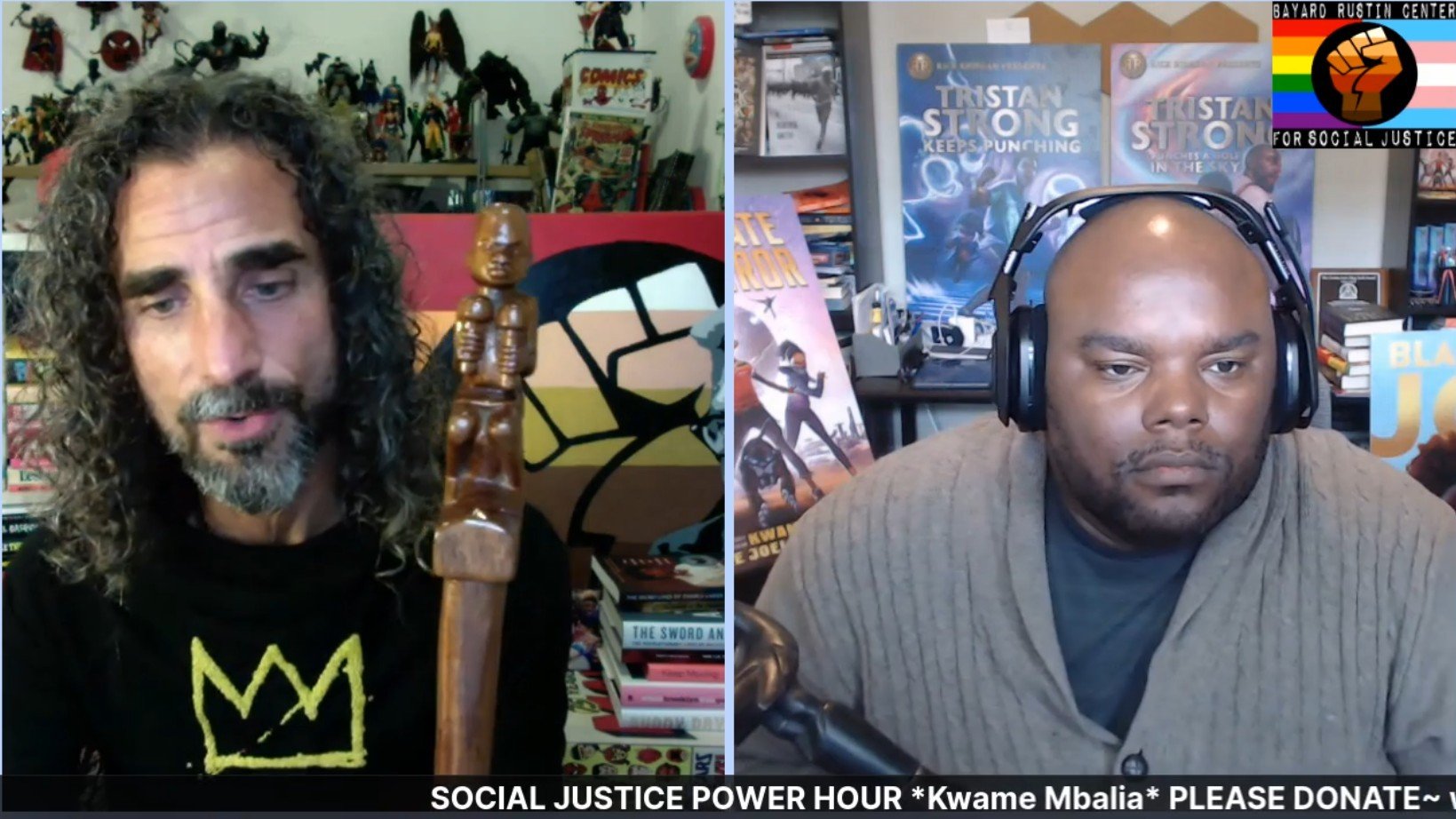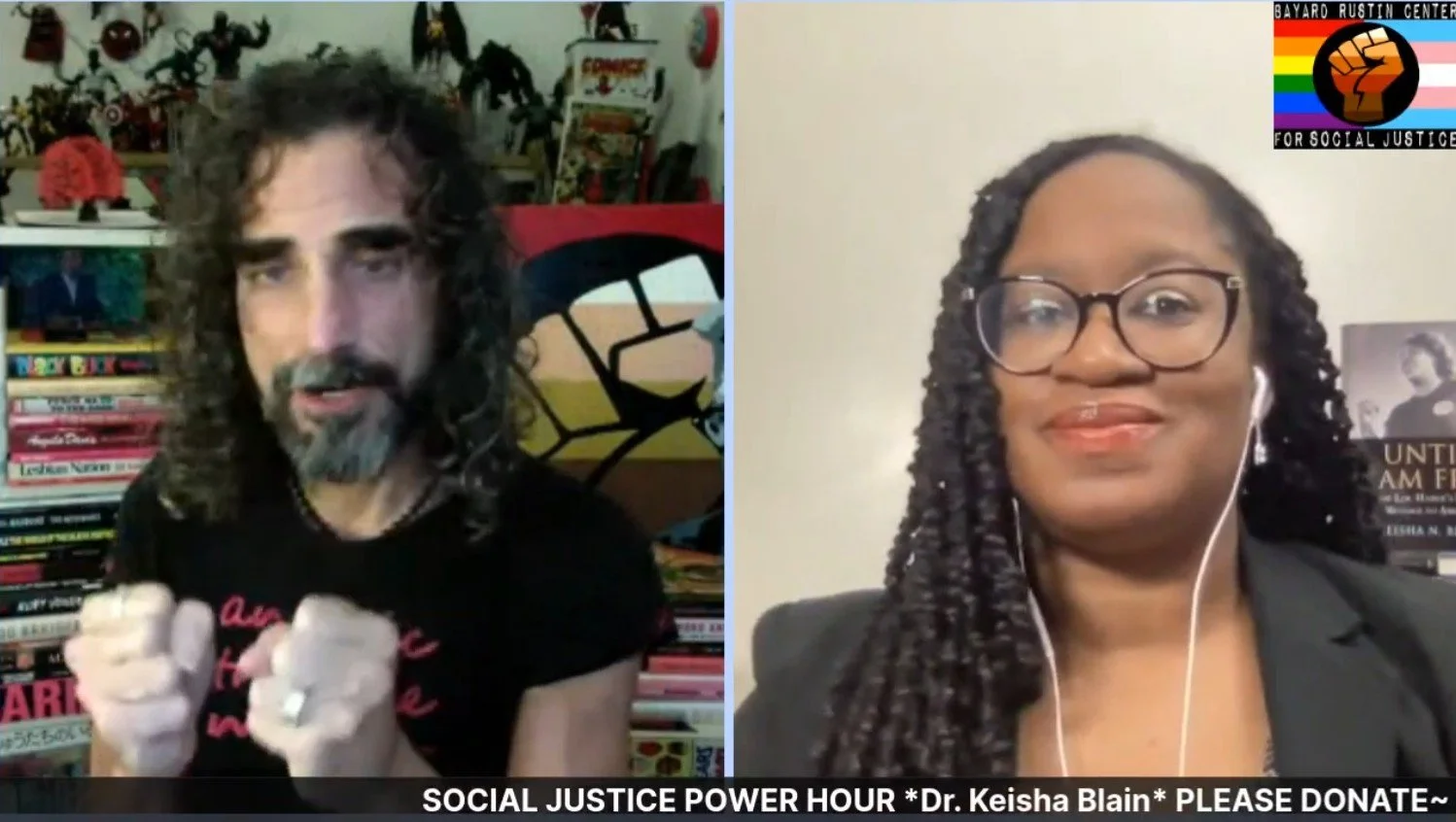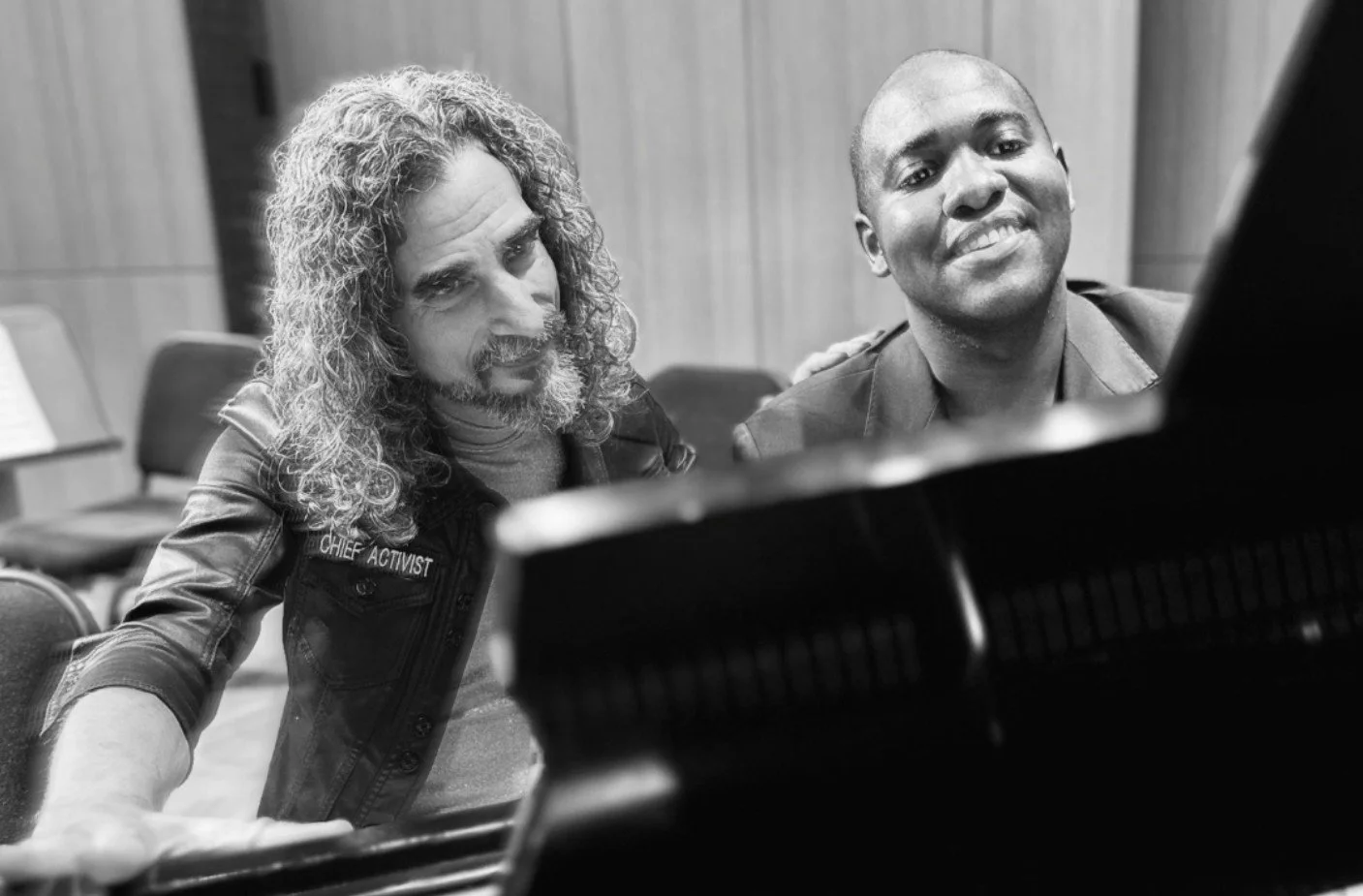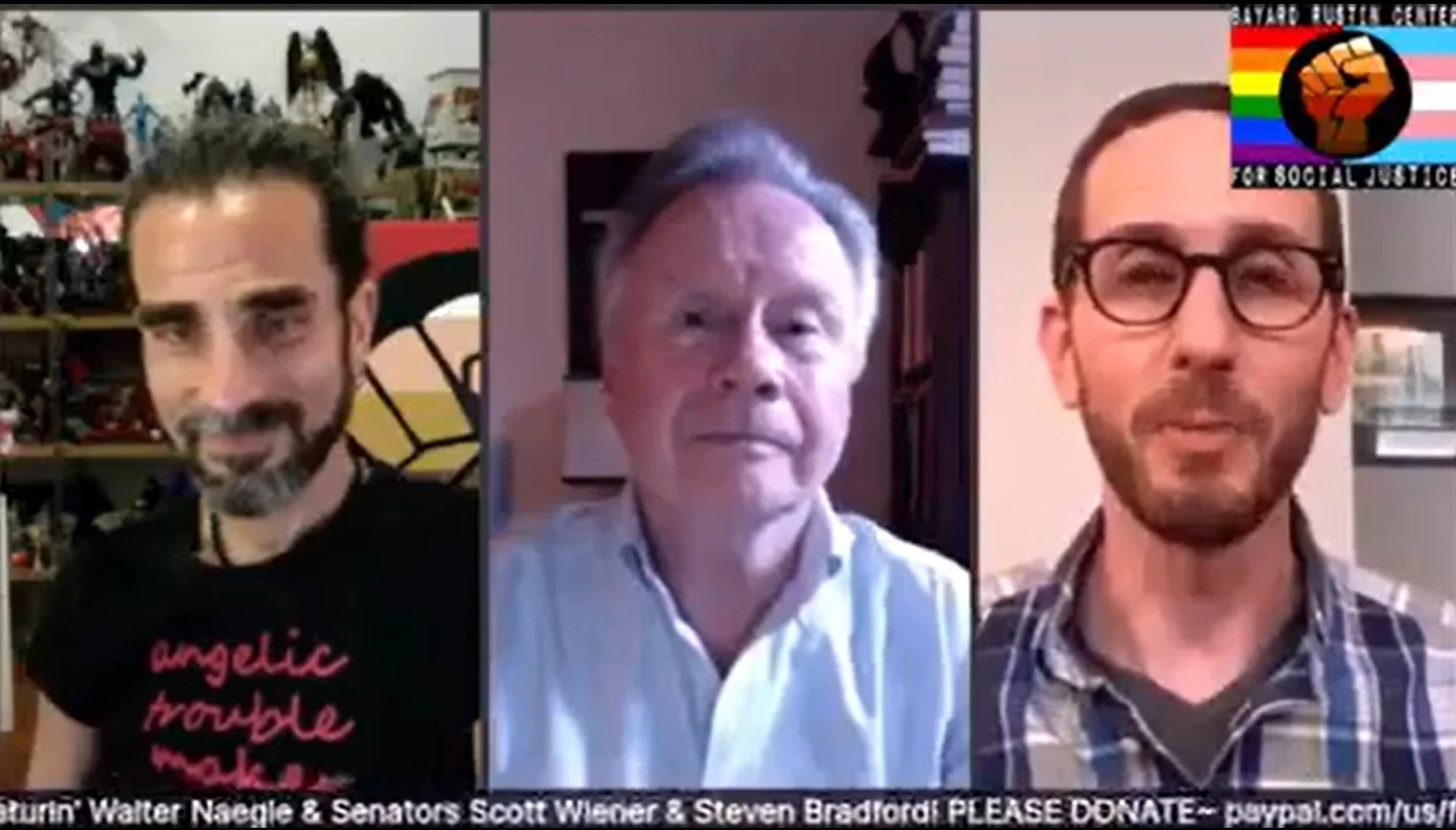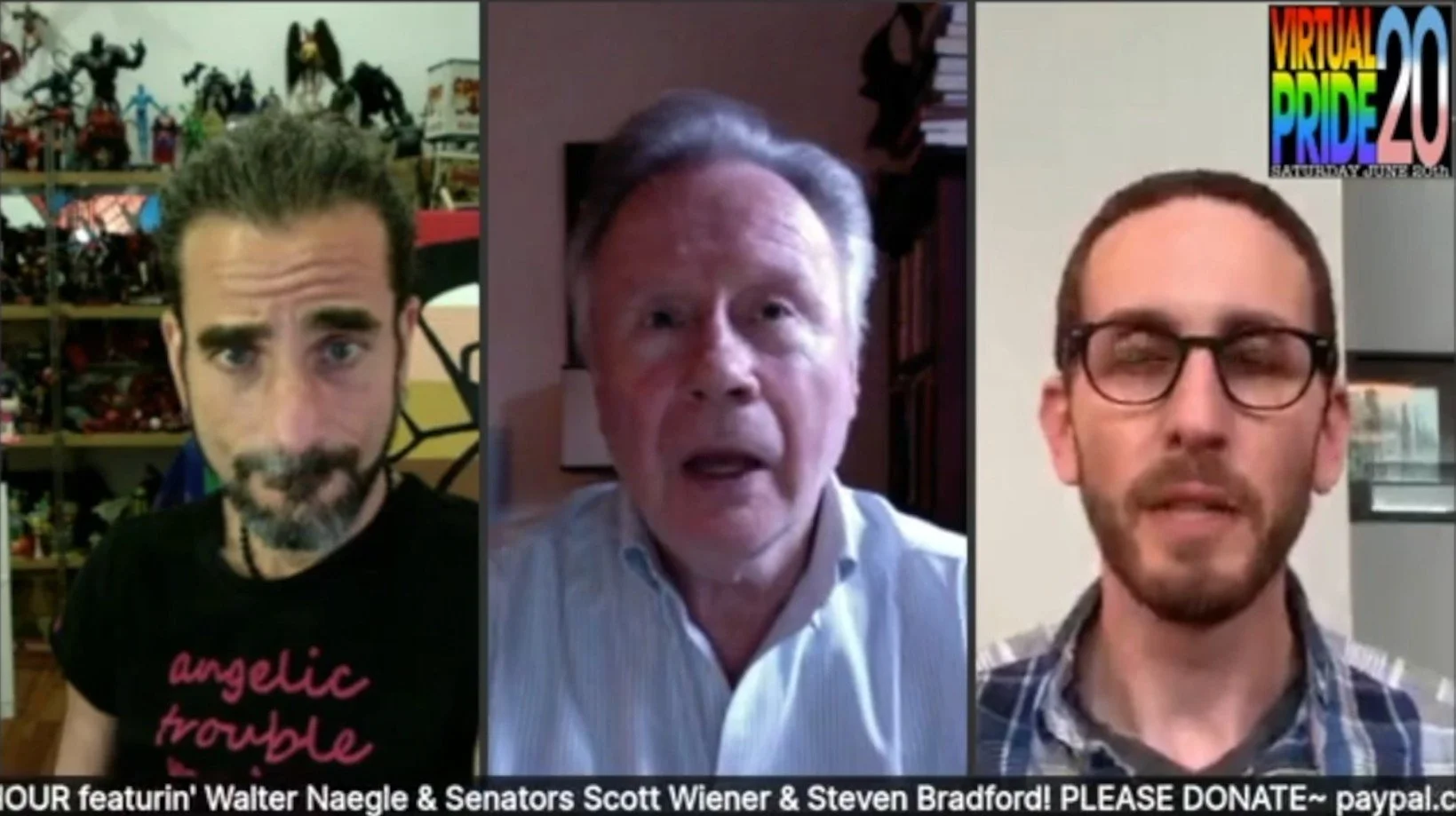BRCSJ BAYARD RUSTIN
QUEER HISTORY ARCHIVE
A first of its kind dedicated digital archive devoted to Black Queer LGBTQIA+/Civil Rights pioneer Bayard Rustin & other folx whose stories have gone far too long untold. this virtual platform will serve alongside its physical counterpart here at our Bayard Rustin Center for Social Justice HQ to illuminate the life & legacy of our namesake, our Beloved Bayard, whose history along with so many others was erased for decades, & to preserve & protect all our stories henceforth in the process. These archival materials are shaped to share significant stories that honor Rustin’s impact & pushes our Center’s pursuit of truly intersectional social & racial justice as is the quintessential heart interwoven into the very tapestry of our meaningful mission.
our archive welcomes visitors into a living breathing space of remembrance & resistance. Each entry, whether a photograph, letter, oral history, or curated reflection, is carefully contextualized to highlight the intersections of identity, activism, & erasure that shaped Rustin's life & those of countless others. The digital interface invites exploration by theme, era, & voice, offering not just historical artifacts but pathways to understanding how these lives continue to reverberate through today's movements.
This multi-dimensional collection richly illustrates Rustin’s pioneering leadership in nonviolence, coalition politics, & LGBTQIA+ advocacy whilst also honoring interconnected stories of other Black & similarly marginalized Queer activists whose contributions have been expunged or erased. It is not just a collection of old records~ it invites people to explore, think deeply, & keep these stories aliv~ broadening public knowledge, fostering education, & inspiring ongoing activism aligned with our Center's mission of community, CAMARADERIE, & co-conspiracy.
A step in an inspirational journey to bridge & indeed close the gaps, confront challenges head on, & amplify all voices in the process passionately & compassionately in equal measure for all those in our collective history often unheard, ofttimes ignored, & even forcibly forgotten. This work is about more than preservation~
it is about justice, truth, & making space for those individuals forgotten & sharing those stories untold for far too long.
*our past informs our present to inspire our future!*
Archive Highlights
This history belongs to all of us
help us build it!
We’re actively collecting artifacts, digital & physical items, & LGBTQIA+ history from all our beautifully diverse communities. If you have photos, flyers, mementos, stories, or memories to share, we’d be honored to help preserve them.
Reach out by completing form in handy-dandy contact button below!
*Hot Five at The Archive*
Each week our dedicated @RustinCenter Queer History Archive premieres a powerful video to edify (& hopefully entertain!) all y’all here to further our journey together to be empowered & inspired by the intersectional life & legacy of Black Queer Civil & LGBTQIA+ Rights Pioneer Bayard Rustin
We now proudly share this meaningful moment from our Social Justice Power Hour featurin’ award-winning historian & acclaimed author Mia Bay "Traveling Black" @harvardpress
Insightful exchange from our Social Justice Power Hour about the intentional crafting of Civil Rights narratives. Bay contrasts the public image of Rosa Parks, who is often simplified into a polite woman who was simply tired, with the reality of Bayard Rustin. His identity as a gay man & his history of revolutionary activism, which included time on a chain gang, made him less palatable for mid-century American consumption. Bay argues that while figures like Parks were strategically chosen for their perceived respectability, this choice came at the high cost of obscuring the more radical roots of the movement represented by Rustin. She emphasizes that while Rustin himself understood the necessity of strategic activism & finding a marketable face for a cause, the historical result has been a sanitized version of progress. She suggests that by leaving out leaders who were beaten & kicked out of spaces for their defiance, we protect a false sense of American innocence.
This interview serves as a reminder that moving the political needle often requires a diverse spectrum of activism. This spectrum includes work that is quiet & respectable as well as work that is loud, queer, & uncompromising.
As always we acknowledge our BRCSJ Chief Curator, the sensational Shaquana @mrs_quanidee who works in communal collaboration with our Protest Powerhouse & Non-Violence Advocate, the sagacious Sam, with significant support from @brcsjqueereducAtor Dr. @sara & Chief Activist Robt Martin Seda-Schreiber along with a whole buncha' other courageous cats who all imbue this powerful platform with their strength, energy, & spirit!
Congrats to our dear friend Bryan Carter @bryancartermusic now 2 @grammys Awards Winner #grammy
@RustinCenter proud to partner on powerful project amplifyin' the voice (both literally & figuratively!) of Black Queer LGBTQIA+ & Civil Rights pioneer Bayard Rustin
Meaningful musical "Rustin In Renaissance" @jazzdotorg @lincolncenter
We now proudly share sensational scenes from our wonderful workshop at UNT College of Music University of North Texas filmed by the extraordinary @brandonscottdrums in collaboration & co-conspiracy with the delightful @christianwiggs @bandstandpresents
Bayard Rustin
Planned the March
Brought non-violence to the Movement
Inspired the Freedom Riders
Lost to history because of who he loved
Who he was
This cannot happen again
This is our work
This is our Dream
Angelic Troublemakers Assemble!
https://www.rustincenter.org
A double-shot from our Social Justice Power Hour
First featurin’ award-winning historian & critically acclaimed author Dr. Keisha Blain
Compelling comparison & contrast between Civil Rights icons & titans of intersectional liberation Bayard Rustin & Fannie Lou Hamer
The dialogue centers on the value of these "skirmishes" as a reflection of the rich diversity within, as Dr. King espoused, that “Beautiful Struggle”. Dr. Blain highlights that Hamer, with her sixth-grade education & raw sense of purpose, did not enter political spaces with traditional expectations, whereas Rustin was a master of political maneuvering. Despite their stylistic clashes, Blain emphasizes that both figures were essential to the Movement's success~
"I think what is clear is that you needed Bayard Rustin, you needed Fannie Lou Hamer, right? I mean, it's not like this is right & this is wrong, but it's more so it captures the diversity, the complexity of Black political action."
This exchange serves as a powerful reminder that the path to liberation requires a spectrum of voices from the meticulously strategic to the boldly defiant.
Then Peep this Social Justice Power Hour aired at the ebb of the pandemic with Black Power scholar, acclaimed author, & our Beloved BRCSJ BOARD Vice Prez Dr. Peniel Joseph who shared inspirational way forward in camaraderie & co-conspiracy which resonates now more than ever!
*ANGELIC TROUBLEMAKERS ASSEMBLE*
https://www.rustincenter.org
Hanukkah is about resilience & resistance
The fight for the right to live openly & the power of a small light to shine bright & push back against oppression. As the celebration of the miracle of one candle lighting the way continues, all of us at Bayard Rustin Center for Social Justice HQ honor the bright glimmer that grows when communities stand together. Bayard Rustin fought antisemitism & racism in tandem with the same clarity & courage that shaped the Civil Rights Movement & showed us how these twin evils threaten our democracy as a whole. He defended these values through his dedicated organizing, his thoughtful public writing, & his absolute insistence that intersectionality was key to all of us moving forward together. Bayard’s work helped build the kind of cross‑community strength that Hanukkah calls us to honor & robustly reminds us that liberation is a shared effort & solidarity is how we keep that light burning bright.
In that respect, this week we proudly share a meaningful moment on our BRCSJ Queer History Hot Five at the Archive with self-described “activist for causes he believes in & people he loves” Jay Buchsbaum who spins a terrific tale about his “Dinner with Bayard” & their dedicated discourse about intersectionality & Bayard's stalwart support of the Jewish community...
https://youtu.be/QbfiQk-n4UY
Spreadin’ HOLIDAY QUEER here at the Archive!
In celebration of all our sensational seasonal shenaniganz here at BRCSJ HQ from our Holiday Drag Show Fab Fundraiser to bein’ open X-Mas Day as a Queer Safe-Space for anyone & everyone who needs or wants to celebrate safely in strength & solidarity with chosen fam, we proudly share this inspirational spiritual, "Go Tell It On The Mountain”, powerfully performed by our Beloved Bayard Rustin, not only a Black Queer Civil Rights & LGBTQIA+ Rights Pioneer but an incredibly talented singer as well!
What makes this vid even more supa’-special~
The fab fotoz of Bayard with the Three Kings have NEVER been seen by the public. These previously unpublished pix, a gift from his partner (& our BRCSJ Board Member Emeritus!) Walter Naegle, show Bayard with these finely crafted figures purchased in the early 1980's from France which they would display every holiday season.
& bonus historical coolness~
The biblical narration at outset is by none other than James Farmer, Bayard's colleague at the Fellowship of Reconciliation when this was recorded in 1952, who was the organizer of the first Freedom Ride in 1961 & co-founded the Congress of Racial Equality (CORE).
last week we shared this meaningful moment with queer journalist Jim Marks who photographed our Beloved Bayard at the Stonewall March back in '86 for The Advocate as well as another fab foto of him & his powerful partner (& our BRCSJ Board Member Emeritus!) Walter Naegle
These photos can also be peeped in person when ya' visit our extraordinary exhibit at the Stonewall National Museum, Archives, & Library (see last week’s Hot Five for more 411)!
Proudly sharin’ this glitterin’ glimpse into outstanding Opening Nite of our extraordinary exhibit powerfully presented in camaraderie & co-conspiracy with our good friends at Stonewall National Museum, Archives, & Library!
Thrilled & honored in equal measure as our beautiful BRCSJ Board Member Glen Pannell (aka the now thankfully retired Mike Hot-Pence ) carefully curated this show along with our own Chief Activist Robt Martin Seda-Schreiber & Stonewall Executive Director Robert Kesten& much love & respect to all our Beloved Community members who absolutely showed up & glowed up for this special event, dear friends & awesome allies who all became new family & who made this evenin’ everything our community needed & deserved it to be!
Immersive & interactive all at once, showcasin' heretofore unseen powerful pieces from the BRCSJ Queer History Archive, this landmark exhibition will also allow visitors an opportunity to share their experiences for inclusion at both Stonewall & in the BRCSJ Queer History Archive as well.
The exhibit runs thru January so please join us to celebrate the OG Angelic Troublemaker & raise up the voice of this forgotten figure (as well as ALL our voices!) in our collective social, racial, & queer history.
As always we also acknowledge our own BRCSJ Queer History Archive Chief Curator, the sensational Shaquana who works in collaborative co-conspiracy with our Protest Powerhouse & Non-Violence Advocate, the sagacious Sam, with significant support from BRCSJQueerEducator Dr. Sara & Chief Activist Robt Martin along with a whole buncha' other courageous cats who all imbue this powerful platform with their strength, energy, & spirit!
Bayard Rustin
Planned the March
Brought non-violence to the Movement
Inspired the Freedom Riders
Lost to history because of who he loved
Who he was
This cannot happen again
This is our work
This is our Dream
To join us as an awesome Angelic Troublemaker as well as to learn more about our LGBTQIA+ safe-space & community activist Center, please visit our virtual HQ~
https://www.rustincenter.org
Be Inspired by this extraordinary interview from back in the the day that was part of our Social Justice Power Hour~
Obama White House Senior Advisor Valerie Jarrett sharing the beautiful backstory of the meaningful moment when barack obama awarded Bayard Rustin the Presidential Medal of Freedom! We are so grateful to Valerie for being with us in virtual communion & have great respect for the wonderful work she continues to do at the Obama Foundation in camaraderie & co-conspiracy...
& then share this meaningful moment with our dear friend & stalwart ally Senator Andrew Zwicker who dropped by our Welcomin’ the Community Breakfast at BRCSJ HQ to help us open our Queer History Archive in dedicated (& fabulous!) fashion!
we proudly present this powerful partnership with the awesome It Gets Better Youth Ambassadors It Gets Better amplifyin' our namesake
Much love & respect to all who put their energy & spirit toward this powerful project~
It Gets Better Communications & Public Relations Sr. Director Ross von Metzke
BRCSJ Board Member Emeritus Walter Naegle
BRCSJ Chief Activist Robt Martin Seda-Schreiber
BRCSJ Intersectional Community Conduit Terry Mcmillian
BRCSJ Board Prez Clare Polke
BRCSJ Drag Queen-in-Residence HARMONICA SUNBEAM
BRCSJQueerEducator Dr. Sara Menlow Wasserman
& si claro, the awesome It Gets Better Youth Ambassadors!
this extraordinary interview from back in the the day that was part of our Social Justice Power Hour~
Our Chief Activist Robt Martin Seda-Schreiber was honored to be joined by Ms. Louise Jones who was present in 1947 at Black Mountain College in North Carolina which was the only safe haven for Bayard after he had been brutally beaten during the Journey of Reconciliation also known as the “First Freedom Ride”. Louise was a spry 98 years old when we recorded this & joined the ancestors just a few months after we shared this meaningful moment so this indeed a wonderful way to keep her spirit with us to further empower us all! She was a dedicated schoolteacher for decades hailing from Memphis, TN, married for 54 years to the love of her life Daniel Jones, & was an inspirational member of her (& our!) Beloved Community.
We are eternally grateful to Louise for being with us to in virtual communion & thankful to her daughter Madolyn who connected us in camaraderie & co-conspiracy!
& here be a brief but powerful bio of our OG Angelic Troublemaker in
colorful collab with our fab friends at the history BIOGRAPHY channel…
What’s new at the archive?
Here you’ll find a weekly snapshot of the newest materials we’re uncovering, preserving, and making accessible from the Bayard Rustin Archive.
This week’s new additions explore two important moments in New York City’s education battles and Bayard Rustin’s evolving political strategy. Newspaper article, The Power of Absence examines the 1964 school boycott, where mass nonviolent action demonstrated the strength of coalition organizing, while the scholarly article The Dead End of Despair analyzes Rustin’s controversial stance during the 1968 school crisis and his defense of broad, interracial alliances. These entries reveal Rustin’s enduring belief that lasting change requires disciplined strategy and expansive democratic coalitions.
-
Bayard Rustin helped lead a massive, peaceful school boycott in New York City, as more than 464,000 students stayed home to protest racial imbalance and unequal conditions in Black and Puerto Rican schools. Marked by orderly picketing, a major march in Brooklyn, and the creation of “Freedom Schools,” the action demonstrated the disciplined power of coalition politics to demand integrated, quality education.
Learn more -
Historian Daniel Perlstein examines Bayard Rustin’s controversial role in the 1968 New York City school crisis, when Rustin sided with the United Federation of Teachers against Black activists calling for community control in Ocean Hill–Brownsville. Arguing that integration and labor–civil rights coalitions were essential to lasting political power, Rustin maintained that separatist approaches would weaken the broader struggle for economic and racial justice.
Learn more
Explore our Archive
This is indeed a living archive with new content being added regularly!
Be sure to revisit this frequently to discover new gems.
Below is a digital landscape of courage & resistance featuring artifacts of joy, struggle, love, & collective action in the face of all of it.
From intimate letters to public protests, each entry offers a window into bayard rustin & the lives of those who shaped Queer history.
Explore freely or head to the bottom of the page to
search the archive by keyword, category, or year.
Search by Keyword:Bayard Rustin as a Teenager
1925
Black-and-white portrait photograph of Bayard Rustin taken during his adolescence, featuring him in formal attire, reflecting the early years of a future civil rights leader.
Growing up in West Chester, Pennsylvania during the segregation era, Rustin developed into a talented student and activist. His teenage years laid the foundation for his lifelong commitment to social justice and leadership in the civil rights movement.
Learn More
1930 Recognition of Bayard Rustin’s Early Leadership as All-County Football Tackle
December 4, 1930
This 1930 recognition of Bayard Rustin as an all-county tackle highlights his early leadership and athletic talent, reflecting his prominence in the community during his youth prior to his civil rights activism.
Learn more
Bayard Rustin on the Philadelphia Suburban Champion High School Football Team
1931
Team photo showing Bayard Rustin as a member of the 1931 Philadelphia Suburban Champion high school football team.
Learn more
1931 Profile Highlighting Rustin’s Academic Achievements and Early Leadership Skills
May 7, 1931
Recognition of Rustin's high school academic achievements reveals his intellectual development and early speaking skills that would later define his civil rights leadership.
Learn more
1931 Christmas Festivities in West Chester Featuring Bayard Rustin
December 31, 1931
This 1931 newspaper articles details the Christmas events in West Chester, including church services, school Christmas programs, and community gatherings, Bayard Rustin is noted as a soloist in the senior high school chorus during the festive musical performance.
Learn more
1932 Hi-Y Club Program for Negro History Week Featuring Bayard Rustin
February 25, 1932
The 1932 Article reports on the Charles Yat Hi-Y Club's annual Negro History Week program at Bethel Church in West Chester, highlighting Bayard Rustin's solo performance.
Learn more
1932 West Chester Report: Bayard Rustin’s Departure for Wilberforce University Amid Local Tragedy
October 6, 1932
This 1932 article briefly notes Bayard Rustin leaving West Chester to attend Wilberforce University, highlighting his role as honor speakers at his high school commencement. This notice appears amidst reports of local deaths and community events, underscoring the contrast between Rustin's hopeful future along somber local news.
Learn more
The Wilberforce Quartet
1933
This photograph shows Bayard Rustin at the far right in the Wilberforce Quartet, capturing one of the early moments of his public life during his college years. The image underscores Rustin’s formative engagement with African American cultural and intellectual communities at Wilberforce University, a historically Black university known for cultivating leaders committed to social justice and civil rights.
Learn more
1934 Article on Rustin’s Breaking Racial Barriers Through Integrated Musical Performance
July 12, 1934
This 1934 article highlights Bayard Rustin’s musical performance before an integrated audience at the West Chester Lions Club. His early engagement in such rare cultural exchanges showcased his artistic talents and commitment to breaking racial barriers through shared cultural experiences.
Learn more
1937 Educational Conference Challenges Curriculum Development for Negro Students
October 21, 1937
This 1937 article reports on a Philadelphia conference discussing the need for realistic school curriculums tailored to African American students' economic and social realities. Bayard Rustin, then a student participated in cultural activities during the event.
Learn more
Bayard Rustin Relaxing
Early 1940’s
A candid photograph showing Bayard Rustin in a relaxing moment.
learn more
Bayard Rustin Defies Draft; Goes To Prison
March 4, 1944
A 1944 article from The Chicago Defender detailing Bayard Rustin’s principled refusal to comply with the World War II military draft based on his conscientious objection rooted in Quaker beliefs and commitment to nonviolence. The article highlights Rustin’s arrest and incarceration, his defense of civil liberties, and his rejection of both war and racial injustice. This early act of resistance marked the beginning of Rustin’s lifelong dedication to pacifism and civil rights activism, showcasing his courage during a period when draft evasion was heavily stigmatized and punished.
Learn more
Strings of Defiance: Bayard Rustin and the Lute in Prison
1947
Bayard Rustin is pictured with a lute he taught himself to play while imprisoned for his refusal to serve in the military during World War II. Despite the challenges of incarceration, Rustin used music to maintain morale and resist the oppressive conditions of a racially segregated prison system. His time in prison was marked by persistent activism against segregation and injustice within the prison walls.
Learn more
Bayard Rustin’s Hotel Lobby Sit-In Challenging Northern Racial Discrimination
February 8, 1947
In 1947, Bayard Rustin staged a successful all-night sit-in protest in the lobby of the Hamline Hotel in St. Paul Minnesota, after being denied access to a reserved room due to his race. Joined by NAACP leaders and white allies, Rustin's non violence demonstration challenged segregationist practices in a Northern city and exemplified early direct action tactics that influence later civil rights protests.
Learn more
Witness to the Journey: Louise Jones and the 1947 Safe Haven
April 1947
In this powerful interview, 97-year-old educator Louise Jones recalls offering sanctuary to Bayard Rustin and fellow activists at Black Mountain College after they were brutally beaten during the 1947 Journey of Reconciliation. Her firsthand testimony brings human depth to the historical record, tracing how witnessing Rustin’s courage transformed her from a witness of violence into a lifelong advocate for justice and community service.
Learn more
Newspaper Report on Bayard Rustin’s Arrest During the Journey of Reconciliation
May 28, 1947
This article reports on Bayard Rustin’s 1947 arrest in Chapel Hill while participating in the Journey of Reconciliation, an early civil rights action challenging segregation on interstate buses. The coverage highlights Rustin’s unwavering commitment to nonviolent direct action and the personal sacrifices he endured for racial equality.
Learn more
Bayard Rustin Travels to India to Study Gandhian Principles, Meets Indian Prime Minister Nehru
1948
Bayard Rustin sits with Indian Prime Minister Jawaharlal Nehru and other officials during a gathering at the All India Congress Party. This historic meeting occurred during Rustin's pivotal journey to India to study Gandhian principles of nonviolent resistance.
Learn more
Bayard Rustin with Muriel Lester, India
1948
Bayard Rustin stands alongside Muriel Lester, International Fellowship of Reconciliation traveling secretary and close associate of Gandhi, during his influential 1948 visit to India.
Learn more
1947 Court Case: Bayard Rustin’s Fight Against Segregated Train Dining Cars
September 16, 1948
Rustin's 1947 court case opposing denial of access to a segregated dining car became part of the growing legal resistance that laid groundwork for major civil rights advances.
Learn more
Bayard Rustin at Antiwar Demonstration, Philadelphia
1950s
Rustin participates in an antiwar protest in Philadelphia in 1950, advocating peaceful resistance amid rising Cold War militarization.
Learn more
Bayard Rustin at the Forefront of Anti-Segregation Organizing
1950s
Rustin sits before a striking sign that reads "Jim Crow Can't Teach Democracy," encapsulating the spirit of his grassroots campaigns to expose and dismantle segregation in American society. The placard signals both protest and political messaging, emblematic of Rustin’s commitment to challenging the hypocrisy of racial discrimination in a nation founded on democratic principles.
Learn more
Bayard Rustin sings Spirituals on the Life of Christ
1952
In this recording, Bayard Rustin performs a cycle of twelve African American spirituals arranged to narrate the life of Jesus Christ. The performance reveals a lesser-known dimension of Rustin’s life: his accomplished tenor voice and deep engagement with the musical traditions of the Black church.
Learn more
Bayard Rustin with Kwame Nkrumah, Ghana
1952
This photograph captures Bayard Rustin alongside Kwame Nkrumah, Ghana’s first Prime Minister, during Rustin’s engagement with emerging African nations.
Learn more
Bayard Rustin and Nnamdi Azikiwe, Nigeria
1952
Bayard Rustin sits in conversation with Nnamdi Azikiwe, one of Africa’s foremost independence leaders, during Rustin’s travels in West Africa.
Learn more
A Time For Freedom - Documentary
May 17, 1957
This documentary features footage from the 1957 Prayer Pilgrimage for Freedom at the Lincoln Memorial, including interviews and scenes from key civil rights events like the Montgomery bus boycott. Bayard Rustin explains the philosophy and strategic importance of nonviolence.
Learn more
Debate Between Bayard Rustin and Malcolm X
November 1960
Rustin and Malcolm X confronted each other with opposing strategies for Black freedom—nonviolent integration versus separatist self-determination—debating whether justice could be won through America’s institutions or only beyond them.
Learn more
Taking a Break with Malcolm X and Michael R. Winston at Howard University
October 1961
Bayard Rustin sits to the left alongside Malcolm X, who stands in the center, and debate moderator Michael R. Winston at Howard University. This photograph captures a moment during a pivotal 1961 event where these prominent figures engaged in dialogue connecting the struggles for civil rights and Black empowerment in America.
Learn more
Integration or Separation: Bayard Rustin Debates Malcolm X
at the Community Church of New York
January 23, 1962
In this electrifying 1962 debate, Rustin championed integration and coalition-based nonviolence, while Malcolm X advanced a vision of Black separation and self-determination outside a hypocritical white society. The encounter distilled two competing strategies for identity, power, and survival in America.
Learn More
Bayard Rustin's Letter to JFK Defending War Tax Resister Max Sandin
October 4, 1962
This 1962 letter to John F. Kennedy reveals Rustin's fight for justice on behalf of war tax resister Max Sandin, a principled man suffering government retaliation for his pacifist beliefs during the Cold War.
Learn more
Bayard Rustin Explains March Route with Map
August 1963
Bayard Rustin displays and explains a detailed map of the March on Washington route, addressing logistical and strategic planning to organizers and media ahead of the historic event.
Learn more
Rustin Poses in Front of the National Headquarters Office
August 1, 1963
Bayard Rustin stands outside the National Headquarters for the March on Washington for Jobs and Freedom, located on West 130th Street in New York City, just weeks before the historic demonstration. The iconic headquarters sign looms overhead, signaling the urgency and scale of preparations underway for one of the most pivotal events in American civil rights history.
Learn more
Bayard Rustin and Cleveland Robinson at the March on Washington National Headquarters
August 7, 1963
Captured in front of the National Headquarters sign in Harlem, this photo shows civil rights leaders organizing for the March on Washington for Jobs and Freedom, a pivotal event set to take place less than a month later.
Learn more
‘Mr. March’ Emphasizes Peaceful Demonstration: Bayard Rustin’s Direct Confrontation of Personal and Political Attacks
August 8, 1963
This Associated Press interview, published weeks before the March on Washington, portrays Bayard Rustin as the movement’s indispensable strategist, openly managing the massive logistics of a demonstration that had to unfold with flawless discipline. It also shows Rustin confronting efforts to discredit him head-on, grounding his leadership in his Quaker faith, commitment to nonviolence, and refusal to be silenced or blackmailed about his past.
Learn more
Bayard Rustin’s "Military Precision": Organizing the March on Washington Amidst Personal Attacks
August 11, 1963
This Associated Press feature profiles Bayard Rustin as the chief organizer of the March on Washington, tasked with orchestrating a massive, military-scale logistical operation just weeks before the event. It also confronts the personal attacks used to discredit him, highlighting Rustin’s transparency, commitment to nonviolence, and central behind-the-scenes role alongside A. Philip Randolph.
Learn more
A. Philip Randolph’s Statement in Defense of Bayard Rustin
August 12, 1963
A. Philip Randolph issues a public statement affirming his “complete confidence” in Bayard Rustin’s “character, integrity, and extraordinary ability,” highlighting Rustin’s role organizing three Marches on Washington and the 1947 Journey of Reconciliation, and condemning attacks—such as those by Senator Strom Thurmond—that sought to remove Rustin from leadership.
Learn more
Bayard Rustin Prepares for the March on Washington
August 27, 1963
Rustin is captured in an intense moment of concentration, his attention fixed on the immense responsibilities before him as the primary architect of the March on Washington. The weight of the moment is visible in his expression, as he mentally runs through final plans and prepares to marshal thousands of people from across the country into a unified, peaceful demonstration. On this day, Rustin troubleshoots last-minute obstacles, encourages weary volunteers, and sharpens the vision that would, within twenty-four hours, change the course of American history.
Learn more
1963 Leaflet Mobilizing Activists for the March on Washington
August 28, 1963
A 1963 leaflet calling to action for the March on Washington reveals Rustin's hidden yet crucial role as chief organizer, marginalized due to prejudice against his sexuality despite his organizational brilliance.
Learn more
Mobilization Bulletin: March on Washington #2
August 28, 1963
Second official March on Washington newsletter providing detailed organizing instructions for participants, including final transportation schedules, uniform guidelines, health and safety protocols, and key messages of demands for jobs and freedom.
Learn more
Bayard Rustin Addresses Marchers from the Lincoln Memorial during the March on Washington for Jobs and Freedom
August 28, 1963
Bayard Rustin stands at the microphone on the steps of the Lincoln Memorial, rallying the crowd and issuing crucial instructions that would ensure the March on Washington’s peaceful and powerful impact.
Learn more
Rustin and Author James Baldwin Calling on President Kennedy to Intervene in Alabama
September 1, 1963
Bayard Rustin and James Baldwin stand side by side, holding an armband inscribed “Birmingham Children” during a protest urging President John F. Kennedy to deploy federal troops to Alabama in response to Governor George Wallace’s militant resistance to desegregation. The armbands honored the memory of African-American children murdered in Birmingham, reinforcing the urgent demand for federal protection of civil rights.
Learn more
LIFE Magazine Cover: Bayard Rustin and A. Philip Randolph at the Lincoln Memorial, March on Washington
September 6, 1963
This iconic color from LIFE magazine depicts two leaders of the March on Washington for Jobs and Freedom standing before the Lincoln Memorial, symbolizing unity, vision, and the national spotlights on the historic demonstration.
Learn more
Bayard Rustin’s 1963 Urgent Telegram to President Kennedy on Selma Church Siege
September 24, 1963
Rustin's desperate 1963 telegram begged President Kennedy to send federal troops to protect 1,400 people trapped overnight in a Selma church, surrounded by hostile police forces.
Learn more
Follow-Up 1963 Telegram Demanding Federal Action in Selma Voting Rights Crisis
September 24, 1963
A follow-up telegram the same day demanded urgent federal action as armed white civilians joined police terrorizing African American demonstrators trapped in a church.
Learn more
Bayard Rustin’s Speech at the Fourth Annual SNCC Conference
December 1, 1963
This speech, delivered by Bayard Rustin at the 1963 Fourth Annual Student Nonviolent Coordinating Committee (SNCC) Conference, elaborates on the strategic and philosophical foundations of nonviolent direct action within the civil rights movement. Rustin addresses the challenges of maintaining discipline and commitment among young activists in the face of systemic oppression and encourages coalition-building across racial and ideological lines to achieve justice. The speech also reflects on the evolving tactics of the movement and the critical importance of upholding nonviolence as both a moral principle and practical strategy.
Learn more
Bayard Rustin at Middlebury College Conference
1964
This black-and-white photograph captured Bayard Rustin delivering a public address as a civil rights speaker at a Middlebury College conference in 1964.
In 1964, college campuses were vital centers of civil rights, dialogue, drawing national leaders to engage and educate students in the struggle for equality. Rustin's participation at Middlebury reflects his influence on youth and academia during a defining era for social change.
Learn more
1964 Pamphlet by Tom Kahn on Economic Liberation and Civil Rights
1964
In this 1964 pamphlet, Tom Kahn, a protégé of Bayard Rustin, argued that the Civil Rights movement must prioritize economic liberation as a core aspect of comprehensive social change, reflecting their shared vision for addressing deeper systemic inequalities.
Learn more
The Power of Absence: The 1964 New York City School Boycott
February 4, 1964
Bayard Rustin helped lead a massive, peaceful school boycott in New York City, as more than 464,000 students stayed home to protest racial imbalance and unequal conditions in Black and Puerto Rican schools. Marked by orderly picketing, a major march in Brooklyn, and the creation of “Freedom Schools,” the action demonstrated the disciplined power of coalition politics to demand integrated, quality education.
Learn more
Bayard Rustin’s “Negro Revolution in 1965” Address at the Center for Democratic Institutions
Autumn 1964
The speech “Negro Revolution in 1965,” delivered by Bayard Rustin at the Center for Democratic Institutions in the fall of 1964, articulated a crucial vision for the evolving civil rights movement. His address reflected a nuanced understanding of the movement’s challenges and possibilities as it prepared to transition from protest to policy-driven advocacy.
Learn more
Bayard Rustin with Youth Activists Preparing for Demonstration
1960s
Bayard Rustin is pictured speaking with young activists—Carolyn Carter, Cecil Carter, Kurt Levister, and Kathy Ross—who appear to be children, as they prepare for a civil rights demonstration. The photograph captures an early generation of youth involvement and Rustin’s mentorship role in guiding youthful organizers during the 1960s civil rights movement.
Learn more
Bayard Rustin Attempts to Restore Peace During Harlem Riots
July 19, 1964
This 1964 Harlem footage shows Rustin trying to calm an outraged community, revealing how poverty and police violence undermined the appeal of nonviolence in the urban North.
Learn more
SNCC and CORE Reject Protest Moratorium at New York Strategy Meeting
August 5, 1964
This report covers a New York gathering of leading civil rights figures—including Bayard Rustin, Roy Wilkins, Whitney Young, James Farmer, and John Lewis—where SNCC and CORE declined to endorse a proposed moratorium on demonstrations until after the upcoming November election, signaling a split over tactics between direct-action proponents and calls for strategic pause.
Learn more
1964 Pamphlet by Rustin on Nonviolent Resistance During the Harlem Riots
August 14, 1964
This 1964 pamphlet by Bayard Rustin offers a firsthand account of his efforts to promote nonviolent resistance during the Harlem riots. Rustin describes organizing a group of volunteers who protected residents and dispersed crowds, emphasizing the moral and strategic importance of nonviolence amid social unrest.
Learn more
Bayard Rustin and A. Philip Randolph at the Alabama State Capitol, Montgomery
1965
Rustin and Randolph are present at the culmination of the Selma to Montgomery Marches, joining fellow movement leaders and supporters on the steps of the Alabama State Capitol to bear witness to speeches demanding full voting rights for African Americans. Their participation at this moment signified solidarity, strategic leadership, and the unwavering commitment required to challenge entrenched oppression in the Deep South.
Learn more
From Protest to Politics: Rustin's Blueprint for Political Power
February 1, 1965
Bayard Rustin's landmark essay "From Protest to Politics," originally published in Commentary magazine and reprinted as a pamphlet by the League for Industrial Democracy, advocating for the civil rights movement's strategic transformation from direct action protests to coalition-based electoral politics and economic reform programs.
Learn more
Bayard Rustin at Walter Reuther Press Conference
March 17, 1965
This photograph depicts Bayard Rustin present at a 1965 press conference led by labor leader Walter Reuther, highlighting Rustin’s ongoing alliance with the labor movement and the collaborative efforts between civil rights and labor leaders during this pivotal period.
Learn more
Bayard Rustin Refuses to take a Loyalty Oath - Letter to UMD
September 25, 1965
Bayard Rustin's letter to University of Maryland’s Director Donald A. Deppe regarding his principled refusal to sign Maryland's Ober Act loyalty oath when invited to speak at the University of Maryland Law Enforcement Institute.
Learn more
Bayard Rustin Speaks before the Senate Government Operations Subcommittee
1966
Rustin testifies before the Senate Government Operations subcommittee, making his case for robust federal action to address persistent racial and economic inequality. By taking the witness stand, he translates movement experience into policy language, urging lawmakers to prioritize civil rights enforcement, anti-poverty programs, and protections for working Americans.
Learn more
Bayard Rustin's "The Watts Manifesto and the McCone Report": Dismantling the Lies of Official Inquiry
March 1966
In this article, Bayard Rustin argued that the McCone Commission misrepresented the Watts uprising by ignoring its political intent and the systemic racism that caused it. He warned that by refusing real reforms, the nation was teaching Black Americans that only violent rebellion could make their voices heard.
learn more
Black Power and the Perils of Isolation: Rustin’s Case for Coalition Politics
September 1, 1966
Bayard Rustin’s influential pamphlet “Black Power and Coalition Politics,” distributed by the A. Philip Randolph Institute, critiques the rising nationalist slogan “black power” and argues that sustainable social change requires interracial coalitions with labor, liberals, and religious groups to secure economic and political reforms rather than separatist withdrawal or violent confrontation.
Learn more
Bayard Rustin's Vision for Economic Justice: "Firebombs or a Freedom Budget"
1967
In this 1967 speech, Rustin called for a sweeping Freedom Budget to confront the economic roots of racial injustice, arguing that the civil rights movement had shifted from winning rights to demanding resources. Only large-scale federal investment, he insisted, could meet the needs of the poorest and restore hope to Black communities.
Learn more
Bayard Rustin's "On Blacks and Jews": Defending Coalition Against Antisemitism
February 7, 1967
Bayard Rustin warned bluntly in this article that rising antisemitism in Black communities was both morally wrong and politically self-destructive, threatening to collapse the very coalitions that had advanced civil rights. He urged Black leaders to confront the issue directly, reminding readers of the long history of Jewish legal, political, and abolitionist support for Black freedom.
learn more
Pamphlet Outlining Rustin’s Freedom Budget for Economic and Racial Justice
May 12, 1967
Bayard Rustin’s influential 1967 pamphlet, Fear, Frustration, Backlash: The New Crisis in Civil Rights, outlined the limitations of civil rights legal gains and called for sweeping economic reforms to tackle systemic poverty and racial injustice affecting African American communities.
Learn more
Bayard Rustin’s "The Liberal Coalition and the 1968 Elections": A Blueprint for Economic Realignment
December 1967
In this election-year essay, Bayard Rustin calls for a powerful coalition between labor, liberals, and the civil rights movement to defeat a reactionary alliance blocking racial and economic justice. He warns that without a serious, unified political strategy—anchored in programs like A. Philip Randolph’s Freedom Budget—the nation risks repeating the betrayal of Reconstruction and abandoning the promise of democracy.
Learn more
Bayard Rustin at the 1968 Democratic National Convention with Julian Bond and John Lewis
August 19, 1968
This photograph from the 1968 Democratic National Convention shows Bayard Rustin with political leaders Julian Bond and John Lewis, capturing a moment of alliance and recognition among prominent African American figures in the era's political landscape.
Learn more
Rustin in Reflection: Preparing for Campus Dialogue
Late 1960’s / Early 1970’s
Photograph of Bayard Rustin seated pensively, cigarette in hand, likely backstage at a University of Delaware forum.
During the late 1960s and early 1970s, Rustin frequently spoke at universities to explain nonviolent civil rights strategies and the shift toward coalition politics. At Delaware, he may have been invited by faculty and student groups seeking firsthand guidance on organizing integrated protests and voter registration drives in their region. This candid moment captures Rustin’s contemplative leadership style as he prepared to address questions about applying Gandhian principles on campus.
Learn more
Pamphlet on Bayard Rustin’s Support for Labor Rights and Racial Integration in NYC Schools
October 3, 1969
In his pamphlet “Conflict or Coalition? The Civil Rights Struggle and the Trade Union Movement Today”, Bayard Rustin championed the United Federation of Teachers' efforts to advance racial integration and labor rights, portraying teacher unions as vital links connecting education reform with broader civil rights progress.
Learn more
Pamphlet Showcasing United Federation of Teachers’ Gains in Social Equity and Contracts
1970s
This 1970 pamphlet highlights the United Federation of Teachers' achievements in collective bargaining, wage increases, improved benefits, and educational reforms. It showcases how the UFT advocated for teacher rights while promoting broader civil rights and social justice during a transformative decade for labor and education.
Learn more
Bayard Rustin at Honor Dinner, New York Hilton
December 14, 1970
Bayard Rustin attends a dinner held in his honor at the New York Hilton Hotel, where he served as guest of honor as executive director of the A. Philip Randolph Institute. During his speech, Rustin called for Americans to "get rid of black rage and white fear" and issued a "Call to Americans of Goodwill" supporting the poor.
Learn more
New York Times Announcement: Coalition of Leaders Unite to Honor Bayard Rustin
December 15, 1970
The New York Times announcement details the upcoming honor dinner for Bayard Rustin at the New York Hilton, featuring prominent civil rights and labor leaders as chairmen including A. Philip Randolph, Rev. Theodore Hesburgh, George Meany, and Roy Wilkins. The $100-per-ticket fundraiser aimed to raise $200,000 for the A. Philip Randolph Institute.
Learn more
Rustin Calls for Overcoming “Black Rage and White Fear”
December 15, 1970
Bayard Rustin, civil rights organizer and executive director of the A. Philip Randolph Institute, called on Americans to rid themselves of both "black rage" and "white fear" as essential to achieving racial progress and economic justice.
Learn more
Rustin at the A. Philip Randolph Institute
1972
Bayard Rustin is pictured at the A. Philip Randolph Institute in 1972, sitting beside African sculptures and artwork that reflect his international perspective and appreciation for cultural heritage. The environment demonstrates Rustin’s deep engagement with both labor organizing and the broader social movements of the era, as well as personal interests in global art and history.
Learn more
The Professionalization of the Movement: Lessons from 1972
1972
Written during the 1972 election cycle, Bayard Rustin argues that the post–Voting Rights Act era demands a second phase of the Civil Rights Movement focused on disciplined electoral politics, coalition-building, and the unglamorous work of organizing rather than symbolic protest.
Learn more
Coming of Age Politically: The Shift from Protest to Electoral Power
November 1972
In this piece, Bayard Rustin argues that by the early 1970s the civil rights movement had entered a new phase, shifting from protest to “political self-expression” through voting, organizing, and coalition-building. He urges a move toward professional, interracial politics focused on winning power in Congress and securing broad economic reforms rather than retreating into race-based isolation.
Learn more
Nixon Veto Blasted: Labor Leaders Condemn Minimum Wage Bill Veto
September 22, 1973
Article reporting labor leaders' sharp criticism of President Richard Nixon's veto of a minimum wage increase bill. Bayard Rustin, representing the A. Philip Randolph Institute, strongly condemns the veto as harmful to working poor Americans, describing it as part of a broader pattern of neglect by the Nixon administration towards Black workers and low-income communities. The article captures the urgency and mobilization among civil rights and labor leaders to lobby Congress for an override.
Learn more
"Right to Work" Laws - A Trap for America's Minorities
1974
A 1974 pamphlet examining how “right to work” legislation undermines labor union power and disproportionately harms minority workers by eroding collective bargaining rights, reducing wages, and exacerbating economic insecurity. It analyzes the legal and political strategies used to enact these laws and critiques their impact on racial and economic justice.
Learn more
Eldridge Cleaver's "Why I Left the U.S. and Why I Am Returning": A Revolutionary's Reckoning with Democracy
November 1975
Eldridge Cleaver (of the Black Panther Party) recounts in an essay how seven years in exile shattered his faith in authoritarian revolutionary ideals and led him to recognize the imperfect but real accountability mechanisms within American democracy. His experiences abroad, combined with Watergate and the Church Committee revelations, convinced him that the U.S. still allowed forms of dissent, scrutiny, and self-correction absent in the regimes he had fled.
Learn More
Bayard Rustin's "The Transformation of Eldridge Cleaver": Analyzing the Making of a Revolutionary Myth
November 18, 1975
Rustin and prison counselor Key Hansen expose how white liberals and the media distorted Eldridge Cleaver into a militant caricature, obscuring his real threat to the state: his capacity to inspire organized resistance within a brutal prison system.
Learn more
Bayard Rustin’s Privacy Act Request: Confronting Thirty Years of FBI Surveillance
November 20, 1975
Bayard Rustin formally demanded that the FBI release its extensive files on him under the Freedom of Information and Privacy Acts, acknowledging decades of government surveillance. The FBI responded with procedural delays, claiming his request was “incomplete” and requiring personal details the Bureau already possessed, revealing its continued resistance to accountability.
Learn more
Rustin Meeting with Golda Meir, Prime Minister of Israel
1976
Bayard Rustin is pictured in conversation with Golda Meir, Prime Minister of Israel, during his 1976 visit to Israel. The image captures a cordial exchange between two internationally prominent leaders, reflecting Rustin’s expanding role as a global advocate for human rights, democracy, and peace.
Learn more
Pragmatism at the Polls: Rustin’s Critique of the Carter-Jackson Field
1976
In this draft, Bayard Rustin evaluates the leading Democratic presidential contenders through a pragmatic lens, urging Black voters to prioritize concrete economic and social policy over personality or symbolism. He offers a pointed critique of Jimmy Carter’s record while arguing that the true test for any candidate is a serious commitment to full employment and robust federal action benefiting working people.
Learn more
Demand for Eldridge Cleaver's Discharge from Parole Filed with California Adult Authority
April 2, 1976
This press release announced a legal and public campaign, led by Bayard Rustin and Kathleen Cleaver, to win Eldridge Cleaver’s release on bail, arguing that new parole guidelines showed he had already served more than his original sentence required. It emphasized that a parole hold, not new charges, was keeping him jailed and hindering his ability to prepare for trial, prompting calls for public support and upcoming public events.
Learn more
Bayard Rustin's “Eldridge Cleaver and the Democratic Idea”: Reclaiming Democracy after the Ruins of Revolution
July 1976
Rustin’s Humanist article argues that Eldridge Cleaver’s return from exile matters because he came home with a transformed, deeply democratic politics, rejecting authoritarianism after firsthand experience and embracing “radical democracy” over violent revolution. Rustin presents Cleaver as a rare figure willing to admit past errors, defend American democratic principles without denying their flaws, and challenge the left to take democracy, and Cleaver’s right to a fair trial, seriously.
Learn more
Bayard Rustin's "Why I Support Eldridge Cleaver"
May 27, 1976
Rustin announced the Eldridge Cleaver Defense Fund by emphasizing that, despite their past political opposition, he was defending Cleaver’s right to a fair trial, not his past actions. He highlighted Cleaver’s political maturation, the abandonment and distortion by former allies and the media, and argued that Cleaver’s hard-won critique of totalitarianism made him a uniquely credible voice on the value of democratic reform.
Learn More
Bayard Rustin's Letter to Eldridge Cleaver: Principle and Disappointment
January 24, 1977
Rustin writes to Eldridge Cleaver in 1977 to explain why he is dissolving the Cleaver Defense Committee. Its main goals had either been achieved or become unnecessary, and Cleaver’s silence suggested his priorities had shifted away from the democratic message the committee was built to amplify. Rustin expresses quiet disappointment but ends with characteristic generosity, assuring Cleaver that his door remains open.
Learn More
Bayard Rustin’s 1977 Landmark Speech Advocating a Broader Human Rights Movement
October 6, 1977
In a landmark 1977 speech, Bayard Rustin called for expanding the civil rights movement into a comprehensive human right coalition to confront social, economic, and political injustices. He emphasized opposition to all forms of dictatorship and the need to address economic and social welfare as integral to human rights.
Learn more
The Arbiter of Circumstance: Defending the Democratic Process
January 3, 1978
In this 1978 New York Times op-ed, Bayard Rustin reflects on the civil rights movement’s shift from street protest to electoral politics, arguing that true economic justice depends on disciplined engagement with democracy. He cautions against abandoning the ballot for disruption, warning that when democracy erodes, marginalized communities are the first to pay the price.
Learn more
Bayard Rustin’s Social Democrats USA Co-Sponsors Chilean Radical Party Leaders’ Visit to the U.S.
March 14, 1978
Telegram discussing the upcoming visit of Chilean Radical Party leaders Sule and Parra to Washington, D.C. While the U.S. Department of State declined to sponsor their visit, Bayard Rustin’s Social Democrats USA, along with the Democratic Socialist Organizing Committee, agreed to sponsor the trip. These groups organized congressional appointments and a rally in New York City during the visit.
Learn more
Jimmy Carter’s Letter to Bayard Rustin Endorsing Civil Service Reform
March 27, 1978
President Jimmy Carter writes Bayard Rustin, expressing gratitude for his public support and endorsement of proposed federal Civil Service reforms as part of the Black Leadership Forum.
Learn more
Bayard Rustin Intervenes to End Hate and Terror Campaign by Black Hebrews in Israel
January 22, 1979
Telegram summarizing a five-part series published by The Jerusalem Post on the Black Hebrews in Israel, highlighting their history, legal status, and controversies. The article notes that a “hate and terror campaign” conducted by the group and their U.S. supporters ended following Bayard Rustin’s intervention in November 1978.
Learn more
Under the Auspices of Freedom House, Rustin Attends a Political Rally in Zimbabwe/Rhodesia
April 1, 1979
Amid the stirring energy of Zimbabwe/Rhodesia's transition toward majority rule, Bayard Rustin stands at the heart of a political rally, surrounded by campaign signs in English and indigenous languages. Demonstrators enthusiastically display “Be a Winner” and “Vote” placards, voicing hope and determination for the future of democracy in post-colonial Africa. This photograph captures Rustin actively engaged on the ground, bearing witness to the rise of Black political power after decades of white supremacist governance and colonial oppression.
Learn more
Bayard Rustin Observes Rhodesian Elections
April 2, 1979
Telegram sent by Bayard Rustin reporting on the 1979 Rhodesian elections, where he commented on evolving Black-White relations under the new constitution. Rustin’s notes reflect on the challenges of transitioning from minority rule to majority governance and assess early signs of reconciliation and persistent tensions in post-colonial Rhodesia (Zimbabwe).
Learn more
Telegram on Rhodesian Election Turnout
April 17, 1979
Declassified U.S. State Department telegram from the American Embassy in Pretoria reporting on the first day of voting in the Rhodesian elections. It documents a heavy turnout—nearly 20 percent of eligible voters—with few guerrilla incidents and a peaceful student demonstration at the University of Rhodesia. Bayard Rustin, serving as an unofficial observer for Freedom House, is quoted praising the orderly conduct of polling stations and the enthusiastic behavior of voters.
Learn more
Bayard Rustin’s Report on Rhodesian Elections and U.S. Observers’ Assessment
April 23, 1979
Telegram relaying preliminary results and observations of the Rhodesian elections, highlighting a 63.9% voter turnout with some districts reporting turnouts exceeding estimated eligible voters. Rustin, as a U.S. observer, affirmed the elections were free and fair and emphasized the historic significance of electing a Black prime minister. He also questioned the inconsistent sanctions policies of the U.S. toward Rhodesia and South Africa.
Learn more
Bayard Rustin’s Role Clarified in U.S. Informal Contacts on Rhodesia
June 5, 1979
Telegram from a U.S. Department of State press briefing clarifying that Bayard Rustin, along with Al Lowenstein, is not a U.S. government representative but is valued for sharing independent observations from Southern Africa.
Learn more
Bayard Rustin’s Commentary Featured in U.S. Media Coverage of Rhodesia
July 9, 1979
Telegram summarizing major U.S. media coverage of Rhodesia, including an adaptation of a Bayard Rustin article in the Washington Star. Rustin’s analysis, aligned with Freedom House’s conclusions, highlighted the fairness of the Rhodesian elections and urged U.S. support for democratic change.
Learn more
Bayard Rustin Critiques U.S. Policy in Rhodesia: Press Briefing Insights
July 10, 1979
Telegram reporting on a U.S. Department of State press briefing outlining American policy toward Rhodesia.
Learn more
Bayard Rustin’s Commentary on U.S. Sanctions Policy and Carter-Muzorewa Meeting Featured in Media
July 12, 1979
US media reported on President Carter’s meeting with Bishop Muzorewa, emphasizing the continued US commitment to sanctions on Rhodesia.
Learn more
Bayard Rustin Urges U.S. Action on Indochinese Refugee Crisis in East Asia
July 16, 1979
Telegram includes a press summary of major East Asian news covering Korean Peninsula tensions, Japan’s nuclear plant shutdown, the Vietnamese “boat people” crisis, and wider refugee issues in the region.
Learn more
Rustin Requests for Meeting for Velma Hill in Senegal
August 17, 1979
Telegram from Bayard Rustin—consistent with his brand as a global connector and advocate for labor and civil rights solidarity—informing President Léopold Sédar Senghor of Velma Hill’s visit to Senegal (August 19–September 5, 1979) and requesting an appointment.
Learn more
Bayard Rustin and Coalition Delegation Prepare Refugee Camps Fact-Finding Trip in Southeast Asia
September 19, 1979
Telegram outlining plans for a private fact-finding mission led by Joan Baez, including Bayard Rustin, Elie Wiesel, and others, to visit refugee camps in Hong Kong, Thailand, Malaysia, and Singapore in October 1979.
Learn more
Bayard Rustin’s Delegation Visit to Israel Supporting Peace and Condemning PLO
October 16, 1979
Telegram documenting a visit to Israel by a delegation of Black U.S. civil rights and labor leaders, including Bayard Rustin.
Learn more
From Boycott to Ballot: Footage of Rustin Reflecting on Five Decades of Strategy
October 26, 1979
Extended interview with Bayard Rustin conducted by Blackside, Inc. for the Eyes on the Prize documentary precursor, covering his organizational role in Montgomery, Birmingham, the March on Washington, Selma, and the strategic shift from protest to electoral politics.
Learn more
Rustin Requests Meeting for Cambodian Relief
November 7, 1979
Telegram outlining plans for First Lady Rosalynn Carter’s meeting in Bangkok with representatives from international organizations and voluntary agencies to discuss the Cambodian relief situation.
Learn more
Bayard Rustin with Three Kings Nativity Figures
Early 1980s
These unpublished images from Walter Naegle’s private collection spotlight the Three Kings nativity figures that Bayard Walter discovered in France in the early 1980s and lovingly unpacked each Christmas.
Learn more
Bayard Rustin's Adult Adoption of Walter Naegle: Securing Legal Protection for Same-Sex Partnership
April 7, 1982
Barred from marriage in 1982, Bayard Rustin adopted his partner Walter Naegle so their relationship could be legally recognized. The document symbolizes both the injustice they faced and the lengths they had to go to protect their love.
Learn more
Bayard Rustin with Children Displaced by Civil Unrest in El Salvador
1983
Rustin kneels beside a group of young children, some barefoot and holding sticks, in a temporary outdoor encampment in El Salvador in 1983. The scene is raw and candid, capturing the innocence and vulnerability of children forced from their homes by violence and turmoil, while highlighting Rustin’s presence as a witness and advocate for humanitarian aid.
Learn more
Bayard Rustin Savors Joyful Freedom in London’s Trafalgar Square
1983
In this vibrant scene, Rustin lifts his arms in delight as pigeons alight around him in the bustling expanse of Trafalgar Square. The iconic London cityscape frames a rare moment of exuberance and ease, revealing Rustin’s capacity for joy after decades dedicated to the struggles of others. The simple act of feeding birds becomes a celebration of life, resilience, and the peace hard-won by a champion of justice.
Learn more
Rustin’s Case Against a Race-Specific Campaign
June 1983
In this 1983 column, Bayard Rustin warns that a Black-led symbolic presidential run risks political isolation by framing national crises like poverty and unemployment as race-specific issues rather than grounds for broad coalition-building. He argues that real power lies not in symbolic candidacies but in multiracial alliances that preserve leverage within the Democratic Party and prevent the splintering of the Black vote.
Learn more
Rustin on the First Federal King Holiday
January 30, 1986
Written just after the first national MLK Day, this letter finds Bayard Rustin cautioning against the canonization of Dr. King, arguing that portraying him as a flawless, superhuman figure makes his work seem unreachable and obscures the collective nature of the movement.
Rustin urges a more honest history that recognizes King as part of a disciplined team—and honors the many unsung strategists whose collaboration made social change possible.
Learn more
Walter Naegle in Conversation with Eric Marcus: Making Gay History
February 5, 1986
This “Making Gay History” interview with Walter Naegle reveals the personal life behind Bayard Rustin’s activism and the resilience it took to fight for freedom while living in the shadows as a gay man - recognition that finally arrived decades later. (Audio originally recorded February 5, 1986 - Revisited in 2025 for Making Gay History podcast)
Learn more
Bayard Rustin’s Reflections on Race and Sexuality
April 21`, 1986
In this letter to Joseph Beam, Bayard Rustin declines to participate in a collection of Black gay oral histories, explaining that his lifelong commitment to social struggle came not from identity, but from Quaker teachings that affirmed the “inner light” in every person. He frames his sexuality as a private matter and affirms that his deepest allegiance was always to universal principles of nonviolence and human rights.
Learn more
Rustin on the Incompatibility of Totalitarianism and Justice
August 26, 1986
In this exchange, Bayard Rustin defends his public challenge to Soviet human rights abuses, arguing that economic security without freedom of speech, assembly, or dissent is not true justice. While acknowledging America’s own failures, Rustin underscores the democratic “utility of politics,” insisting that the ability to openly challenge power—and win accountability through courts and public pressure—is essential to any genuine struggle for human rights.
Learn more
Rustin’s Appeal to Mayor Koch
August 29, 1986
In this letter to Mayor Ed Koch, Bayard Rustin forcefully defends New York’s Gay Rights Bill, urging leaders to protect it in its strongest form as a measure of true democracy. Drawing on his civil rights experience, Rustin frames LGBTQ+ rights as a universal human rights issue and asserts the responsibility of political power to safeguard those most vulnerable.
Learn more
Rustin on the Vietnam War and Dr. King
December 29, 1986
In this letter, Bayard Rustin corrects the record on his stance toward the Vietnam War and his advice to Dr. King, emphasizing that his disagreement was strategic, not ideological. Drawing on hard-earned movement experience, Rustin argues that keeping the civil rights and peace movements distinct was essential to protecting their political strength and effectiveness.
Learn more
Jewish Community Mourns Bayard Rustin
August 26, 1987
Jewish Telegraphic Agency obituary coverage documenting the extensive mourning within Jewish communities following Bayard Rustin's death, highlighting his lifelong support for Israel, Soviet Jewry movement, Holocaust remembrance, and Black-Jewish coalition building.
Learn more
Bayard Rustin as Art Collector: A Study of Selections of African, Asian, and European Art
1989
This catalog and accompanying study chronicle Bayard Rustin’s wide-ranging art collection, amassed over more than four decades. Spanning European, Asian, and African traditions, the collection reflects Rustin’s discerning eye and deep cultural curiosity.
Learn more
The Dead End of Despair: Rustin and the 1968 School Crisis
2002
Historian Daniel Perlstein examines Bayard Rustin’s controversial role in the 1968 New York City school crisis, when Rustin sided with the United Federation of Teachers against Black activists calling for community control in Ocean Hill–Brownsville. Arguing that integration and labor–civil rights coalitions were essential to lasting political power, Rustin maintained that separatist approaches would weaken the broader struggle for economic and racial justice.
Learn more
Bayard Rustin Presidential Medal of Freedom
November 2013
President Barack Obama awarded Bayard Rustin the Presidential Medal of Freedom. This was done posthumously & given to his partner, our BRCSJ BoArd Member emeritus Walter naegle, 26 years after his passing.
Whereas we appreciate fully President obama's acknowledgement & the honor indeed wonderful, it was far too long in coming.
On this day all of us at Bayard Rustin Center for Social Justice HQ pledge to fight that much harder to make sure no one is left behind ever again!
Photo * BRCSJ Board Member emeritus Walter Naegle & our Chief Activist Robt Martin Seda-Schreiber at BRCSJ HQ in Princeton
Learn more
Respectability and Erasure in the Civil Rights Memory
April 15, 2021
In this BRCSJ Power Hour conversation, historian Mia Bay explains how civil rights leaders were intentionally framed for public acceptance, contrasting the sanitized image of Rosa Parks with the more radical, openly gay, and often marginalized reality of Bayard Rustin.
Learn more
Black, Queer, and the Unusual Angle of Justice
July 2, 2020
Dr. Peniel Joseph and Robt Seda-Schreiber reflect on how the pandemic-era surge of Black Lives Matter organizing reshaped public life and accelerated a broader democratic reckoning. Joseph links the movement’s insistence on intersectional justice and leaving “nobody behind” to earlier traditions embodied by Bayard Rustin.
Learn more
The Staff and the Sankofa: Kwame Mbalia on Ancestral Power
September 27, 2021
In this BRCSJ Power Hour clip, Kwame Mbalia and Robt Seda-Schreiber reflect on the power of ancestral objects—Mbalia’s Sankofa-topped walking stick and Bayard Rustin’s staff from Zimbabwe—as living symbols of memory, lineage, and responsibility.
Learn more
Rustin vs. Hamer: Different Styles, One Goal
November 8, 2021
In this BRCSJ Power Hour segment, Dr. Keisha N. Blain discusses the often tense but productive relationship between Bayard Rustin and Fannie Lou Hamer, highlighting their shared goals but sharply different tactics—Rustin’s cautious “long game” strategy versus Hamer’s direct, uncompromising agitation.
Learn more
Reclaiming the Architect: "Rustin in Renaissance" at UNT
2024
Bryan Carter and Robt Seda-Schreiber reintroduce Bayard Rustin as the queer, pacifist strategist whose mentorship and moral clarity shaped the civil rights movement, confronting the homophobia that pushed him to the margins of history. Through jazz, storytelling, and intentional education, they show that Rustin’s true legacy lies not only in his strategic brilliance, but in his humility, service, and insistence on bringing his whole, intersectional self to the work of justice.
Learn more
BRCSJ Power Hour: Walter Naegle meets Senator Scott Wiener
June 17, 2020
Throwback to the Power Hour where Bayard Rustin's partner (Walter Naegle) met Sen. Scott Wiener, who advocated for and achieved Rustin's posthumous pardon regarding his 1953 conviction under homophobic "morals" laws, with a context from Valerie Jarrett on President Obama's decision to posthumously award Rustin the Presidential Medal of Freedom in 2013 and a clip of the ceremony itself.
Learn more
The Personal Toll of Political Erasure: Walter Naegle on the Legacy of Bayard Rustin
June 17, 2020
In this conversation, Walter Naegle reflects on the personal cost of Bayard Rustin’s 1953 arrest, describing how homophobia within and outside the movement sidelined the architect of nonviolence and left his career “stymied.” Naegle also speaks to the emotional power of witnessing Rustin’s legacy restored through the Presidential Medal of Freedom and posthumous pardon, emphasizing Rustin’s enduring dignity, resilience, and unwavering commitment to justice even when his own movement failed him.
Learn more
search the archive
Search by Keyword:Search by Year:Search by Category:WordCloud for our more visually stimulated folx!
- Bayard Rustin
- civil rights
- A. Philip Randolph Institute
- civil rights movement
- nonviolence
- March on Washington
- 1963
- economic justice
- coalition politics
- A. Philip Randolph
- Walter Naegle
- West Chester
- 1964
- 1979
- social justice
- Rustin Estate
- democracy
- Malcolm X
- 1947
- coalition-building
- Civil Rights Movement
- Coalition Politics
- BRCSJ Power Hour
- civil rights strategy
- Eldridge Cleaver
- Fellowship of Reconciliation
- Martin Luther King Jr.
- activism
- Journey of Reconciliation
- Bayard rustin
- Black Power
- Roy Wilkins
- 1970
- Library of Congress
- international solidarity
- labor movement
- Israel
- voting rights
- Rhodesia
- Freedom Budget
- political transformation
- conscientious objector
- Lincoln Memorial
- decolonization
- direct action
- John Lewis
- Nation of Islam
- Rhodesian elections
- integration
- Wilberforce University
- coalition building
- Cold War
- 1931
- 1965
- Zimbabwe
- 1967
- high school
- Black-Jewish relations
- police brutality
- 1978
- Labor Movement
- FBI surveillance
- Freedom House
- early activism
- NAACP
- Jim Crow
- Jobs and Freedom
- Intersectionality
- Presidential Medal of Freedom
- United Federation of Teachers
- segregation
- Jimmy Carter
- Black Panther Party
- voter turnout
- Bishop Muzorewa
- Southern Strategy
- Carter administration
- Harlem
- collective bargaining
- intersectionality
- Alabama
- Soviet Jewry
- civil rights advocacy
- Robt Seda-Schreiber
- Philadelphia Tribune
- Electoral Politics
- De Facto Segregation
- human rights
- Southeast Asia
- legal rights
- nonviolent protest
- Joseph Beam
- social change
- nonviolence strategy
- Voting Rights Act
- racial inequality
- Senator Scott Wiener
- COINTELPRO
- 1932
- separation


